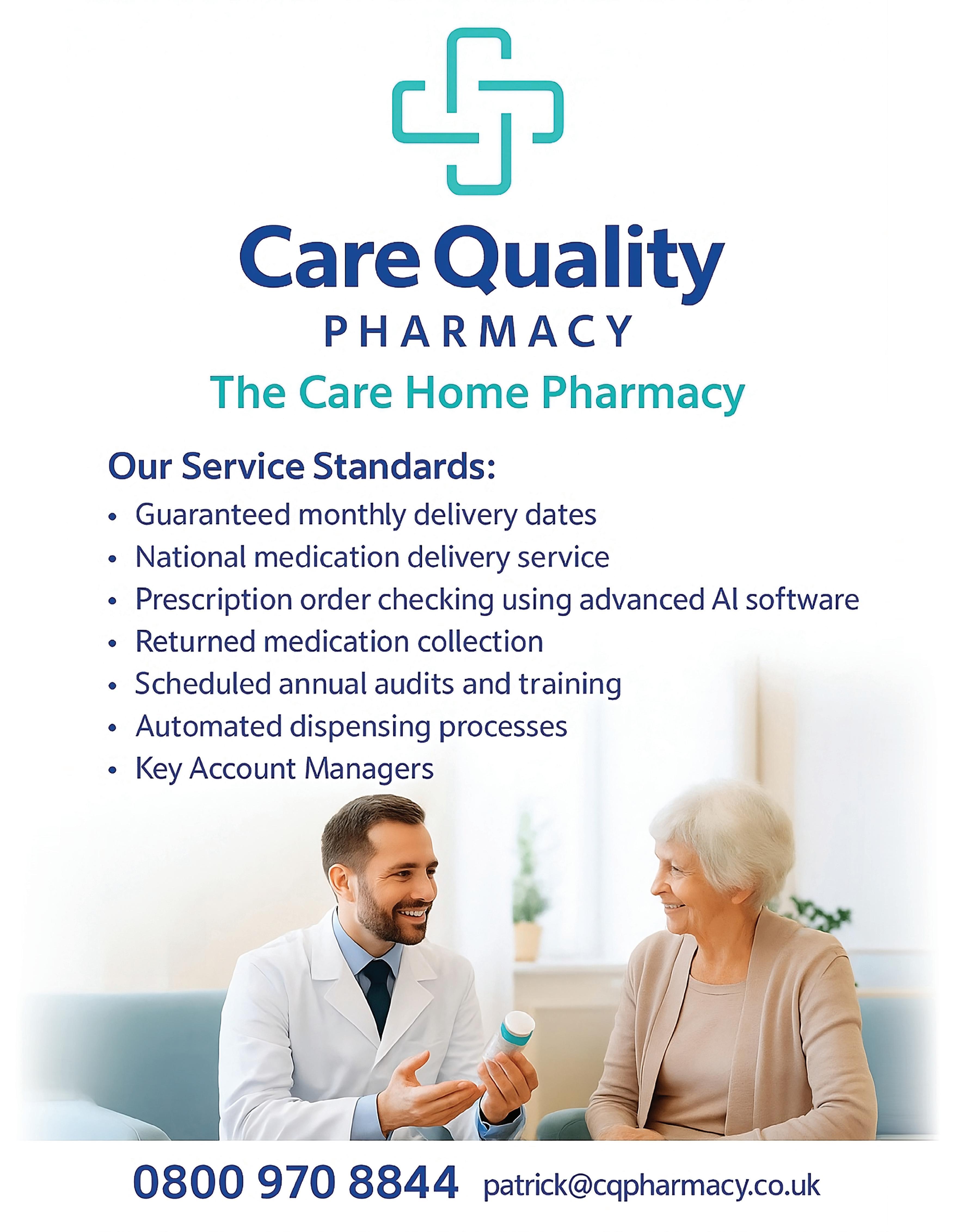

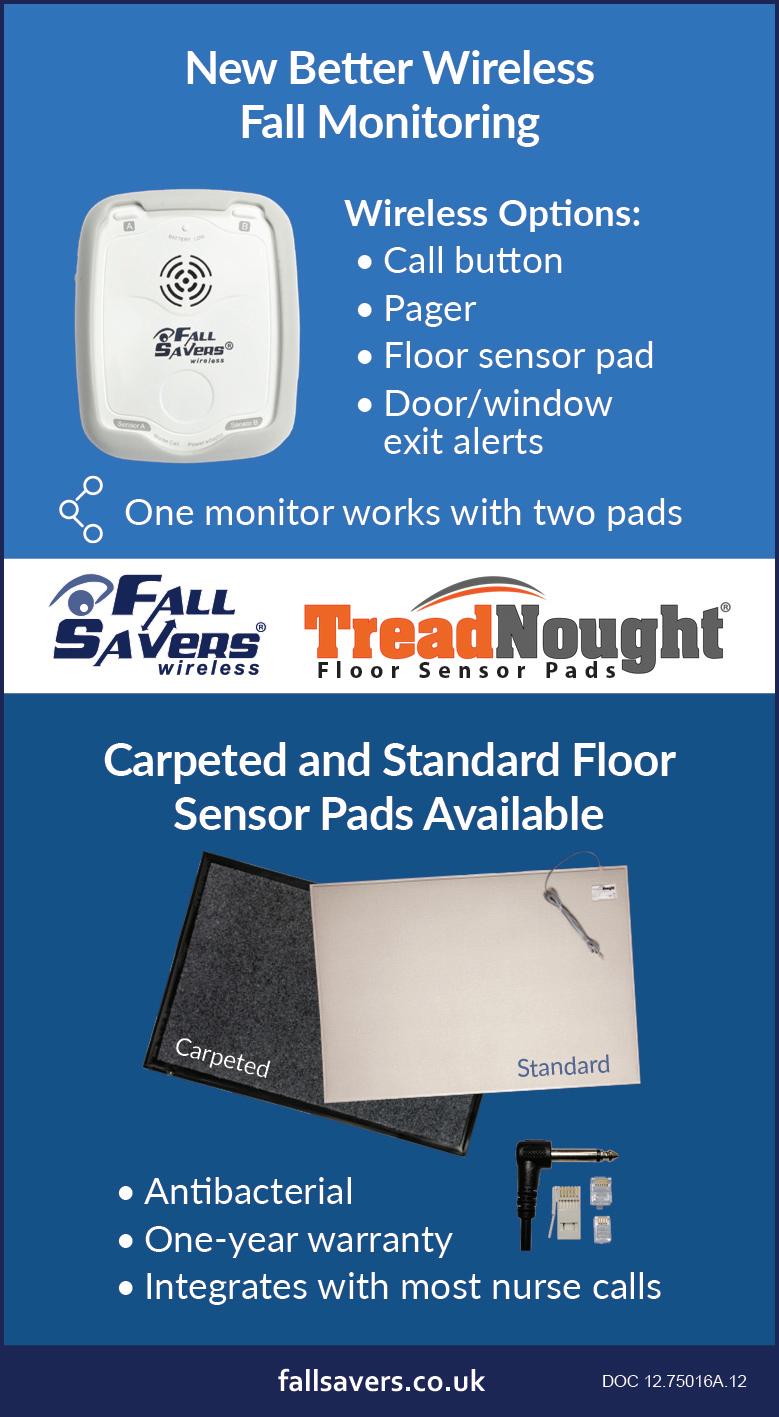














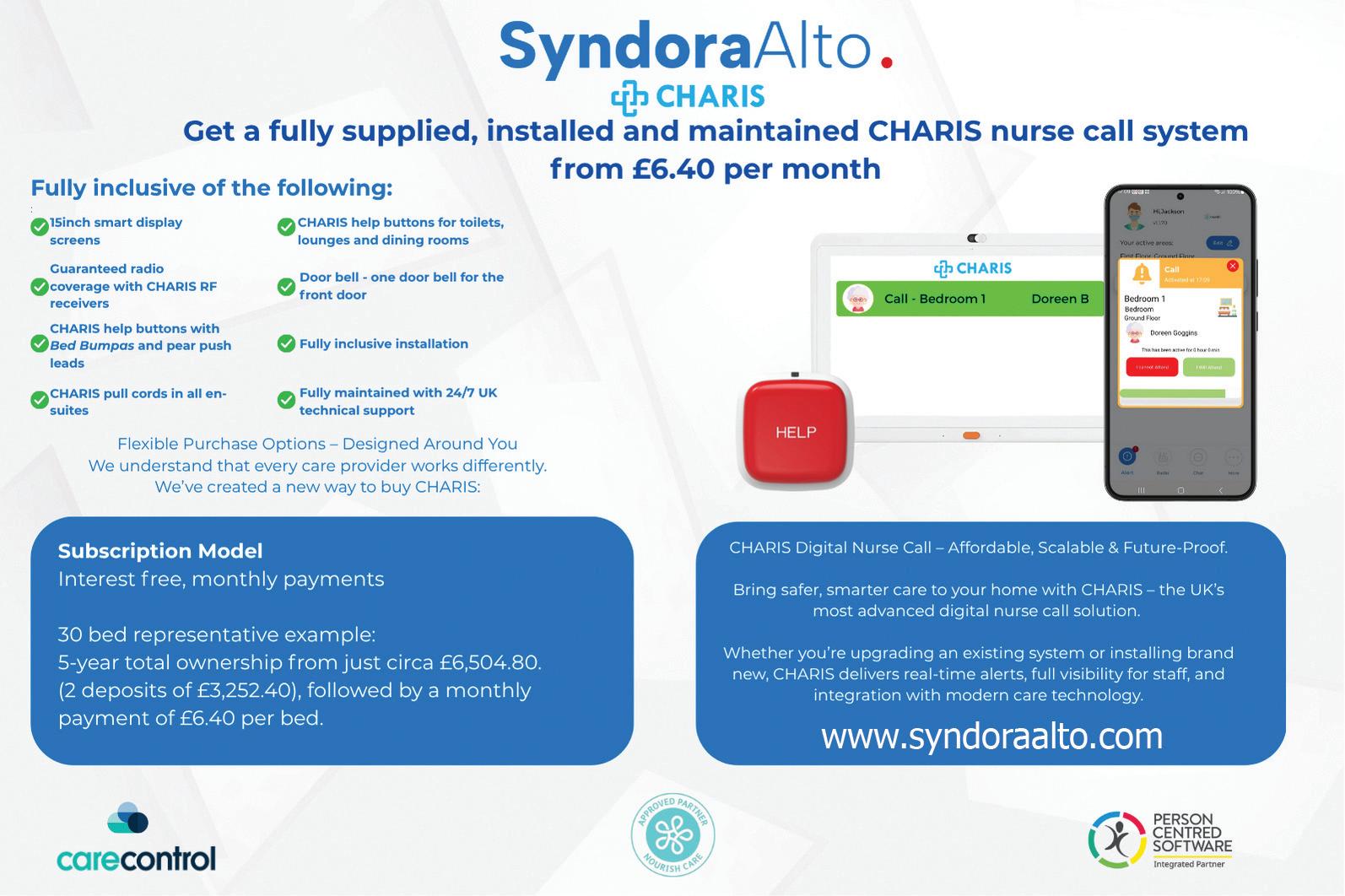
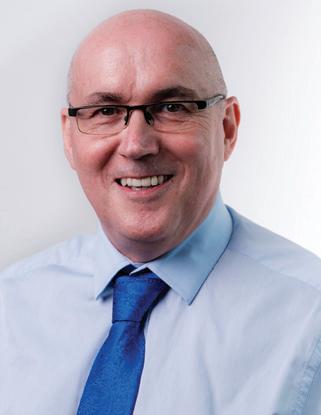
Two stories in this edition have particularly resonated with me, each highlighting different aspects of the challenges facing our sector and the resilience of those connected to it.
First, the news that Charlie Quirke is embarking on a 140km trek to raise funds and awareness for dementia research in tribute to his mother, actress Pauline Quirke, whose diagnosis earlier this year touched many hearts.
As someone of roughly the same age as Pauline—give or take a year—I grew up watching her on children's television. Yes, I'm old enough to remember Pauline's Quirkes back in the 1970s, and I followed her successful career through comedy and drama over the decades.
When news of her condition first broke, I was deeply saddened. She would then have been only a couple of years older than my own mother, who received her Alzheimer's diagnosis as she approached her 60th birthday.
I know only too well how devastating such a diagnosis can be—not just for the person affected, but for their entire family.
The journey ahead requires tremendous strength and love, and Charlie's commitment to making a difference through this challenge speaks volumes. Here is wishing him the very best on his trek, and hoping that his efforts contribute to research that will one day spare other families from this heartbreak.
Equally moving is the news that MPs recently viewed a COVID-19 care home documentary that offers a glimpse into the dedication and compassion of workers who look after some of the most vulnerable people in society, while raising crucial questions about whether there is adequate support for those who bring such commitment and heart to the sector.
I have often reflected on a seminar held just after lockdown was lifted, where care providers and workers were invited to share their experiences. It was, at times, harrowing to listen to. The documentary shines a light on the

difficulties the sector faced—workers who, as the film states, found themselves at the very coalface of the crisis without clear advice or protective equipment.
These were people who continued to show up, to care, to comfort, despite the enormous personal risk and overwhelming challenges.
I am so pleased that the documentary has been so well received, and I very much hope it serves as intended: a catalyst for real policy change that benefits care workers across the UK.
Those who work in our sector deserve more than applause—they deserve proper resources, adequate protection, clear guidance, and the recognition that their work is not just essential, but invaluable to the fabric of our society.
Both these stories remind us why we do what we do, and why we must continue to advocate for better support, better understanding, and better care for all those affected by these challenges.
I would encourage our readers to sign up for our bi-weekly digital newsletter at www.thecareruk.com and follow us on social media for all the latest news.
I can always be contacted at editor@thecareruk.com

responsibility for
effects, errors or omissions therefrom. All rights reserved, reproduction

(CONTINUED FROM FRONT COVER)
The researchers, writing in an independent capacity, have expressed serious concerns about the absence of a publicly available impact assessment based on existing evidence, particularly given the pressing nature of the policy decision facing Government.
According to their analysis, increasing NHS pharmaceutical expenditure by approximately £1 billion—primarily on American and European drugs—could lead to more than 4,500 additional deaths annually and the loss of nearly 120,000 years of life in good health.
The health impacts would be most severely felt by patients with cancer, circulatory, respiratory and gastro-intestinal diseases, whilst those suffering from respiratory, gastro-intestinal, endocrine, neurological, muscular skeletal and mental health conditions would experience significant reductions in quality of life.
Research indicates that such a policy shift would also exacerbate health inequalities across the UK population and deliver a substantial blow to the economy, with conservative estimates suggesting a £6 billion loss, with potentially larger long-term consequences.
IMPLICATIONS FOR ADULT SOCIAL CARE
The economists' modelling reveals that the adult social care sector would face an additional £130 million in annual costs for local authorities.
Should councils prove unable to meet this increased expenditure, the consequences would extend beyond the care sector itself, potentially leading to further increases in NHS patient mortality, reduced quality of life for service users, heightened anxiety and depression among both service users and their informal carers, and further constraints on economic growth.
The research findings underscore the exceptional value for money that much of the NHS currently delivers, according to the scientists.
They argue that capitulating to internal and external pressures to offer more favourable terms to predominantly American and European pharmaceutical manufacturers would only compound these losses. The significant impacts on NHS patients, the social care sector and economic growth would not be offset by access to affordable new drugs or increased inward investment in the life sciences sector.
Care England has responded forcefully to the economists' open letter, emphasising the stark choice facing Government.
Professor Martin Green OBE, Chief Executive of Care England, said: "This warning from leading health economists is stark. The Government risks choosing a path that will cost lives, deepen inequalities and push adult social care even further towards the brink. For £1bn, the country is being offered a deal that delivers almost nothing in return, yet carries devastating consequences for the NHS, local authorities and the people who rely on care every day."
Professor Green highlighted the alternative investment opportunity that adult social care represents:
"There is a better choice. Investing in adult social care offers the highest return of any area of public spending. It saves lives, strengthens communities, boosts the economy and reduces pressure on the NHS. At a time when every pound must work harder than ever to grow the economy, the case for investing in social care could not be clearer."
Even if the Treasury were to commit additional public expenditure to cover increased pharmaceutical costs, the economists argue this would represent poor value for public funds. They contend that any extra money would deliver greater benefits if devoted to the NHS or adult social care directly, with some funds potentially directed toward the UK research environment and infrastructure, which would genuinely support life sciences, attract inward investment and improve clinical practice evidence.
The scientists acknowledge the difficult position facing Government, caught between supporting the NHS and risking potential tariffs for the UK pharmaceutical sector, or conceding to pressure from the US administration and pharmaceutical companies to avoid such measures.
However, their analysis using the Treasury's own valuation methods reveals that the loss from an additional £1 billion in NHS costs would be equivalent to 77% of the value of all UK pharmaceutical exports or nearly half the total contribution the sector currently makes to GDP. At £1.5 billion, the loss would exceed the total value of all UK pharmaceutical exports or represent more than 60% of UK pharma's GDP contribution.
The economists conclude that any potential impact of tariffs or threats to withdraw investment from the UK cannot compensate for the value lost to NHS patient health, those requiring social care and their carers, British taxpayers, and local economic growth.
The scientists have urged Government and Ministers to consider the full weight of robust research evidence with a comprehensive assessment of all impacts when considering any potential agreement. They have offered to meet with civil servants, Ministers and members of the Health and Social Care, Public Accounts and Treasury Committees to discuss and share detailed analysis.
Care England has stated it stands ready to work with Government, Parliament and the letter's authors to ensure that decisions taken in the coming weeks are informed by the strongest available evidence and focused on delivering the greatest benefit for the public.
The economists' modelling demonstrates that investing the same £1 billion into the NHS and adult social care would deliver vastly superior returns to the country, generating up to £20 of social and economic value for every £1 spent.
Professor Green concluded: "The Government must put people first and choose the option that delivers real value for the country."
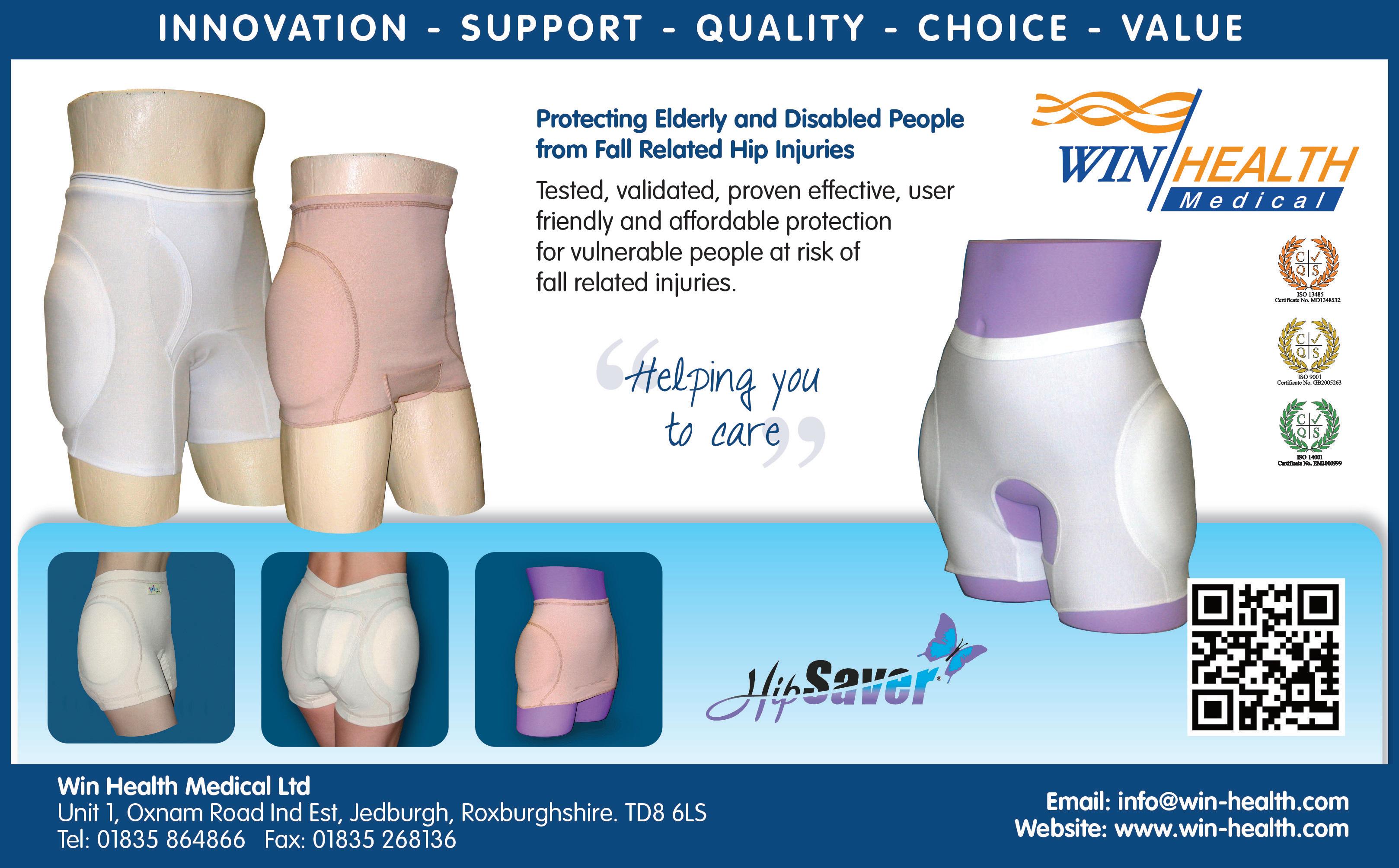
By Pauline Vuyelwa Muswere-Enagbonma, Group Chief Executive, Jessamy Care Group

Success in a care home has never been about occupancy numbers or inspection grades. Those are outcomes, not causes. Real success begins the moment leadership stops managing rotas and starts shaping culture, when the conversation shifts from “Are we compliant?” to “Are we kind?”
Every decision in a care home, from how a shift starts to how a resident’s breakfast is served, either reinforces dignity or erodes it. Strategy in our sector must therefore begin, not with spreadsheets, but with people.
1. BUILD AROUND THE PERSON, NOT THE POLICY
Person-centred care is the sector’s most quoted phrase and its least fulfilled promise.
To practise it properly is to design support around identity, not diagnosis. It means knowing that Mr Okafor’s faith observance matters as much as his medication, and that Mrs McBride’s independence is preserved when she chooses her own clothes, even if mismatched, for example.
The Care Quality Commission’s 2024 review found that genuinely individualised care reduced behavioural incidents by more than a quarter and improved family satisfaction. But beyond data, it restores
something essential, recognition. When people are known, they cooperate; when they feel unseen, they resist.
2. COMMUNICATION THAT FEELS LIKE LISTENING
In care homes, information often travels up, reports, audits, supervision notes, but wisdom lives on the floor. The most successful homes turn daily handovers into ten-minute “listening huddles”, where carers share what they’ve noticed and propose solutions before problems escalate.
Families, too, must be treated as partners rather than visitors. Regular, transparent updates reduce anxiety, and relatives who are informed early rarely become complainants later.
A culture of listening lowers risk faster than any policy. Silence, by contrast, has always been the earliest sign of neglect.
3. GROW YOUR PEOPLE AS DELIBERATELY AS YOU CARE FOR YOUR RESIDENTS
High staff turnover is not an HR inconvenience; it is a safeguarding issue. Every departure removes relational continuity, the quiet knowledge of who needs their tea cooled or reassurance before medication.
Professional development is therefore not a reward; it is a duty of care. Homes that invest in ongoing training, mentoring and CPD training and development report stronger morale and fewer agency shifts. Pay fairly, yes, but also cultivate pride, purpose and progression.
A confident workforce does not just meet standards; it defines them.
4. COMPLIANCE SHOULD PROTECT, NOT PUNISH
The best managers understand that regulation is not the enemy of compassion; it is its framework. The new CQC Single Assessment Framework invites leaders to evidence safety through culture, not paperwork.
When compliance becomes collaborative, mini-audits led by frontline staff, reflective reviews after incidents, visible learning boards, inspection days lose their terror. Teams see regulation for what it truly is: a safety language written in accountability.
Lead it with transparency, and it will never need enforcement.
5. PROTECT PSYCHOLOGICAL SAFETY — THE HIDDEN INFRASTRUCTURE
Clean corridors and working hoists show physical safety.
Psychological safety, though invisible, determines whether staff speak up before harm occurs.
Managers who model humility and emotional literacy create climates of trust. Honest debriefs after difficult shifts, supervision that explores feelings as well as performance, and recognition that fatigue is not failure, these prevent mistakes and retain hearts.
A culture that listens to distress prevents burnout. A culture that ignores it breeds it.
6. CREATE HOMES THAT FEEL LIVED IN, NOT OPERATED
A home should feel alive. The smell of lunch, personal photos in corridors, music during tea rounds, these are not embellishments but therapeutic tools.
Research from the University of Stirling confirms that personalised environments reduce agitation and falls, particularly in dementia care. Invite residents to help choose décor, garden plants, or activity themes. Cleanliness is vital, but sterility is not. People settle faster in spaces that echo their history.
The sound of conversation is not noise, it is evidence of life continuing.
7. LEAD BY PRESENCE, NOT POSITION
Effective leaders are seen. They walk the floor, share meals, and help with care when short-staffed.
Presence dissolves hierarchy and builds loyalty. It communicates to staff that leadership is not authority, it is accountability in motion.
When managers lead with visibility, staff mirror that attentiveness in their care. The tone at the top becomes tenderness at the bedside.
CONCLUSION: THE SOUL OF STRATEGY
Strategy in care is not a manual; it is a mindset. When residents are known, they flourish.
When staff are trusted, they stay. When leaders are present, standards rise.
The homes that thrive in this changing era are those that hold fast to humanity, where governance is rigorous, but love is visible. Because in the end, the real business of care is not the management of need, but the protection of meaning.
Manor Care Home has proudly launched its inspiring new Spiritual Dementia Café, a bi-monthly community initiative designed to bring together individuals living with dementia, their families, and residents in an atmosphere of peace, understanding, and spiritual wellbeing.
Rooted in Karuna Manor’s values of compassion, respect, and holistic care, the Spiritual Dementia Café provides a calm, welcoming space where visitors can experience moments of mindfulness, gentle music, guided reflection, and open conversation. The café’s purpose is simple yet profound to support emotional and spiritual wellbeing for all who attend, while creating opportunities for meaningful human connection.
The sessions are hosted by Karuna Manor’s dedicated business development manager and wellbeing team, who ensure each gathering nurtures the mind, body, and soul. From guided meditations and prayers to creative activities, gentle movement, and shared stories, every aspect of the café is designed to encourage inclusion, dignity, and inner peace.
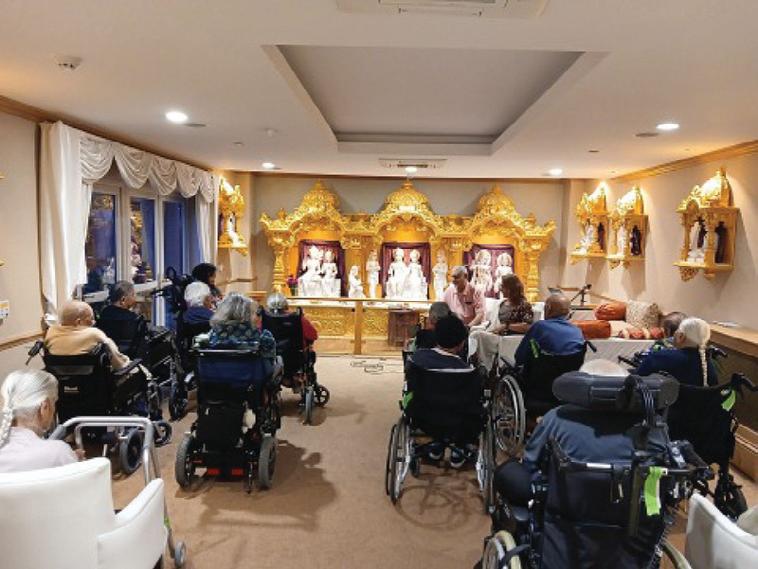
“Our vision for the Spiritual Dementia Café is to create a sanctuary — a safe, sacred space where people can connect through compassion and shared experience,” said Payal Chhabra (Home Manager), of Karuna Manor Care Home.
“For those living with dementia, spirituality often provides comfort, familiarity, and meaning. We want to honour that journey with warmth, respect, and love.”
The café was met with enthusiasm from residents, families, and community guests, many of whom shared how deeply touched they were by the serene and uplifting atmosphere. The event included soothing devotional music, light refreshments, and moments of reflection guided by Karuna Manor’s wellbeing team. Guests described feeling “at peace,” “uplifted,” and “spiritually connected” after attending.
“Supporting people living with dementia goes beyond physical care,” added Ravi Joshi (Business Development Manager). “It’s about recognising the whole person their memories, emotions, faith, and sense of self. The Spiritual Dementia Café helps people reconnect with what brings them comfort and joy, even as their memory or awareness changes.”
Home adaptations teams have a unique tool to help expediate fast, efficient aids to help people be safe at home.
The number of, and wait time for, adaptations continues to grow, with stairs being the second most common hazard in the home. In conjunction with Occupational Therapists, AAT has developed its Universal Seat System for its brand-leading S-Max Sella stairclimber.
The combination amplifies adaptations teams’ ability to optimise use of budgetsusually without even requiring DFG funding- to deliver a safe stairway transfer solution within days, by recycling (re-issuing) the equipment.
The S-Max Sella provides a safe stair transfer solution in 99+% of cases which AAT assesses. The portable Class 1 Medical device certified kit requires no installation nor structural alteration to the home. The addition of the Universal Seat System means the Sella can be easily set up to ensure almost every potential user is safe and supported when using the Sella, irrespective of their physical and/or mental impairment. It is achieved without the need to purchase extra accessories. No other stairway transfer system offers such flexibility.
As part of the offering, AAT will also support the adaptation team in the assessment
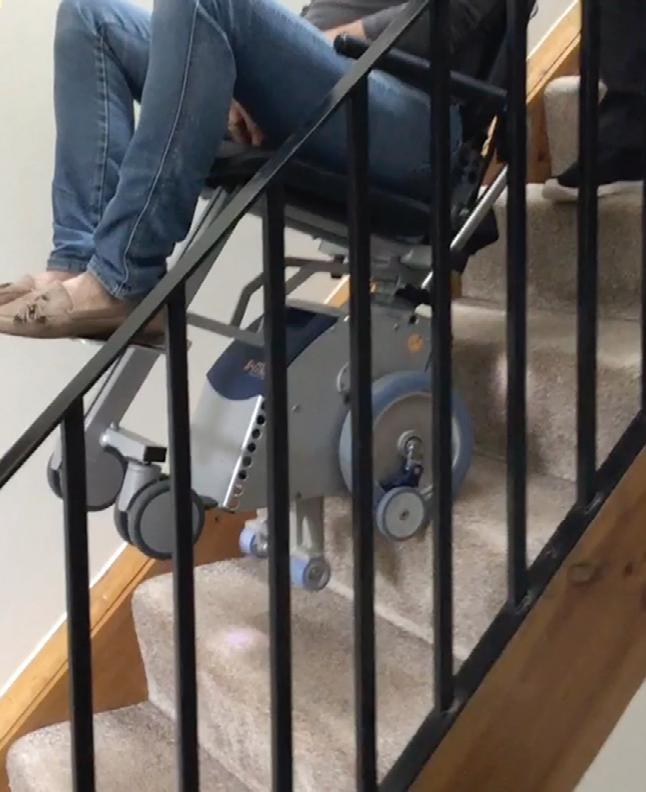
process, to ensure the relevance of the solution for the person, the occupation and the environment, and personally train the carer in the Sella’s safe operation.
“We have numerous examples of community equipment services (eg Nottinghamshire & Nottingham City) now buying not just additional Sella stairclimbers, but Universal Seat Systems, to have in equipment stores ready to go, so they can quickly deliver a solution for a client,” says Peter Wingrave, AAT Director.
“Even if it is a short-term solution whilst a larger and/or more permanent adaptation is undertaken, our Sella/Universal Seat System and re-issue capability gives a highly cost-effective and fast way to manage the potential risk of someone falling on the stairs: a genuine adaptation without delay.”
Full details of the Sella and Universal Seat System can be found on AAT’s website @ https://www.aatgb.com/s-max-sella/, where adaptations teams can also book a free, no obligation client assessment or team demonstration session.
Chancellor Rachel Reeves must deliver a Budget that promotes growth and avoids penalising vulnerable people and those in greatest need, whilst staying focused on long-term economic and societal challenges, according to Anthony Collins.
The Chancellor has indicated that ‘difficult’ decisions will be needed to address the Budget deficit and mitigate the need for deep cuts in capital spending. Refusing to rule out increases to headline rates of tax, such as Income Tax, VAT and National Insurance, speculation is growing that she may be forced to break the Government’s pre-election pledge to avoid increasing taxes on ‘working people’.
Matt Wort, senior partner at social purpose law firm, Anthony Collins, said: “Whatever difficult decisions the Chancellor is planning, she must concentrate on promoting economic growth and ensure the interests of vulnerable and disadvantaged people are protected.
“Without using her fiscal powers to incentivise and drive economic growth, it will not be possible to strengthen public spending in the areas that need it most and long-term societal challenges will be left unaddressed.
“In addition to the Budget, further legislative changes may be needed to encourage investment to deliver against the Government’s priorities, specifically in areas such as social care services.” Health & Social Care
The social care sector urgently needs support and should not be ignored. Efforts have been made by policymakers to address the critical issue of fair pay for workers in the sector, but a long-term funding settlement is needed for care providers to stay viable. In November, another not-for-profit provider, the Queens Elizabeth’s Foundation for Disabled People, has exited the market, and without long term funding, there is a real risk that more could follow.
Personal taxation
When it comes to personal taxation, the Chancellor must bear in mind that raising taxes doesn’t necessarily result in more tax receipts. Instead, fiscal incentives could help to direct private investors to sectors
where their money could deliver greatest benefit – for example, investment in public services. It is also important that any tax changes for pensions that she might be considering don’t disincentivise saving for retirement, which could increase demand for public spending in the future.
Disadvantaged and vulnerable people
The Chancellor has signalled that meeting her fiscal rules will require cuts to public spending, including welfare, which could hit disadvantaged and vulnerable groups hardest. At the same time, freezing tax allowances and thresholds will quietly increase the tax burden on millions; especially low-paid workers, disabled people, single parents, and pensioners making it vital that she takes steps to limit the impact on the most vulnerable in society.
Social business
Having seen the success of tax incentives in encouraging employee ownership, the Chancellor could consider incentivising a broader range of alternative economic models. Tax breaks for co-operatives and mutuals would assist in meeting the Government’s own manifesto commitment to double the size of the sector. A new form of Social Investment Tax Relief (SITR) would promote private investment into social purpose organisations.
Matthew Gregson, partner and local government specialist at Anthony Collins, said: “We would like to hear more from Rachel Reeves on the Government’s plans for multi-year financial settlements for local authorities. This move is important to enable local authorities to plan for the longer term.”
Matt Wort concludes: “With a sizeable Budget deficit and the latest data from the Office for National Statistics (ONS) estimating a further slowdown in economic growth in the three months to the end of September, it is clear that the Autumn Budget is going to be a challenging one for the Chancellor. Ultimately, however, she will be judged by the long-term impact of her decisions economically and socially.”
Appleby House has been recognised as the winner of Care UK’s Biodiversity Summer 2025 review, demonstrating that even in a busy suburban location, nature can thrive and transform resident experiences.
Care UK’s judging panel praised the home for its complete approach to biodiversity, connecting nature with resident wellbeing and community engagement.
Submissions were compared against five criteria – biodiversity impact, improvements made since 2024, community involvement, quality of documentation and plans for long-term sustainability. Here’s what the judges had to say about their entry:
• Outstanding wildlife evidence: Its wildlife camera footage documented badgers, foxes, and bats – in suburban gardens. “This isn’t just about common garden birds; they’ve created a genuine habitat,” noted one judge.

• From garden-to-kitchen: Fresh produce from the allotment is used in the home’s kitchens, creating a clear connection between the garden and daily life in the home.
• Strong community partnerships: Collaboration with local charity – Love Me, Love My Mind – alongside school visits demonstrated strong connections with the local community which have been developed and sustained over a long time.
• Authentic resident involvement: Photos showed residents actively planting, harvesting, and enjoying the garden as genuine co-participants.
Care UK recently won the prestigious Leaders in Care award for the Wildlife Garden campaign, highlighting that the work of Care UK Sustainability Champions is gaining recognition beyond Care UK. The efforts make a real difference in the community and contribute to making Care UK a recognised leader in sustainable care.

By Kathryn Marsden OBE, Chief Executive at the Social Care Institute for Excellence (www.scie.org.uk) and Anisa Byrne, General Manager for Care at The Access Group (www.theaccessgroup.com)


The government's commitment to a National Care Service underpinned by national standards has sparked necessary conversations across social care. But between the policy announcements and the final framework lies a critical question: what do national standards actually need to achieve for the people delivering and receiving care every day?
Over the past month, we’ve brought together people who draw on care and support, workforce representatives, care providers, commissioners and local and national government in a series of roundtables exploring how national standards can drive real improvement. What we're hearing challenges some assumptions about what standards are for and reveals the tensions care providers navigate daily.
WHAT STANDARDS ARE ACTUALLY FOR
The roundtable discussions revealed that effective standards must balance three aims: ensuring people's voices and choices shape their
care, maintaining safety and quality, and driving system-wide improvement. The challenge is doing all three without creating the bureaucratic burden that currently defines so much of social care practice.
One insight stood out: standards should clarify what social care is for, not just how to deliver it. This shifts the conversation from process compliance to purpose. Social care exists to enable people to live in the place they call home, with the people and things they love. Standards that start from this purpose look different from those focused on counting tasks completed or forms filled.
Standards that define outcomes - what people should be able to achieve and experience - leave room for the creativity and relationshipbuilding that personalised care requires.
We heard inspiring examples of technology creating space for what matters. AI-powered documentation that frees care workers from paperwork to focus on conversations. Predictive analytics that identify people at risk of falls before they happen. Systems designed with care workers that prompt personal preferences before each visit, supporting continuity of relationships.
The question comes down to who technology serves. Systems designed primarily for compliance will always feel like burdens. Technology designed to support relationships and enable people's choices becomes genuinely useful. National standards have a role here: establishing that technology must enhance human connection, not replace it.
Perhaps the most passionate discussions centred on measurement. Care providers described the tension between what they're required to report and what actually indicates quality. This creates an opportunity for raising standards at the point of care. This fixation on outputs actively works against the personalised, relationship-based care every-
one agrees we need. National standards offer an opportunity to shift what we measure and therefore what we value. Instead of counting tasks completed, we could track progress towards personal goals. Instead of monitoring time spent, we could assess whether people feel listened to and supported to make their own decisions.
Every conversation returned to co-production. National standards will only work if people drawing on care and support shape them from the start. This means more than consultation after decisions are made. It means sharing power over how standards are designed, applied and reviewed.
Care providers expressed both hope and scepticism about this. Many have watched co-production become a tick-box exercise. Others shared examples of genuine partnership, where people with lived experience held equal authority in shaping services and the results transformed both relationships and outcomes.
National standards will succeed or fail based on whether they support care providers to do what they know matters. Standards that add bureaucracy without enabling better relationships will be experienced as burdens. Standards that clarify purpose, focus on meaningful outcomes, and create space for the human connections at the heart of quality care could transform how social care works.
The conversations we're convening through these roundtables we hope will inform Phase One of the Casey Commission’s work as they set the foundations for a National Care Service. But their real value lies in surfacing what care providers and people drawing on care already know: that quality care happens in relationships, that standardisation must serve personalisation, and that the purpose of social care is enabling people to live the lives they choose.
The son of celebrated actress Pauline Quirke MBE has announced plans for an ambitious five-day fundraising trek covering 140 kilometres across five counties in support of Alzheimer’s Research UK.
Charlie Quirke will undertake the challenging winter journey from 8 to 12 December, potentially facing harsh weather conditions as he walks to raise both funds and awareness for dementia research. The trek comes after his family revealed earlier this year that Pauline, best known for her role as Sharon Theodopolopodous in the beloved sitcom Birds of a Feather, is living with dementia and has retired from acting.
Following his mother’s diagnosis in 2021, the family has become increasingly involved with Alzheimer’s Research UK, recently taking on roles as Ambassadors for the charity. For Charlie, the trek represents more than just a physical challenge—it is a deeply personal journey through his mother’s remarkable life and career.

“I’m really excited to support Alzheimer’s Research UK in this way, because it’s what my mum wants me to do,” Charlie explained. “She’s such a selfless person, and I know she’ll be delighted that I’m doing this to help others.”
The route has been carefully planned to honour Pauline’s career and family life. Charlie will begin his trek on Monday 8 December in Chigwell, Essex—the setting for Birds of a Feather—before making his way through London and beyond. The journey will include stops at former family homes, television studios, and the West Ham training ground, reflecting the family’s longstanding support for the football club.
“I’ve never walked that far before, but what will keep me going is knowing that I’ll be reaching places that mean so much to Mum,” Charlie said. “There’s so much about her life that I don’t know, so I’m excited to learn more about her as I go.”
Charlie, who is also an actor and appeared alongside his mother in Birds of a Feather, will be joined at various points along the route by friends, family members, and familiar faces from the entertainment industry whose lives Pauline has touched throughout her distinguished career. Speaking candidly about his mother’s condition, Charlie addressed the stark reality facing families affected by dementia. “It’s not right, and it’s not fair. And it’s why, as a family, we wanted to do our bit,” he said. “Research is the only thing that will give families a light at the end of the tunnel.”
Despite the challenges, Charlie finds comfort in his mother’s present contentment. “Mum is happy, content and loving for as much of the day as she can give us,” he shared.
The trek will conclude on Friday 12 December at the family home in Buckinghamshire, where Charlie plans to spend Christmas with his mother and family. “I’ll carry all mum’s memories with me as I reach home for Christmas,” he said.
Hilary Evans-Newton, chief executive of Alzheimer’s Research UK, expressed the charity’s gratitude for the family’s support. “We’re honoured that Pauline Quirke and her family have become Ambassadors of Alzheimer’s Research UK, and delighted that her son, Charlie, has decided to take on this challenge for our cause,” she said.
“Like so many, Charlie knows all too well the devastation dementia causes, following his mum’s diagnosis. But by going on this gruelling trek, he will be helping to bring hope of a cure home to every family affected by dementia. We wish Charlie the best of luck and we can’t wait to follow his journey.”
Please support Charlie Quirke’s Trek For A Cure and donate by texting ‘CHARLIE5’, ‘CHARLIE10’ or ‘CHARLIE20’ to 70255. Alternatively, donate online at trek.charliestrek.org
Residents at an Ilkley home can visit places such as Scotland and the North York Moors without leaving their home thanks to a new train experience.
MHA Glen Rosa have installed the Jolly Journey Train Experience, a new initiative by Little Islands, who specialise in creating unique interactive environments.
The train experience showcases journeys across the UK from the viewpoint of a passenger looking out of the window.
The team from Little Islands installed and decorated a part of the home’s dementia unit and converted it into a train carriage with props such as suitcases, train times and journey information displays.
MHA Glen Rosa provides residential and residential dementia care for 47 residents.
Adam Carling, home manager said: “The Jolly Journey Train experience is a new initiative and one that is proving to be very popular here.
“We have received some great feedback since the experience has been installed.
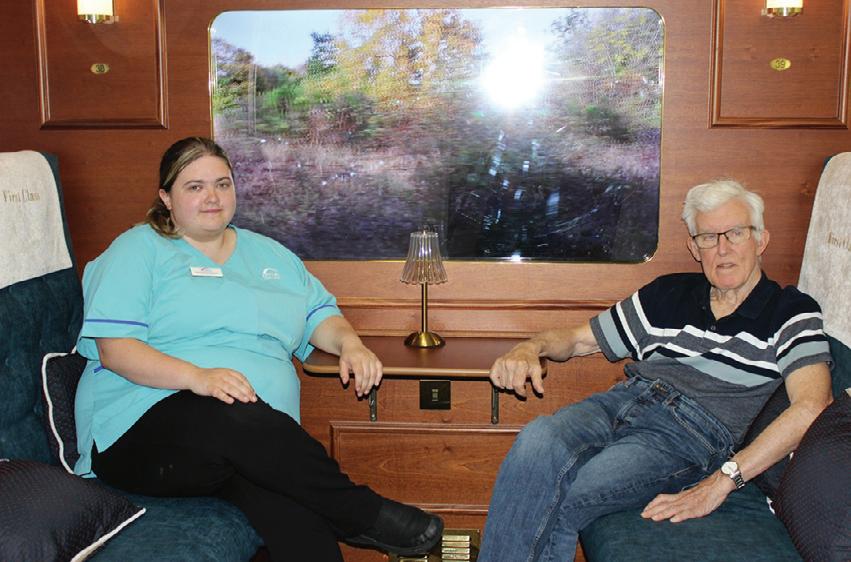
“Our residents love it, you will often see a number of them sat in the carriage and watching a journey.
“The idea came to me from my area who forwarded it to me, and I decided to look into it.
“I then contacted the team at Little Islands and the whole process took a couple of months from start to finish.
“We are quite privileged here at MHA Glen Rosa, where thanks to the generosity of the local community we are able to provide services such as this for our residents.
“We received a very generous donation via our Legacy Fund which enabled us to go for this experience.
“The location of the experience is really good as it’s in a high footfall area, where both residents and their relatives can sit and enjoy it.
“Alongside the Train Experience, we have also prepared a sensory garden thanks to funds we received.
“I do think this is something other MHA homes can look into having, it’s something quite unique and I do feel other homes will see the benefits just like we have.”
The social care industry ranks among the best for supporting employee financial wellbeing in 2025, according to new cross-sector research.
The research by Access PayWise+, part of The Access Group, analysed more than 20 financial wellbeing benefits listed in recent job ads across 30 UK sectors to show which industries best support staff beyond their salaries.
Benefits were grouped into seven categories including financial compensation and pay enhancements, insurance and protection, lifestyle support, health and wellbeing, family and parental benefits, retirement and savings, and work from home flexibility.
Social care came fourth overall, placing in the top ten for four of the seven benefits categories. The sector performed strongest in financial compensation and pay enhancements – though still only 25% of job ads offer these benefits.
The sector’s weakest area lies in retirement and long-term savings with 0.19% of jobs ads offering these benefits on average.
Across all sectors, less than 10% of job ads include benefits from even the most common category –financial compensation and pay enhancements – showing there is still room for improvement, even among
top performers.
This comes as one in three employees say money worries affect their performance, and only half of employers have a financial wellbeing strategy.
At the other end of the scale, education offers the fewest financial wellbeing benefits overall, with recruitment consultancy, and admin/secretarial & PA also ranking among the least generous.
Commenting on the findings, Abhishek Agrawal at Access PayWise+, said:
“Social care companies offering strong financial wellbeing packages are likely to see higher workforce productivity and loyalty, as well as providing an attractive offer for prospective talent.
“Financial compensation and pay enhancements are the most common form of financial support in the social care sector, but uptake still remains low at 25% in recent job ads, showing room for improvement across every benefit category.
“Simple, low-cost steps such as cycle-to-work schemes, life assurance or earned wage access can help staff manage everyday costs. Our previous research shows 80% of employees using earned wage access feel more loyal to their employer, yet it’s still rarely offered. Expanding this into a broader financial wellbeing strategy will deliver the best long-term results.”
A group of doctors and nurses from St Wilfrid’s Hospice in Eastbourne have trekked more than 50km of the Sahara Desert, helping to raise £130,000. Inpatient Unit Nurse Kate Watkins, Clinical Skills Facilitator Tilli Stevens, Inpatient Unit Team Leader Helen Fothergill, Consultant in Palliative Medicine
Farida Malik and retired Inpatient Unit Nurse Beverly Twine joined around 50 other staff members and hospice supporters who spent five days trekking across the vast and diverse landscape of the iconic Sahara Desert in scorching temperatures.
St Wilfrid’s supporters have never before raised such a large amount of money for undertaking an overseas challenge.
Kate raised more than £3,000 and said: “The trek was an incredible adventure, and I loved it, especially sleeping under the stars. We made great friendships and laughed so much. I would love to do it again but there are so many different adventures to take on.”

“I found the trek inspiring and challenging, and learnt things about myself,” Tilli said. “All the people who signed up were so lovely and had their own reason for doing it. I enjoyed visiting somewhere completely different and sharing a different way of life and culture with the local people.” She raised £3,387.
“It was by far the hardest thing I’ve ever done,” said Helen, who raised £2,500. “The heat was incredible and much more of an issue than I had ever imagined. But the guides and the support of my fellow trekkers helped me through it. I saw and experienced an amazing part of the world, met an incredible bunch of people who I will never forget, and achieved so much.”
Jemma Campbell, St Wilfrid’s Hospice’s Events Fundraiser, said: “We’d like to say a huge thank you to the wonderful members of our team for their fantastic fundraising. They helped raise a record-breaking amount for an overseas challenge and will see first-hand where their money goes.”



Independence isn’t about doing everything alone - it’s about having the confidence and choice to live life in your own way. For disabled adults, finding that right balance between support and self direction is essential to living well.
Across the care sector, our goal is to create environments where people can develop practical skills, make decisions for themselves, and take pride in what they achieve.
When we view independence not as separation but as empowerment, we begin to see opportunities within daily care practice to build confidence and improve quality of life.
Confidence often begins with small, everyday experiences. A 2024 study on accessible housing found clear links between autonomy and better wellbeing for disabled adults. Those living independently, or with minimal assistance, reported higher life satisfaction and lower levels of depression and loneliness than those in more restrictive settings. The message is clear; personal control over day to day life supports mental and emotional health.
Helping people gain independence means focusing on achievable goals that build confidence over time. Tasks such as planning meals, managing budgets, or learning public transport routes may seem simple, but they’re meaningful steps towards self belief. Even mistakes play an important role - learning by doing, even when things go wrong, often leads to the greatest progress. Staff should work alongside service users to nurture these everyday skills while also maintaining a supportive safety net. The first step is giving people the skills to complete the task, but the second step is to let them put these into action. Progress looks different for everyone, but the principle remains the same that confidence grows best in an environment of patience, trust and encouragement.
ENVIRONMENTS THAT ENCOURAGE AND EMPOWER
Accessibility and independence go hand in hand. The thoughtful design of a space, along with assistive
By David Ashton Jones, CEO of Homes Together
technology, can make the difference between restriction and freedom, hesitation and confidence. Simple adjustments can empower people to carry out tasks safely and successfully.
Adaptive technology has proven particularly valuable. In kitchens, talking microwaves guide users through each step. Level indicators help service users pour drinks safely and one-cup kettles allow people to make a hot beverage at the press of a button, reducing both risk and reliance on others. For those more confident with technology, voice activated smart devices add a modern layer of convenience.
These tools are not about shortcuts, but about inclusion. Each adaptation removes a barrier and promotes participation. A well designed space changes the care environment from a place of assistance into a place of autonomy. When people have the freedom to carry out ordinary tasks in their own way, the entire experience of care becomes more dignified and fulfilling.
INDEPENDENCE THROUGH CONNECTION
We often think of independence as a solitary goal, but in reality, it thrives through connection. Relationships, shared activities, and community involvement all help people strengthen confidence and identity.
At Homes Together, we encourage service users to take part in things such as gardening, music time and community outings. These activities help build a sense of belonging. When someone feels recognised and included, their willingness to try new things naturally grows.
Being part of a community also gives people the chance to see their strengths reflected back through others. Feeling valued and contributing to shared goals builds confidence and self esteem. In turn, those positive feelings spill into other parts of life, reinforcing autonomy.
Supporting independence is something to build on gradually. It’s an ongoing partnership between individuals, carers, and the environment around them. When people have both the right support and the freedom to make their own choices, they thrive in ways that extend far beyond the tasks themselves.
Helping someone to live more independently isn’t about stepping back and letting them struggle alone. It’s about standing beside them to offer the tools and trust, as well as encouragement, so they can lead life on their own terms. That crucial balance of safety and freedom is at the very heart of person-centred care.
Residents at a care home in York were given a license to thrill, as they celebrated the home’s first anniversary in style with staff, relatives, and members of the community.
The black-tie celebration was attended by the Lord Mayor of York, Councillor Martin Rowley BEM, who joined residents and guests for a glamorous night of music, food, and sparkle.
Guests were entertained by the talented Sarah Hewson, who performed her “License to Sing” repertoire – a variety of classic James Bond songs in her signature style.
A Bond-worthy menu crafted by York Manor’s in-house chef was a highlight of the night. Dishes included, Crayfish sliders and smoked salmon and cream cheese caviar blinis, followed by a centrepiece, which was a home-baked chocolate and vanilla cake adorned with edible gold, perfectly fitting the sophisticated Bond theme.
90-year-old Sheila Hodgson a resident at York Manor, said, “It was a lovely party and I met the Mayor of York – he shook my hand! My daughter came too and we wore sparkly tops. The food was delicious, especially the cake.”

The Lord Mayor of York, Councillor Martin Rowley BEM said, “It was a pleasure to join residents, staff and
families at York Manor Care Home to celebrate their first anniversary.
“In just one year, York Manor has become a true home at the heart of its community. The dedication of the team shines through in everything they do, and it was wonderful to see the joy and sense of belonging that exists among residents.
“I wish York Manor continued success and happiness in the years ahead.”
Home Manager at York Manor, Rachel French added, “We wanted our first anniversary to be a truly special event. The residents chose the James Bond theme, and we were all amazed with how much effort everyone put in.
“The turnout was fantastic, and it was wonderful to see residents, families, and the local community coming together. We’re so proud of everything our team has achieved in our first year, and we feel incredibly welcomed by the York community.”
Alongside the anniversary, staff at the home have been celebrating team member, Carla Omerta’s recent Care Award Win. Carla won The Care Home Activities Organiser Award at this year’s Yorkshire and Humber Care Awards and will represent York Manor in the National Finals in February 2026.
The future of quality dementia care relies on understanding and emotional awareness that the experience of dementia heightens feelings and lessens thinking, according to Professor David Sheard from the Institute for Health and Care Improvement (IHCI) at York St John University.
He explained that this approach requires emotional intelligence to support the complex emotions experienced by families, carers, and professionals working in health and social care. Speaking at the 19th UK Dementia Congress, Professor Sheard, a globally influential expert on the culture of care, said that truly effective dementia care depends on the ability to connect with and respond to people’s complex emotions, not just on clinical expertise.

The 19th UK Dementia Congress (UKDC), organised by Dementia Community, was held on 17 and 18 November 2025 in Manchester. The event brought together people with lived experience, alongside professionals from health, social care, housing, arts, and culture.
Keynote speakers included Andy Burnham, Mayor of Greater Manchester, and Professor John Keady from the University of Manchester. David Sheard, Professor of Emotional Intelligence in Care at the IHCI, presented his analysis of the historical and current landscape in dementia care, using his experience in health and care settings to explain why he believes emotional intelligence in care is the missing foundational piece.
Professor Sheard worked for 14 years as a social worker specialising in dementia care and mental health before founding Dementia Care Matters, where he served as CEO for 23 years and pioneered culture change in dementia care. His work, including the creation of Butterfly Homes, focused on improving quality of life for people living with dementia, earning him the Care Personality of the Year award in 2014 for his transformative impact on care culture. Alongside collaborations with the Alzheimer’s Society, the NHS, and voluntary and independent care sectors, he has championed person-centred leadership, inclusion of lived experience, and research on vulnerability during the pandemic.
Professor Sheard said: “Living with dementia is one of the key challenges of our time. Supporting people
through this experience means recognising them as whole individuals and meeting them in their own reality with empathy, which requires emotional awareness and skill. By practising emotional intelligence, we can engage with people authentically and support them where they are in their journey.”
In addition to Professor Sheard’s symposium, a team from the IHCI presented their findings from past and current research on dementia. This included research on young onset dementia, undertaken by Vanessa Baxter, Service Manager and Researcher at the IHCI. Commissioned by Dementia Forward, a charity that supports people living with or caring for someone with dementia in York and North Yorkshire, the research in 2024 highlighted a lack of age-appropriate support for people with young onset dementia and their families. Findings revealed that activities and services intended to support those with young onset dementia should be age-appropriate, social, flexible, person-led, meaningful, tailored to evolving needs, inclusive and empowering.
Addressing attendees at the Congress, Professor Garry Tew, Director of the Institute for Health and Care Improvement, said: “We are immensely proud that York St John University served as the academic partner for the UK Dementia Congress. This partnership reflects our deep commitment to improving care through evidence, empathy, and education. By placing emotional intelligence in care at the heart of the conversation, we are helping to shape a future where equal priority is given to supporting emotional labour in the workforce and the emotional lived experience of people.”
The Institute for Health and Care Improvement will build on discussions from the UKDC to advance research into how emotional intelligence enhances care culture, leadership, and lived experience. Following an Expression of Interest at the event, the Institute will collaborate with care providers to take this work forward. Professor David Sheard will continue to share expertise in this field through consultancy, training, podcasts, and publications.
Social Care Wales has published the results of its third annual Have Your Say Social Care Workforce Survey, with over 5,700 social care workers sharing their experiences and perspectives on working in the sector.
The comprehensive survey explored key themes including wellbeing, pay and conditions, career progression, training needs, motivations for working in social care, and workplace priorities. The findings are designed to inform future policy development and support mechanisms for the workforce.
The results revealed encouraging improvements in workforce wellbeing, with levels now above the UK average. Increases were recorded in life satisfaction, happiness, and sense of purpose, suggesting a more positive workplace culture is emerging across Welsh social care settings.
The survey confirmed that the majority of care workers are motivated by a deep commitment to helping others, reinforcing the sector’s values-driven nature.
However, the data also highlighted areas of concern. Anxiety levels have risen, particularly among social workers, and now exceed the UK average. Social Care Wales has emphasised that mental health support remains available through Canopi, a free service for health and social care staff.
The survey found that 68% of respondents reported satisfaction with their terms and conditions. However, Social Care Wales acknowledged that further work is needed to improve pay across the sector.
A recent evaluation of the Real Living Wage (RLW) implementation showed that over 80% of the work-
force now benefits from this commitment, though efforts continue to extend coverage to remaining workers.
The Social Care Fair Work Forum is finalising a voluntary Pay and Progression Framework for social care, with details expected in the new year. The framework aims to support consistent pay structures and highlight career development opportunities across the sector.
Social Care Wales is also working with the UK Government on the Employment Rights Bill and Fair Pay Agreements for social care. The Senedd has passed the legislative consent motion for Wales, and consultation on developing a Negotiating Body to set Fair Pay Agreements is planned for the near future.
The Social Care Workforce Partnership, bringing together government, employers, and trade unions, has agreed several priorities following sector engagement. These will be formally shared early next year and include:
• Recognition Agreements and Trade Union Access
• Disciplinary and Grievance Procedures
• Health and Safety, including protection from workplace violence
Recruitment and retention remain central priorities for Social Care Wales, with commitments to scale up best practice, create clear progression pathways, and improve perceptions of social care as a long-term career.
The full report and summary of responses are available at insightcollective.socialcare.wales
A groundbreaking documentary directed by Newcastle University academic Dr Alastair Cole which aims to change perceptions and drive change for the UK care sector, was screened to MPs and government officials earlier this week.
CARE, a film focusing on the day-to-day lives of care home residents and workers, was shown at Westminster on Monday 17th November 2025 following a successful nationwide tour.
Filmed entirely by staff at a North East care home as it emerged from the COVID-19 pandemic, CARE gives a glimpse into the dedication and compassion of the workers that look after some of the most vulnerable people in society, while raising crucial questions about whether there is adequate support for those who bring such commitment and heart to the sector.
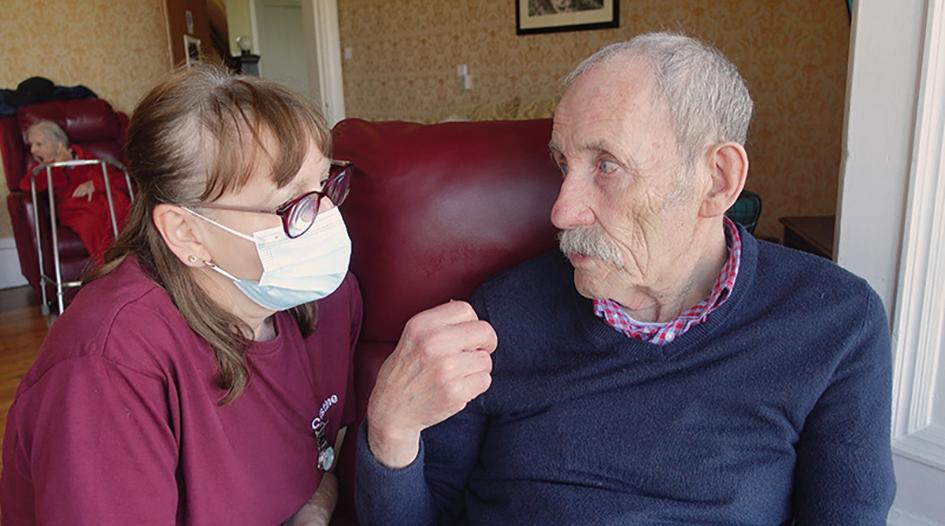
The film’s Westminster screening, which follows the beginning of the government’s long-anticipated Covid-19 enquiry, aims to shine a light on not only the commitment of care staff, but the realities of working in a sector that is overlooked and underfunded.
Hosted by Danny Beales, the Labour MP for Uxbridge and South Ruislip and member of the Health and Social Care Committee, the event was attended by key MPs, policymakers and senior leaders from the care industry, and featured the real experiences and voices of care workers who have been at the frontline
during Covid-19 and beyond.
The screening sparked meaningful conversations around the importance of respecting and supporting the care sector, and act as a catalyst for real policy change benefitting care workers across the country.
CARE director, Dr Alastair Cole, a Senior Lecturer in Film Practice in Newcastle University’s School of Arts and Cultures, said: “CARE began as a response to the pandemic, and out of frustration at the overwhelmingly negative representation in the media of residential care in the UK. This was heightened at a time when care home staff, residents and their families were at the coalface of the global crisis.
“Bringing the film – and the voices of the care staff it represents –to Westminster has been a key goal for our whole project team, so it’s incredibly exciting to see it happening. The film’s journey around the UK has been both heartening and inspiring, as we’ve met care professionals and listened to their stories and responses.
“Now, being able to bring the film, some of the staff who created it, and the new voices we’ve heard along the way into the Houses of Parliament to speak directly with MPs gives us a vital opportunity to ensure that care professionals remain at the heart of the debate about the future of care.”
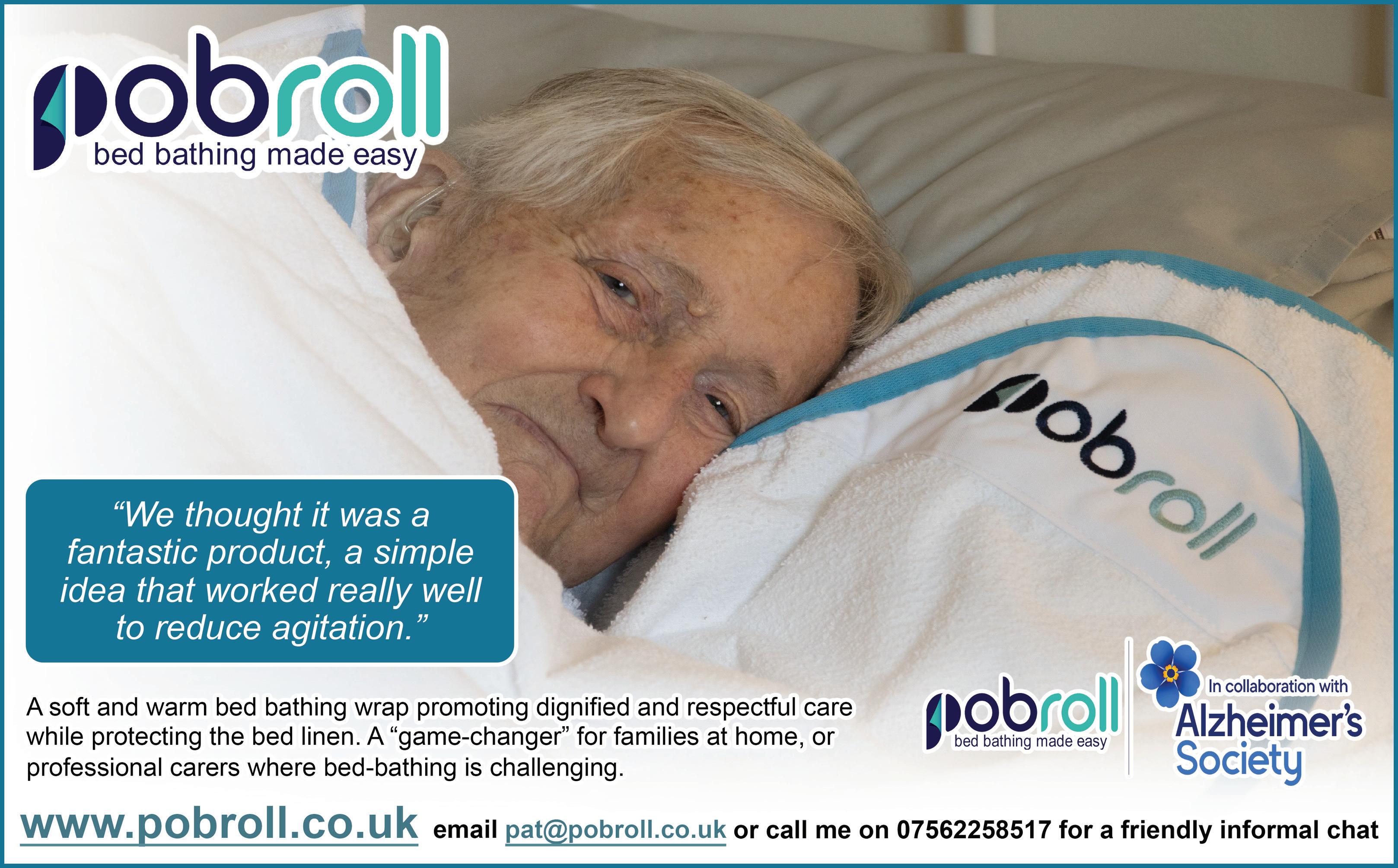
By Steve Gauke, Managing Director at Provira
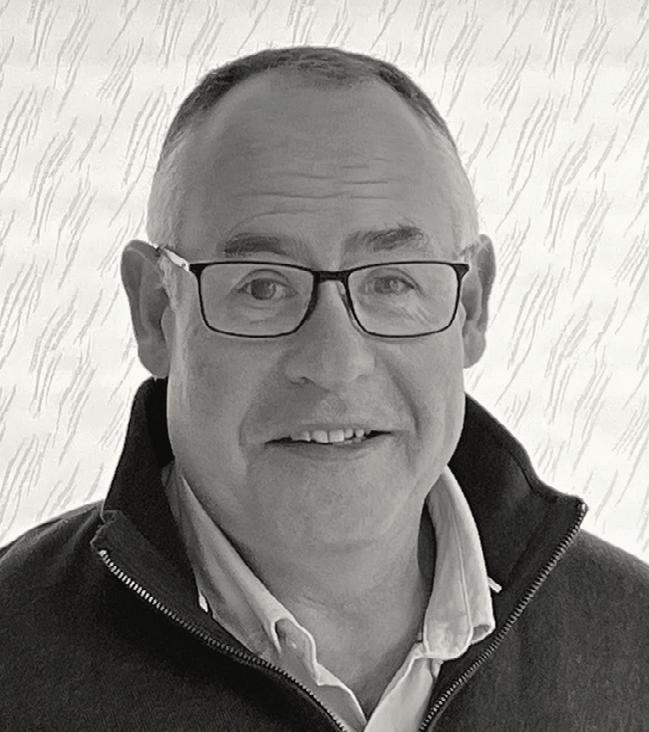
In every care home, residents bring the place to life. They are people full of stories who have lived exciting lives and who build real connections with those looking after them. When a resident passes away, it's not just the family that experiences grief; carers do too. And in these times, many families will look to the carers who have become familiar to them to guide them through this difficult time.
But apart from the emotional impact, families also face financial anxiety.
One of the most common worries we hear is: "Who is responsible for care home fees now that my family member has passed?".
Care home teams are often the first people families turn to for answers, so knowing the right information is important.
CARE HOME FEES ARE PAID FROM THE ESTATE, NOT BY RELATIVES
If a resident dies with unpaid fees, this is settled by their estate and is not paid for by their relatives.
The estate is a term used to describe the collective value of a person’s savings, property and other assets. The only time that family members are responsible for paying an outstanding care home bill is if they have explicitly agreed to be a guarantor.
If there is no estate or inheritance left by the deceased, then the unpaid amount is normally written off by the care home. Being able to reassure families of this early on can help remove a huge weight off their shoulders.
CARE HOMES
Care homes are allowed to continue charging for a short period of time after a resident dies.
This is because the room needs to be cleaned and prepared, and is unlikely to be ready for another resident right away.
As a general rule, care homes are not allowed to charge fees for more than 3 days after a person’s death (as long as another resident doesn’t take the room before then) or 10 days if their belongings are still in the room.
Care teams already handle this time sensitively, but knowing the regulations can help you answer any questions that families might have.
When it comes to who is responsible for paying the outstanding bill, this role sits with the executor of the
estate. If there is a will, an executor is the person named to carry out the wishes of the deceased. If there is no will, then this role is handled by the 'administrator'.
The executor is in charge of every financial aspect of the estate. That includes getting it valued, paying Inheritance Tax and applying for probate. And in the case of an outstanding care home bill, it means paying that too.
But probate, which is the legal process of being allowed to access the money in the estate, can take months to come through. This could mean that care home fees are due before the funds are accessible.
Between care fees, funeral costs and taxes, there are many financial elements for families to consider when a relative passes away.
Options like Estate Advances and Inheritance Advances allow executors and beneficiaries to access a portion of the estate before probate is completed, helping to cover outstanding fees quickly, including outstanding care home fees.
Another option, specifically for beneficiaries (those inheriting the estate), is an Inheritance Advance, which again allows them to access the inheritance before probate is completed, providing much-needed financial relief.
At Provira, we work with hundreds of families across the UK to help them access up to 50% of their inheritance early. Being aware of this means you can guide families towards financial support options so they have space to grieve.
WORKING TOGETHER WITH EMPATHY
Carers give families more than practical care. They are there every step of the way to provide comfort, support and reassurance.
Here are the key things you can share to help:
• Families are not liable to pay outstanding care fees.
• The estate, not the people inheriting the money, has to pay these costs.
• Some fees might continue after the person has passed away, but only within small limits.
• Support exists if families need some extra financial help whilst they wait for the funds to be released.
A CLOSING THOUGHT FROM ME
Carers are a line of support for families, and this continues even after their relative has passed away. By having the right information and giving reassurance when needed, you can help grieving families feel secure at a difficult time.
With the right advice, families can access the funds they need and focus on what really matters: honouring the life of the person they love.
Avante Care & Support held its annual Sparkle Awards ceremony on Wednesday, 12th November, honouring exceptional contributions from staff across its care homes, domiciliary care services and head office.
The prestigious event recognised excellence across 14 award categories, including Amazing Deputy, Star Carer, Catering Star and Outstanding Leader.
The ceremony took place at the Great Hall, Priestfield Stadium, attended by over 140 guests, including staff members, trustees and residents from Avante’s care homes.
Veronica Anthony-David, Director of People & Organisational Development, opened the proceedings with a warm welcome, extending congratulations to all nominees and expressing gratitude to staff for their unwavering commitment and dedication.

Managing Director Stuart Cross addressed attendees, providing an overview of Avante Care & Support’s achievements over the past year. He acknowledged staff members’ vital role in enabling vibrant and fulfilling lives for those in their care.
Chris Francis, Director of Property, then presented an update on the recently completed care home, Wain House, sharing time-lapse footage documenting the development from inception to completion.
Mr Francis also introduced a new initiative, the Green Sparkle Challenge Award, which encourages staff
to develop and implement environmentally sustainable practices within the workplace, submitting examples of their achievements in this area.
The ceremony spotlighted excellence in care practices within the organisation’s care homes and home care services, staff development, and those who consistently go above and beyond to support their colleagues and others.
After the awards were presented, the event was concluded by the Chair of Trustees, Andrew Ireland, who congratulated staff in attendance for their dedication and also recognised all Avante staff for the vital work they do every day.
Lyndsay Hopper, Marketing Manager and Sparkle Award Organiser said:
“I am delighted that the annual Sparkle award ceremony was once again a resounding success. The event provided an excellent platform to recognise and thank staff across the organisation for their dedication and hard work. Congratulations to all the award winners, those shortlisted, and everyone nominated for the Sparkle Awards 2025. I would like to extend my sincere thanks to our main sponsors, Bidfood and Beaucare as well as our individual award sponsors, EGMedia, Mediahawk, Lawson Queay and Compass Ltd. Their kindness and generosity played a pivotal role in making the Sparkle Awards a huge success”.
Care home group Greensleeves Care has released its latest Social Impact Report which highlights progress in delivering compassionate, person-centred care while expanding its positive impact beyond residents and colleagues and reaching into local communities and the wider environment.
The report, based on data from the financial year 2024-25, shows the leading care charity continuing to make a lasting difference to the lives of older people, not only through award-winning homes, but also through national awareness initiatives. Its Warmth of Care annual Winter campaign reached 8.5 million people nationwide, helping families feel informed, supported, and confident about care.
KEY HIGHLIGHTS
• Resident growth and continued satisfaction
• Our residents increased from 1,056 to 1,098 and the latest Resident Survey achieved its highest-ever response rate, with 95% of residents satisfied with their care and 99% happy with the support that they receive.
ENHANCED CARE AND ENVIRONMENTS
Renovation projects continue to ensure homes remain welcoming, safe, and modern, while 19 homes are now accredited under the Gold Standards Framework for excellence in end-of-life care. Meanwhile ongoing digital transformation including the rollout of digital care planning and workforce management tools is improving efficiency and modernising day-to-day operations.
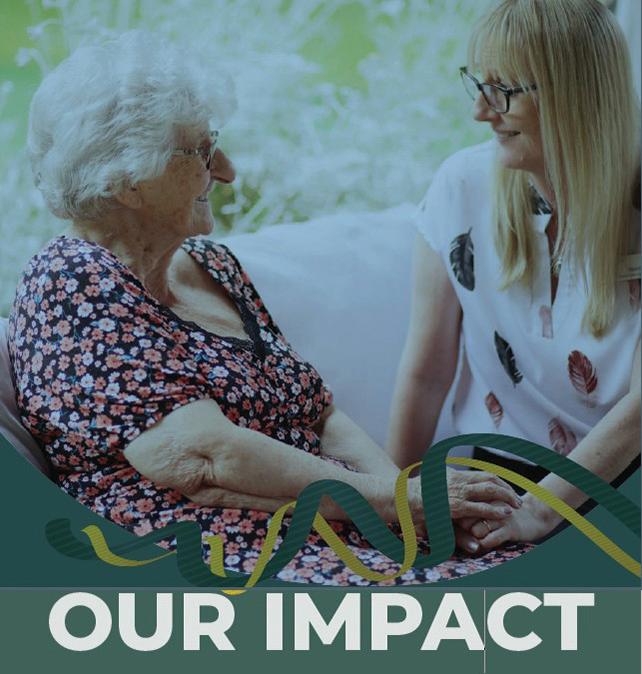
National recognition sustained Greensleeves Care was again named among the Top 20 Large Care Home Groups in the UK by carehome.co.uk for the eighth consecutive year. Broadlands Care Home also ranked among the Top 20 Care Homes in the East of England, and the organisation was shortlisted in four categories at the 2025 Care Home Awards.
INVESTMENT IN PEOPLE
The charity achieved Gold Accreditation with Investors in People (IiP), recognising its culture of professional growth and staff wellbeing. We also grew our commitment to boosting apprenticeships, earning a Silver accreditation from The 5% Club.
Chris Poole, Chief Executive of Greensleeves Care, commented:
“I’m delighted to share the achievements reflected in our latest Social Impact Report, which stand as a testament to the dedication, compassion, and professionalism of everyone across Greensleeves Care. These results demonstrate on the strong social impact foundations laid by my predecessor and our exceptional teams.
“As the new Chief Executive of this remarkable group, I’m focused on building on this legacy, growing our social impact even further and ensuring Greensleeves Care remains a place where residents, families, and colleagues alike can truly feel good about care: confident, supported, and proud of the difference we make together.”
A new study, funded by Alzheimer’s Society, has identified three existing medications that could be repurposed to treat or prevent Alzheimer’s disease.
The research led by Professors Clive Ballard and Anne Corbett at the University of Exeter, found that a shingles vaccine (Zostavax), Viagra (sildenafil) and a drug used to treat Motor Neurone Disease (riluzole), are the most promising existing medicines that could be repurposed to treat or prevent Alzheimer’s disease.
Dementia is the UK’s biggest killer, with around one million people in the UK living with the condition. One in three people born today will develop dementia in their lifetime – but there is currently no cure.
Developing entirely new drugs from scratch can take 10 to 15 years and can cost billions of pounds, with no guarantee they will work. Repurposing medicines already approved for other conditions offers a quicker, safer and cost-effective route to potential new treatments for dementia.
Alzheimer’s Society commissioned and funded the research, working in partnership with the University of Exeter as part of its mission to fund groundbreaking research, support people living with dementia and campaign to make dementia the priority it should be. The research is part funded by the National Institute for Health and Care Research (NIHR), Exeter Biomedical Research Centre and NIHR HealthTech Research Centre in Brain Health.
In this study, an international panel of 21 dementia experts from universities, hospitals and the pharmaceutical industry, as well as people affected by dementia, carried out a review of 80 existing drugs to identify which might have the greatest potential to treat or prevent Alzheimer’s disease, responsible for more than half of all the diagnosed cases of dementia.
After several rounds of careful review, the panel reached a consensus on the three ‘priority candidates’ for further investigation. These drugs were selected as they all targeted relevant mechanisms involved in Alzheimer’s disease, showed promise in cell and animal studies of Alzheimer’s and are known to be safe to use by older people
• Shingles vaccine (Zostavax) – research suggests a link between the shingles virus and dementia. Changes to the immune system are known to play a role in Alzheimer’s and the vaccine interacts with the
immune system in way that could help to protect against some of these changes.
• Sildenafil (Viagra) – shown to help protect nerve cells and reduce build up of the protein tau in the brain. In tests involving mice, it also improved cognition, thought to be due to increasing blood flow to the brain.
• Riluzole – currently used to treat motor neurone disease. In animal studies riluzole has shown promising results in improving cognition and reducing levels of tau.
The experts recommended that these drugs now be tested in clinical trials to understand their benefit for people with or at risk of Alzheimer’s disease, the most common form of dementia.
Of these three treatments, the shingles vaccine was found to be the most promising, particularly as it requires a maximum of two doses and has a strong safety record.
Previous studies show people who had the jab could be 16% less likely to develop dementia.
Dr Anne Corbett, Professor of Dementia Research at the University of Exeter, said: ‘Beating dementia will take every avenue of research – from using what we already know, to discovering new drugs to treat and prevent the condition.
“Drug repurposing is a vital part of that mix, helping us turn today’s medicine for one condition, into tomorrow’s treatment for another.
‘It’s important to stress that these drugs need further investigation before we will know whether they can be used to treat or prevent Alzheimer’s disease. We now need to see robust clinical trials to understand their true value and know for certain if they are effective to treat or prevent Alzheimer’s disease.’
Professor Fiona Carragher, Chief Policy and Research Officer at Alzheimer’s Society, said: “Dementia devastates lives, but we believe research will beat it.
‘Years ago, we saw aspirin being repurposed from being a painkiller to helping people reduce their risk of heart attack or stroke.
‘This is what we want to see in the field of dementia, and why we believe drug repurposing is one of the most exciting frontiers in dementia research.’
The team at a Sanctuary Care home in Worcester have raised hundreds of pounds for charity with a 10km Glow Walk.
Staff from not-for-profit Regent Residential Care Home, winner of this year’s Care Team of the Year Award in the Worcestershire Health and Social Care Awards, were joined by friends of the home and residents’ loved ones for their latest fundraising challenge.
Walkers met at the home in School Road, St John’s, at teatime and finished at Malvern Retail Park. Each participant contributed a £10 entry fee, with additional sponsorship collected at the home. The fundraising total has already surpassed £600, with donations continuing to come in.
The event was organised by Administrator Kathy Whittall and Housekeeping
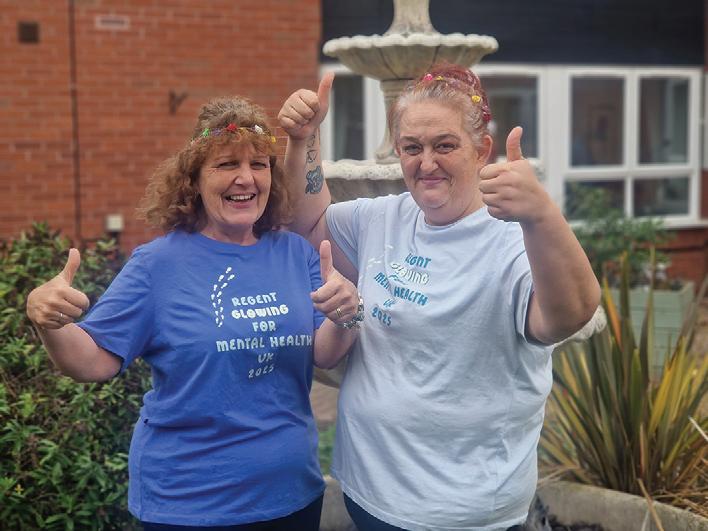
Supervisor Martina Bray, who take on a physical challenge every year to raise money for good causes. This year’s walk was particularly meaningful for Kathy, who underwent hip replacement surgery in December.
“It is still sore, but I got through it and am very proud, chuffed to bits – it was such an achievement,” said Kathy. “I was nervous that I wouldn’t get through it because this is my first big walk since the operation.”
Martina added: “We all arrived here at teatime, and we were buzzing. We wore glow-in-the-dark face paints and carried glow sticks. The atmosphere was lovely, and cars were all beeping at us as they drove past in support. It was such a community effort.”
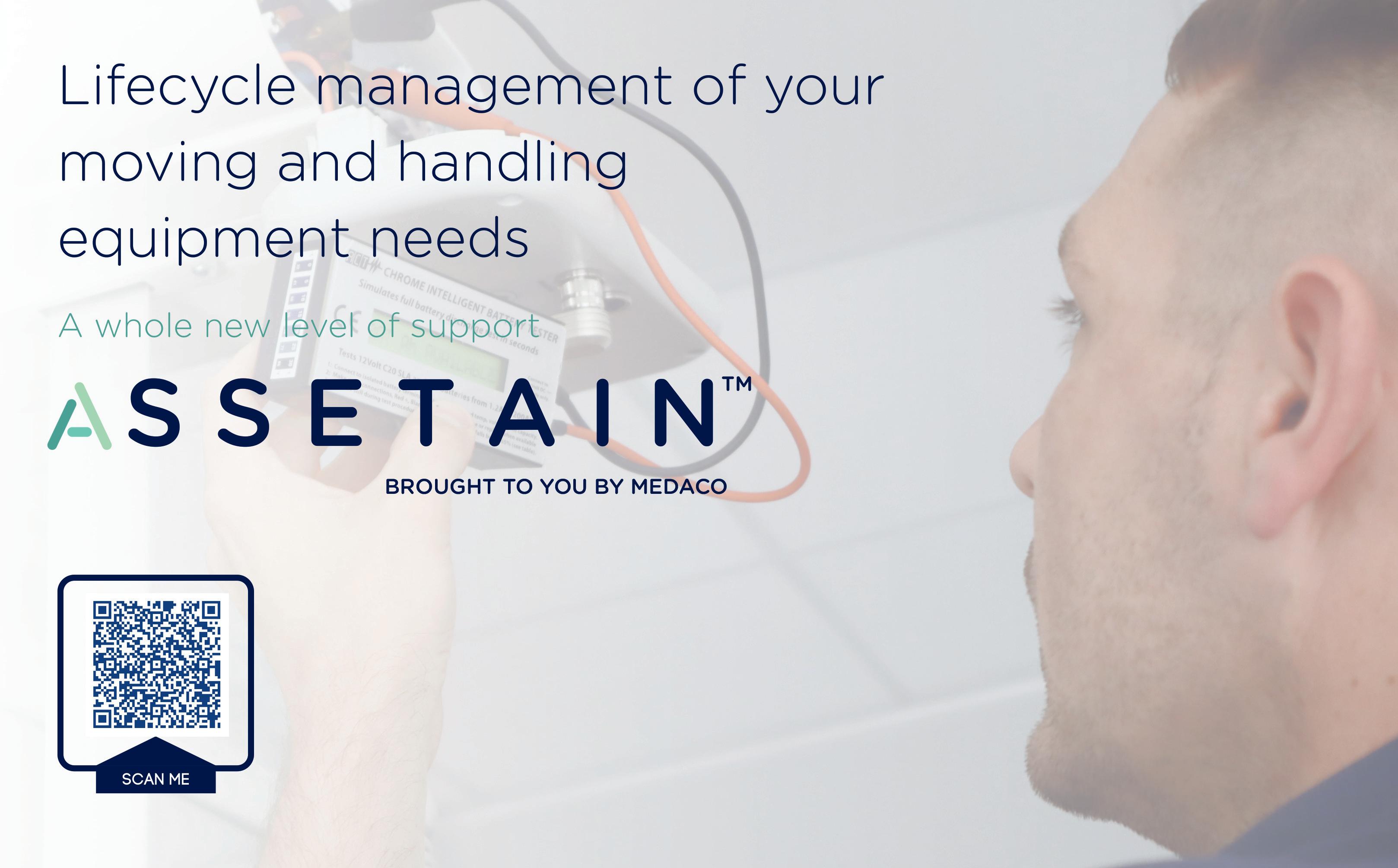

It’s estimated that around 1 million people in the UK are currently living with dementia, a number expected to rise to 1.4 million by 2040 if current trends continue. Although there is no guaranteed way to prevent dementia, certain daily activities can support long-term brain health and help reduce the risk, whatever your age.
Care expert Michael Berkley-Blezard from Elmfield Care’s Old Sarum Manor, shares five simple activities and hobbies that help keep the mind active as you grow older and may help reduce the risk of dementia.
1. STAYING SOCIALLY CONNECTED
“Social isolation is one of the biggest risk factors linked to developing dementia later in life. Staying socially active, whether it’s spending time with friends or family, or making an effort to get to know your colleagues at work, helps keep your brain active, while also reducing stress and supports the neural pathways that protect against cognitive decline,” shares Michael, from the care home in Salisbury.
2. LISTENING TO MUSIC, PLAYING AN INSTRUMENT OR SINGING
“Music, whether listening to it, playing an instrument or singing, is a great way to keep your brain sharp. This is because musical memory is a powerful type of implicit memory that’s typically hardwired into the
brain and is highly resistant to the changes that come with conditions like dementia. Scientific studies show that listening to music activates widespread areas of the brain, often reaching regions that other stimuli cannot.”
3. LEARNING A LANGUAGE
“Research has found that learning a second language may help delay the onset of dementia. This is thought to be because bilingual people develop greater cognitive reserve, making their brains more resilient to the damage dementia can cause. There are plenty of mobile apps and YouTube videos that make learning a new language affordable and accessible at any age. Dedicating a small amount of time to it every day can help you pick up new phrases and form new neural pathways.”
4. DOING A DAILY WORDLE OR SUDOKU
“One way to keep your brain sharp and healthy is to do puzzles regularly. Whether it’s playing Wordle before starting your workday, solving a sudoku in bed, or tackling a word search while watching TV, giving your brain a daily workout helps keep it in top condition. Puzzles engage multiple parts of the brain simultaneously, including memory, visual, and processing areas of, which helps strengthen and maintain neural connections.”
5. Reading 20 pages a day
“Reading on a regular basis is a wonderful way to keep your brain active and healthy. It provides mental stimulation that strengthens neural pathways and builds cognitive reserve, helping to protect against memory loss as you age. Even reading 20 pages a day will help to improve memory and attention, supporting long-term cognitive health. Reading also helps reduce stress, another key factor in maintaining a healthy brain at all stages of life.”
A recent decision by Northern Ireland Health Minister Mike Nesbitt regarding wage increases for social care workers has prompted significant concern within the independent care sector, with sector representatives highlighting the potential impact on workforce stability and staff financial wellbeing.
The Minister has clarified that a £209 million funding package designated for public sector healthcare workers will benefit those covered under established pay review mechanisms, including the Doctors’ and Dentists’ Review Body and NHS Pay Review Body structures. However, this financial provision does not currently include workers employed within independent social care settings.
In a statement, Minister Nesbitt said he remains “fully committed to resolving all our pay issues going forward and to funding the RLW at the earliest affordable opportunity.” He added that RLW funding would be a key priority during planning for the 2026/27 financial year, and that any future uplift would be “ring fenced, allocated transparently and with clear timing.”
Acknowledging the frustration caused, the Minister said he hopes positive relationships across the sector can be maintained and emphasised his recognition of the “dedicated social care professionals who

play such a vital role in our health and social care system.
The exclusion of independent sector care workers from the current pay uplift arrangements has raised questions about:
• Pay parity between public and independent sector care staff
• Recruitment and retention challenges within independent care provision
• The financial security of workers delivering essential care services
• The sustainability of the independent care sector’s operational capacity
Alan Perry, GMB Senior Organiser, said:
“Many of GMB’s members in the independent care sector are only paid the National Minimum Wage.
“They are totally appalled and extremely angry by this announcement and feel completely let down by the Minister.
“For many this is not a job, it’s a vocation to care for the elderly and most vulnerable in our society.
“Once again are let down by this Minister; they’ve had enough of his broken promises.”


• We specialise in the sale and purchase of quality used wheelchair accessible vehicles and ambulances.
• They can be bought as seen or refurbished and sign-written to your own requirements.
• Fully serviced, new mot & warranty
• Engineers inspection supplied if required.
• Free delivery service available
• All buses comply with new legislation
•
• Lease hire and purchase


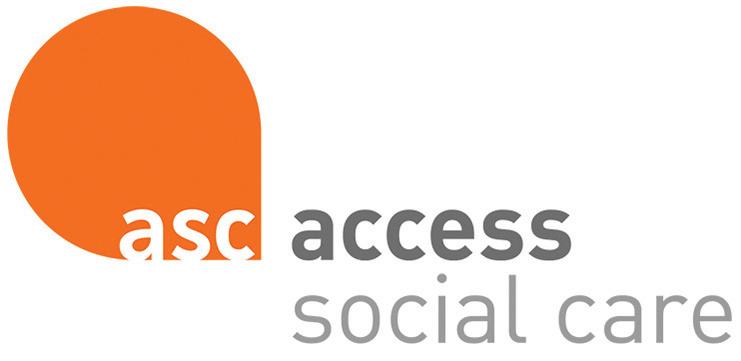
Access Social Care, a national legal rights charity providing free legal advice to people with social care needs, is fighting a landmark Freedom of Information (FOI) ruling after three separate government departments, HM Treasury, Ministry of Housing, Communities and Local Government (MHCLG) and the Department of Health and Social Care (DHSC), each lodged an appeal against previous orders to disclose crucial information. The appeals are set to be heard by the Information Rights Tribunal on the 17th, 18th, and 19th November 2025.
For four years, Access Social Care has campaigned for the UK government to disclose how it makes decisions on social care funding, believing that transparency is essential to create a system that works for everyone. The charity has submitted two rounds of FOI requests. One round relates to Equalities Impact information; the other relates to how the Government calculates funding sufficiency for social care (the sufficiency test).
The upcoming Information Rights hearings on 17th, 18th, and 19th November 2025 relate to the appeals over key adult social care funding decisions. HM Treasury, Ministry of Housing, Communities and Local Government (MHCLG) and the Department of Health and Social Care (DHSC) are challenging an Information Commissioner order to release details on how funding levels are determined. These requests were prompted by public statements from previous Ministers claiming that social care was adequately funded.
Economists at the Health Foundation maintain there is an £8.4bn annual funding gap in adult social care, a shortfall echoed by organisations such as Age UK and Healthwatch, which report that millions of people go without the care they need each year. The Health Foundation has further warned that adult social care will need an extra £3.4 billion a year by 2028/29 just to prevent further decline, anything less than this risks leaving people without the care they need, reducing the quality of services, and increasing the strain on unpaid carers. Earlier this year, Access Social Care’s annual State of the Nation report painted a similar picture, revealing a 45.6% increase in safeguarding concerns reported through helplines compared to the previous year, a stark warning of a social care system already under severe strain.
The launch of the Independent Commission on Adult Social Care (Casey Commission), chaired by Baroness Louise Casey, shows that the Government recognises these challenges, but with its full report not due until 2028, urgent action is being delayed. Decisive steps are needed immediately, and the transparency we are seeking through our FOI case is essential. Without clear disclosure on how funding decisions are made and equality duties are applied, the system cannot operate effectively, leaving people who rely on
social care uncertain and without the support they need.
Kari Gerstheimer, CEO of Access Social Care, said: “Transparency isn’t optional, it’s the foundation of a fair and accountable social care system. For four years, Access Social Care has urged the Government to show how it makes funding decisions and fulfils its equality duties when it comes to social care. The hearings on the 17th, 18th, and 19th of November are a pivotal moment. The public, local councils, and specialist organisations all deserve to know how social care funding is decided.”
This is not just an academic argument. Every day in our casework we see the human impact on disabled people, older people and their families and friends when social care is delayed or denied. 90% of council leaders claim they don’t have enough money to meet their legal duties to provide care. As a society we care about what happens to our loved ones when they need extra support – this case matters to all of us.”
Baroness Casey has been tasked with leading a national conversation on social care. Yet successive governments, including the current administration, have refused to share vital data needed to inform that discussion. This lack of transparency is deeply concerning. While in opposition, Keir Starmer made clear commitments to government transparency, yet his administration has declined to work with Access Social Care on this issue. How can a meaningful national conversation take place when the public is denied the fundamental facts? The public need to understand how the Government has assessed the scale of social care need and calculated the funding required to meet it. With councils across the country cutting social care budgets and families taking on ever-increasing unpaid care responsibilities, the need for clarity and accountability has never been more urgent.



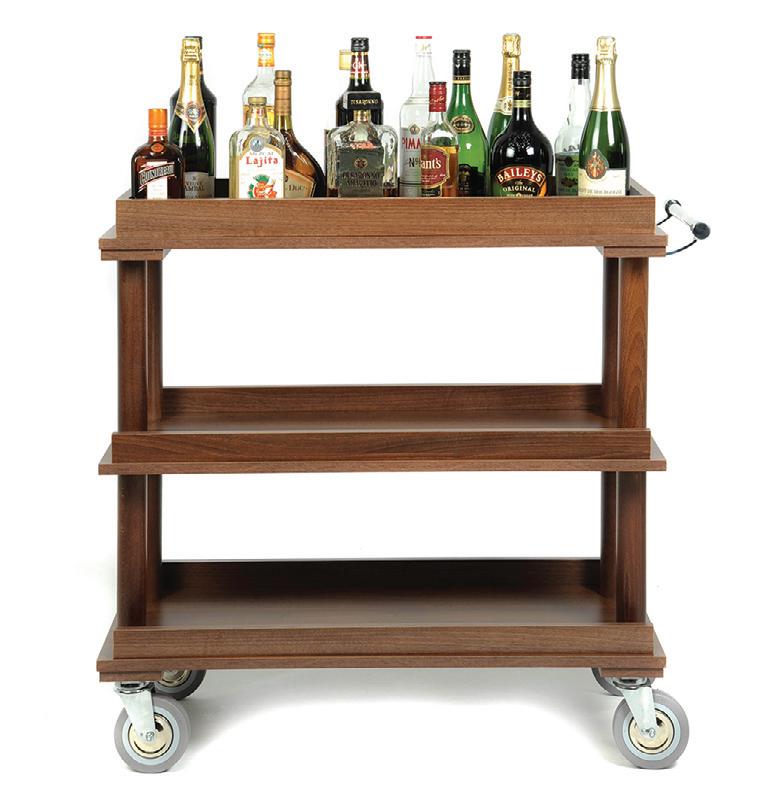
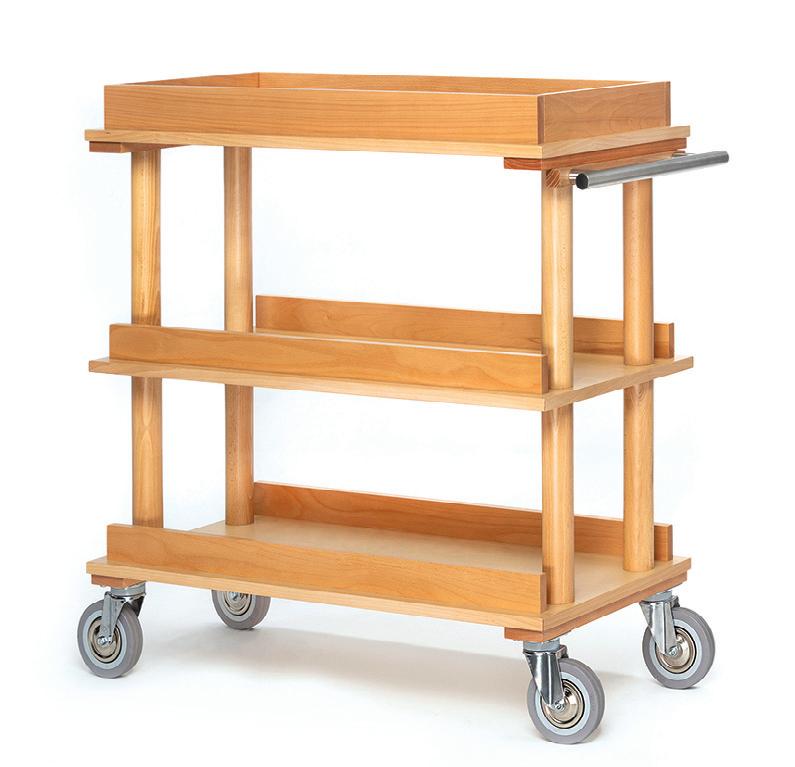
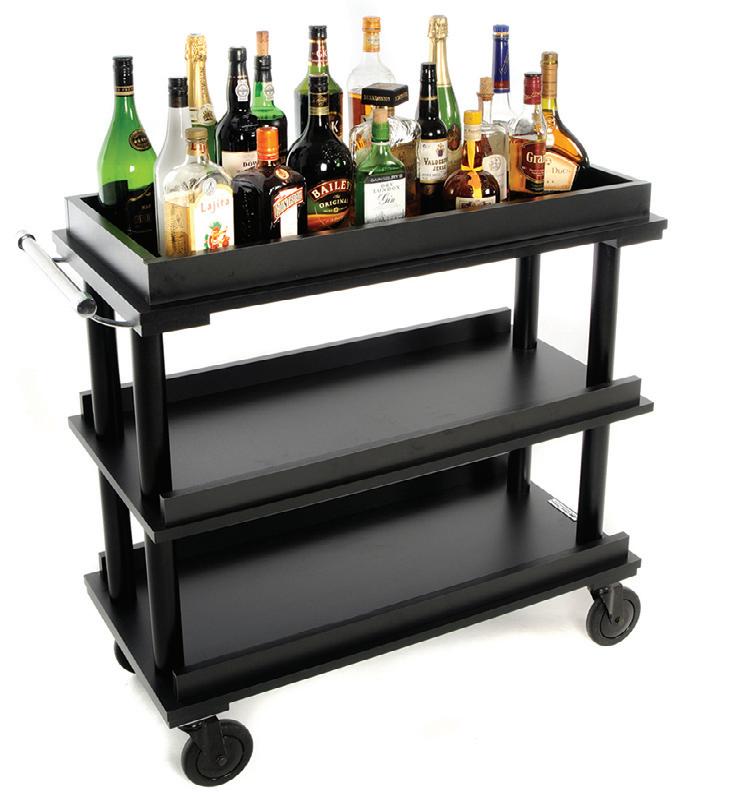
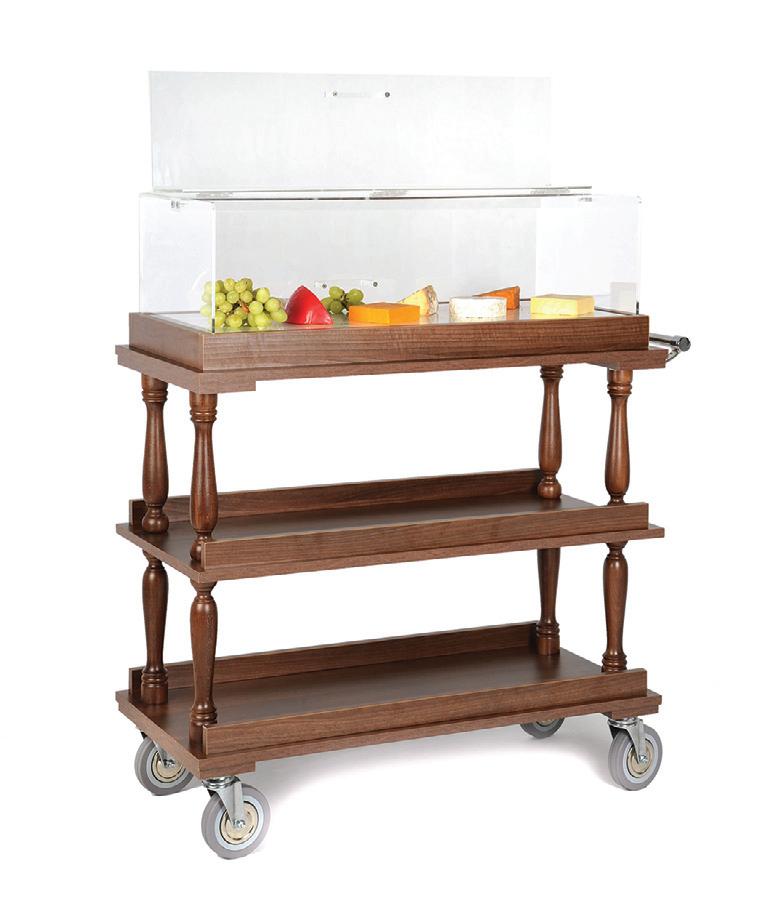
As Care Home Manager at Beechwood Care Centre, Sarah Kirk is an experienced care home manager and qualified nurse with a passion for supporting individuals with complex needs.
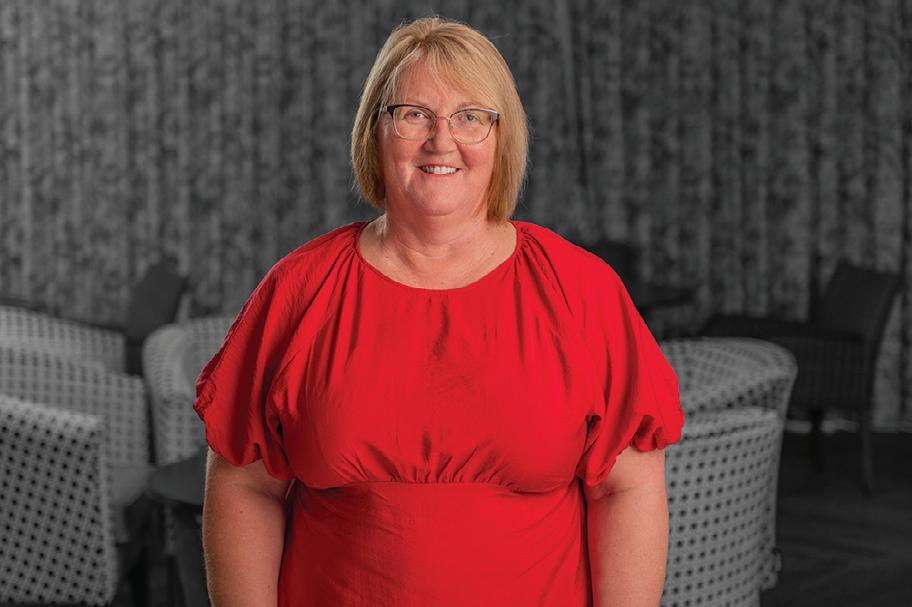
No day is ever the same - except for one thing: we all go out to make a difference to the lives of those we care for.
No two days ever start alike for a manager. Some mornings follow a night of calls; others begin by catching up on emails and deciding what needs attention first.
Arrival at work can vary too - you might need to complete an assessment on the way in, catch up with the night staff and the handover, then look at your desk and think, where do I even start?
Lists make a manager’s life easier. Mine come from our Outlook calendar, Post-it notes and the messages I send myself through the night just to get some sleep.
Let the day begin. Walk round the home, say ‘morning’ to the staff and residents who are already up,
Pet therapy has become a part of the everyday routine in many care homes in the UK. The positive impact animals can have on the well-being of residents is well documented. But bringing animals into a care setting brings its own problems. It can be expensive and disruptive, they can be temperamental, and even the cleanest pets raise hygiene issues.
V-Thera virtual pets allow you to offer all the fun and engagement of a real pet, but in a clean, predictable and flexible way that fits in perfectly with your care home routine.
From the moment the resident first puts the headset on, they are engaged and delighted as the pet sits, lies down, rolls over and feeds on command. They can even throw a ball for the pet to fetch. The experience is involving, relaxing and stimulating, enhancing a positive mood while encouraging movement and communication.
The pets themselves are wonderfully realistic, not just in the way they look, but in how they act. There are four dogs to choose from, and there’s even a moggie for cat lovers. They respond to voice or hand commands, or to big buttons on the screen. It’s ideal for previous pet owners, but also people nervous of animals.
V-Thera uses the latest Japanese mixed reality technology, meaning the virtual pet appears in the realworld, viewed through the headset. Seeing the familiar surroundings of their care home lounge reduces any sense of anxiety or disorientation for residents. The app can also be used lying down, so it can be used in bedrooms.
The technology itself is completely intuitive, designed for people with no experience of gaming. The headset reads hand movements, so there is no need for hand controls after set-up. Setting the app up is
check in on those still in bed and think to yourself, I wish it was me - just five more minutes, that’s all! Computer on. Notes on the desk read. Catch up with Heads of Department. Then come the surprise visitors of the day and you check your diary again thinking, oh, I missed that message, did I?
Then it’s time to make the calls, record what’s been done and before you know it everyone’s arriving for the first meeting of the day. You take a deep breath and think, 11am and all is well.
Coffee - made by someone else, thankfully, because the one you poured this morning is now stone cold, even in the thermos you thought would save it.
Touch base with families and professionals as they arrive. Talk to staff. Do another walk round, saying hello to everyone you pass, holding a hand, offering reassurance to a resident who’s upset, comforting a family who’ve just had bad news.
Next thing you know, it’s 2pm and you realise you haven’t eaten. Lunch takes an hour, between calls and questions and people who need you.
The afternoon disappears into more tasks and before long the 4pm and 5pm teams are heading home. You thank them for their hard work, look at the clock, 5.30pm already, and start to tidy up. You leave exhausted but knowing you’ve made a difference: for those in your care and for the team who support you. You say thank you, and leave - to start all over again when you get home.
The day of a manager never really stops. But then, as managers, we wouldn’t have it any other way.
easy and quick for staff, with no training required. It comes preloaded onto the latest Quest 3s headset, so it’s a simple matter of staff switching the headset on, selecting the V-Thera icon, selecting the dog – which you can name – then transferring the headset to the resident. They are immediately immersed in playing with the dog or cat.
The makers recommend sessions of up to ten minutes at a time, it’s very easy to accommodate the technology into the life of the home, and for staff it can create an excellent opportunity to bond with residents. A sharing function even means the sessions can be cast to other screens so all residents can share the experience.
The potential of new technologies like V-Thera for engaging with residents in a positive way points to an exciting future. The combination of advanced Mixed Reality with intuitive and thoughtful design means care homes can adopt the latest technology without disrupting the care routines already in place.
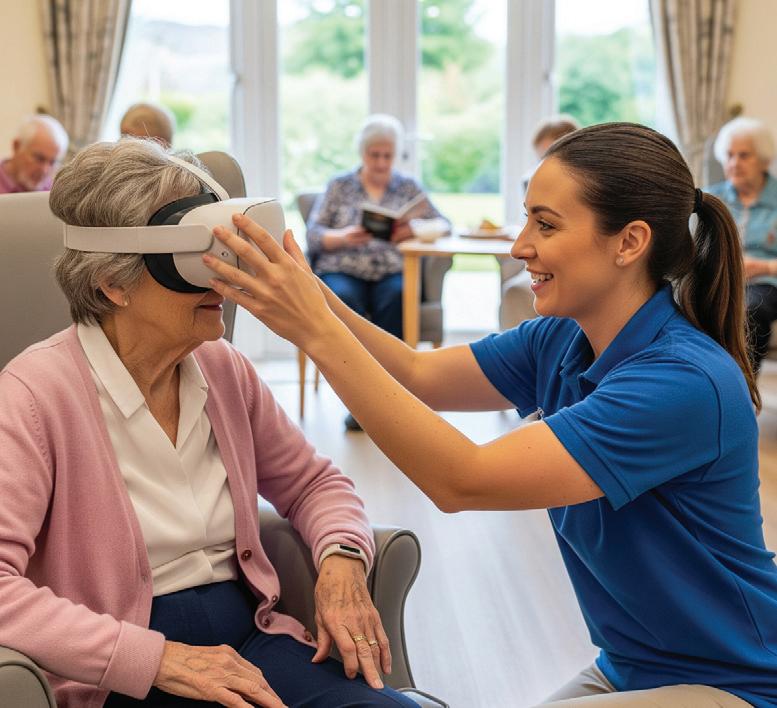
V-Thera was created in Japan by Remedy & Co and is available now in the UK through Care Activity Ltd. Managing Director Alison Lang says, “The minute we saw V-Thera, it was clear to us that this was an exciting innovation, a new way to offer something genuinely engaging to care home residents. The pets are fun, realistic and always ready to play. It is technology that brings care to life.”
Contact alison@careactivityxr.com www.careactivityxr.com
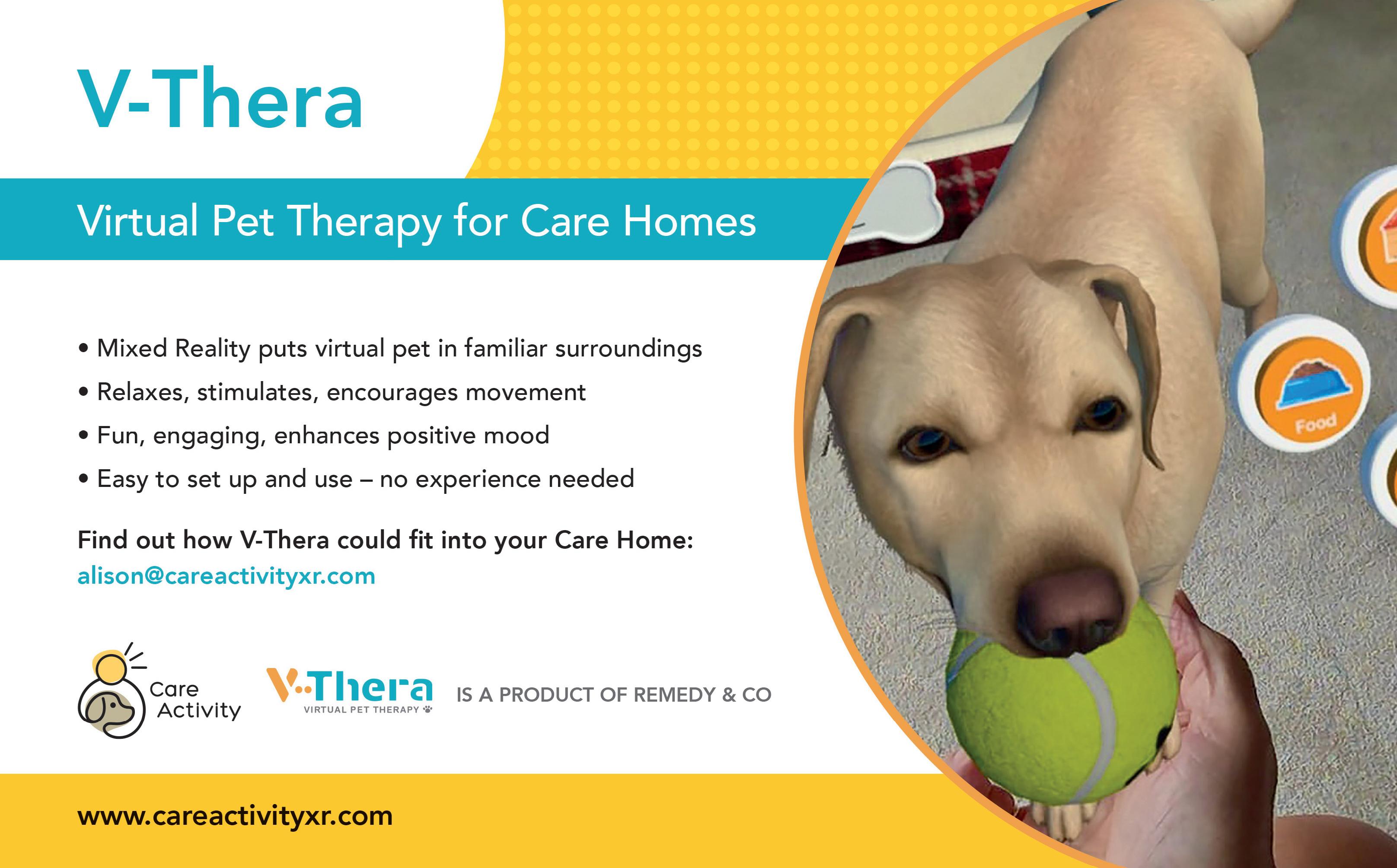
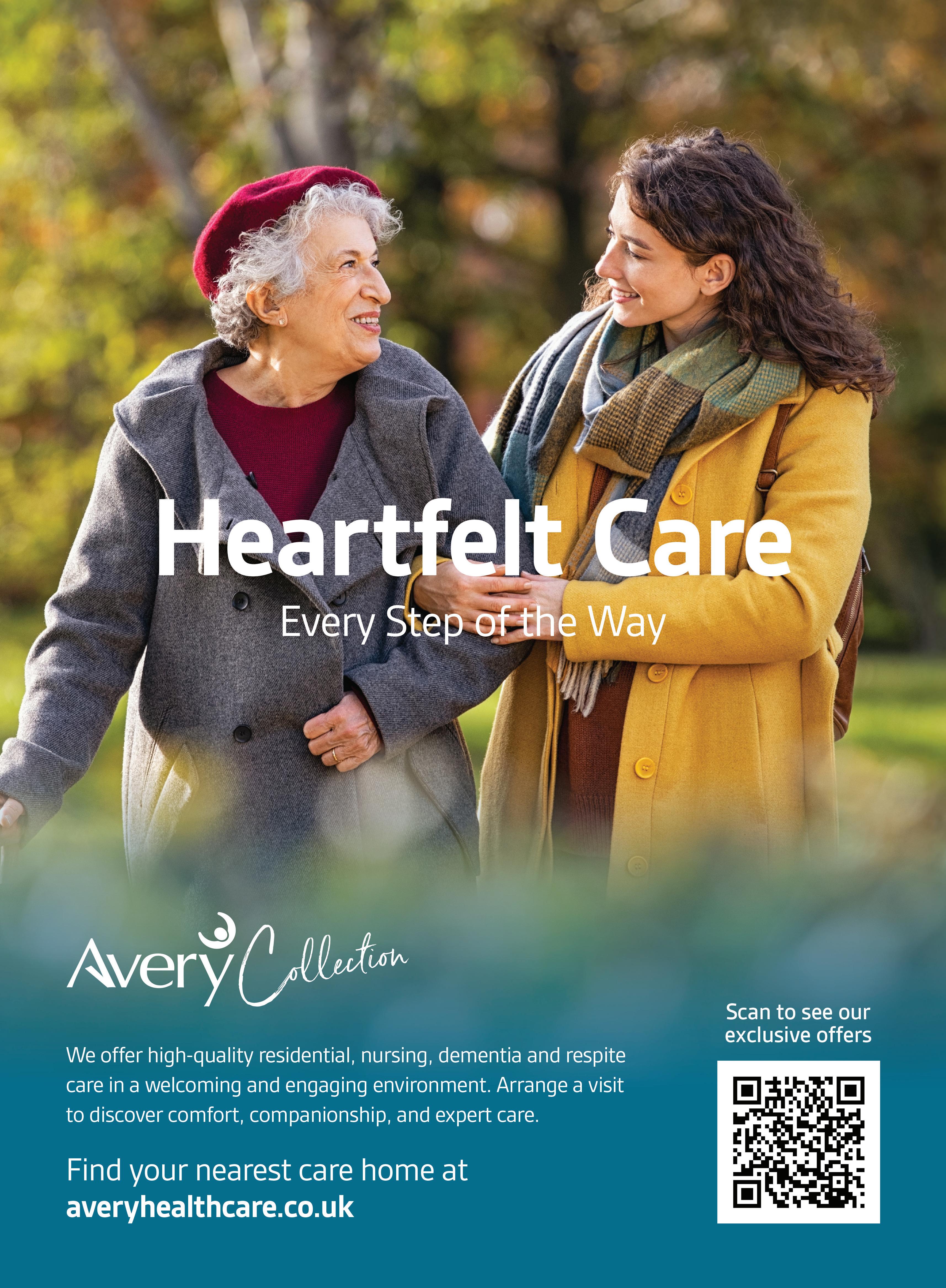
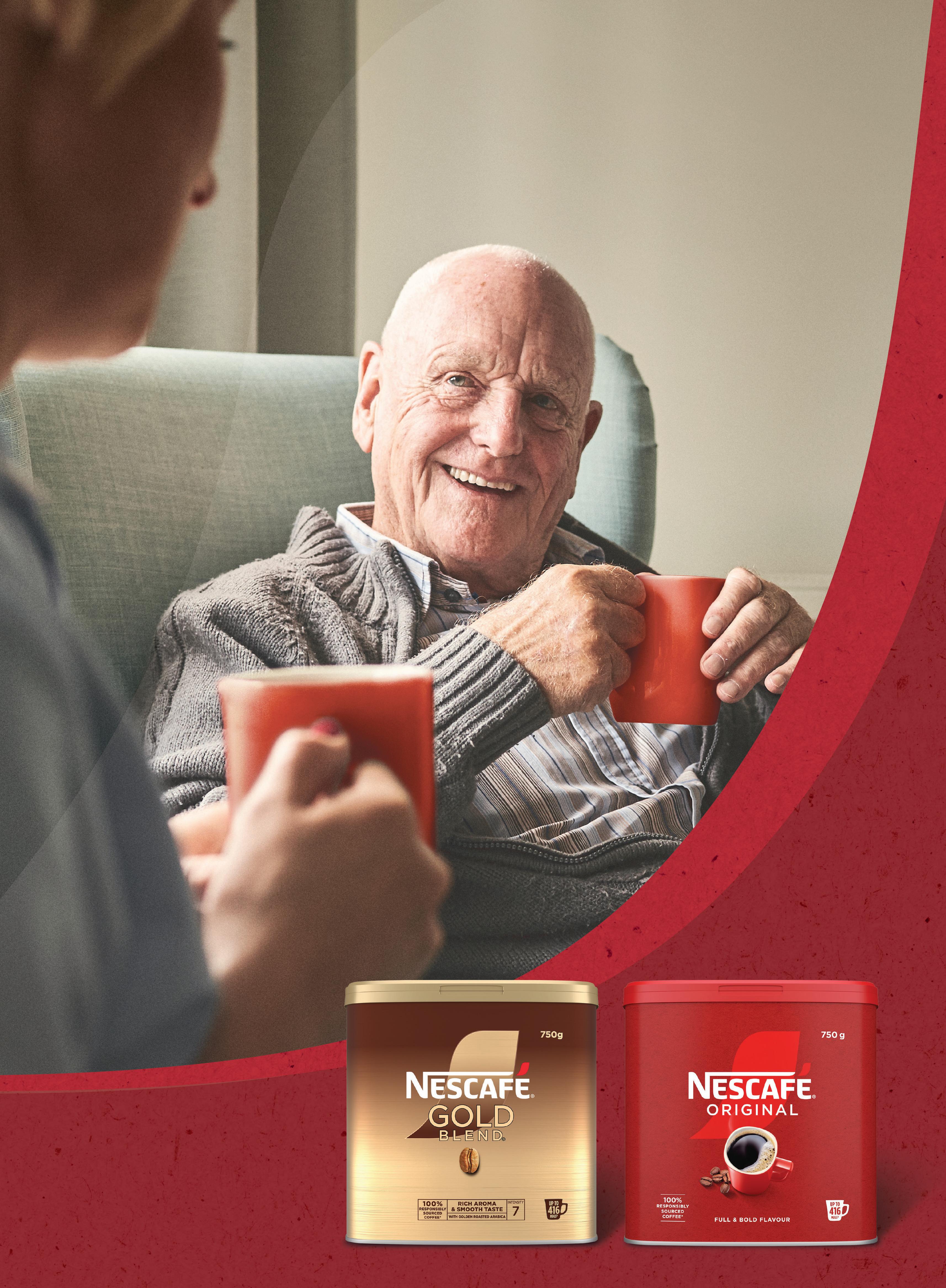


SEE US ON STAND J20 AT THE CARE SHOW
Social Care Wales has published the results of its third annual Have Your Say Social Care Workforce Survey, with over 5,700 social care workers sharing their experiences and perspectives on working in the sector.
The comprehensive survey explored key themes including wellbeing, pay and conditions, career progression, training needs, motivations for working in social care, and workplace priorities. The findings are designed to inform future policy development and support mechanisms for the workforce.
The results revealed encouraging improvements in workforce wellbeing, with levels now above the UK average. Increases were recorded in life satisfaction, happiness, and sense of purpose, suggesting a more positive workplace culture is emerging across Welsh social care settings.
The survey confirmed that the majority of care workers are motivated by a deep commitment to helping others, reinforcing the sector’s values-driven nature.
However, the data also highlighted areas of concern. Anxiety levels have risen, particularly among social workers, and now exceed the UK average. Social Care Wales has emphasised that mental health support remains available through Canopi, a free service for health and social care staff.
The survey found that 68% of respondents reported satisfaction with their terms and conditions. However, Social Care Wales acknowledged that further work is needed to improve pay across the sector.
A recent evaluation of the Real Living Wage (RLW) implementation showed that over 80% of the work-
force now benefits from this commitment, though efforts continue to extend coverage to remaining workers.
The Social Care Fair Work Forum is finalising a voluntary Pay and Progression Framework for social care, with details expected in the new year. The framework aims to support consistent pay structures and highlight career development opportunities across the sector.
Social Care Wales is also working with the UK Government on the Employment Rights Bill and Fair Pay Agreements for social care. The Senedd has passed the legislative consent motion for Wales, and consultation on developing a Negotiating Body to set Fair Pay Agreements is planned for the near future.
The Social Care Workforce Partnership, bringing together government, employers, and trade unions, has agreed several priorities following sector engagement. These will be formally shared early next year and include:
• Recognition Agreements and Trade Union Access
• Disciplinary and Grievance Procedures
• Health and Safety, including protection from workplace violence
Recruitment and retention remain central priorities for Social Care Wales, with commitments to scale up best practice, create clear progression pathways, and improve perceptions of social care as a long-term career.
The full report and summary of responses are available at insightcollective.socialcare.wales
Bristol’s St Peter’s Hospice has won an award for its innovative approach to developing people and transforming workplace culture.
The charity was awarded HRZone’s Culture Pioneers Learning Award at a ceremony celebrating the organisations and leaders building workplace cultures that transform performance, loyalty and learning.
The Learning Award was achieved after the Hospice’s Learning and Development (L&D) team rolled out a bespoke leadership training programme that built confidence, strengthened connections and enhanced capability.
Around 100 leaders within the St Peter’s Hospice organisation took part in the training as well as the CEO and senior leadership team.
As well as being recognised for leadership training, the charity’s new evolved retail induction programme was highlighted along with the policies and processes created centrally that have made learning accessible for all.
Amy Gillespie, People Director at St Peter’s Hospice, said: “I’m so proud of our L&D team, who won this award for building a pioneering learning culture and for celebrating every success, big or small, across our diverse teams. Our approach has strengthened engagement, reduced turnover and improved performance.”

Suzanne Taylor, St Peter’s Hospice Leaning & Development Business Partner, said: “This recognition highlights St Peter’s Hospice’s ongoing commitment to investing in people, nurturing leadership and creating a supportive, purpose-driven workplace where everyone can thrive.
“We wanted to bring learning to life with the introduction of the Leadership programme. As an organisation we have learning embedded within our 2025 strategy, in fact, ‘Leading, Learning and Innovating’ is one of our three core pillars. Learning isn’t just encouraged, it’s part of our culture and our future.
“A shout out must also go to our retail trainer Louisa Merchant-Locke, who has transformed our retail induction programme and is doing amazing work building career pathways for our retail leaders.”
The HRZone Culture Pioneer Awards was made up of five categories. Commenting on St Peter’s Hospice winning the Learning Award, organisers said:
“With 550 employees and 1,500 volunteers, St Peter’s Hospice shows what’s possible when you put learning at the heart of your strategy. They launched leadership development pathways, co-created a 12-week retail induction and saw a 12% increase in employees feeling they can learn new skills. Impressively, they now share this expertise through resilience training for NHS staff and leadership training for local partners.”
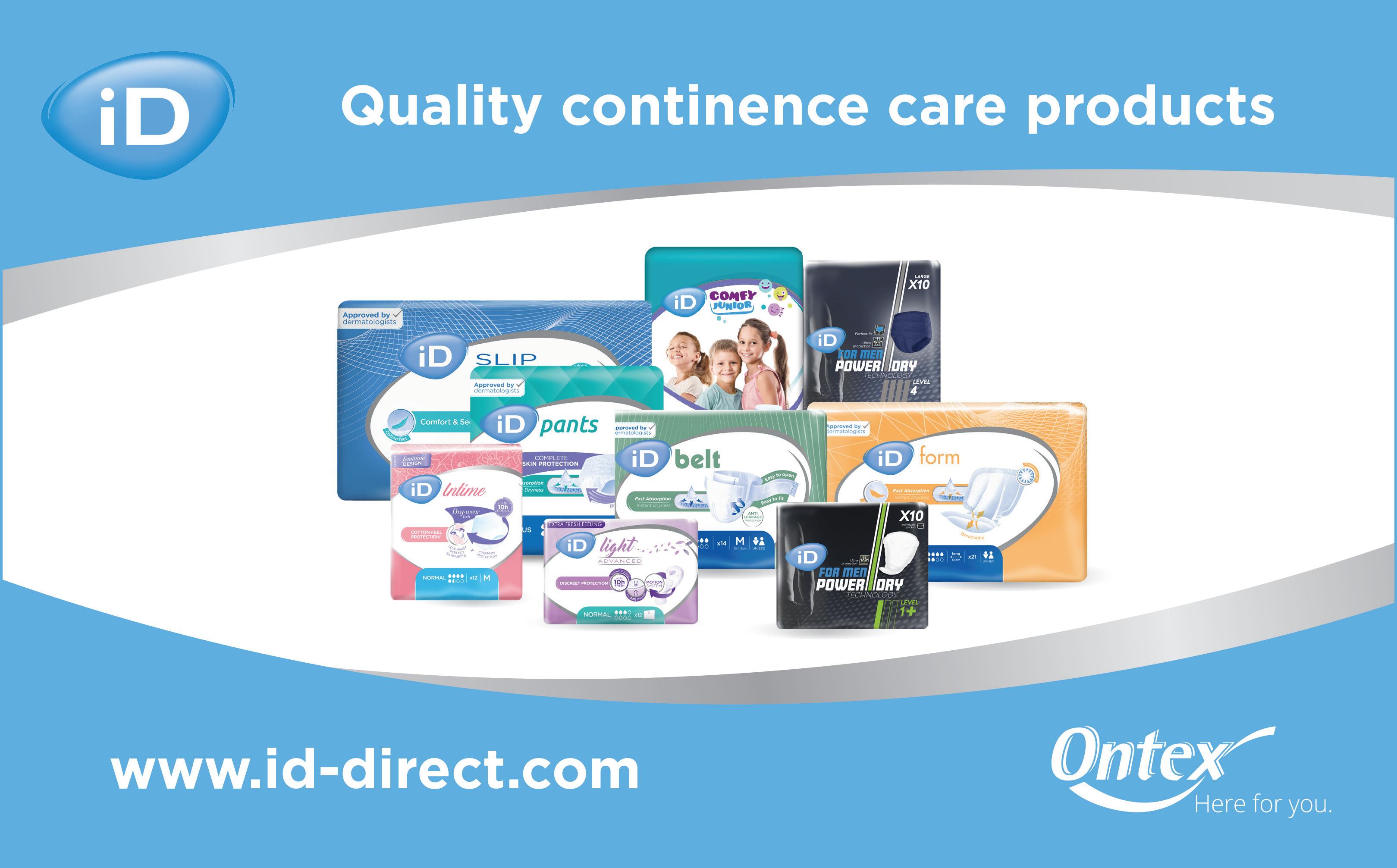
As the UK marks Malnutrition Awareness Week (17–23 November 2025), Greensleeves Care is celebrating a milestone achievement — with three of its care homes, Lavender Fields in Sevenoaks, The Manor in Windsor, and Broadlands in Suffolk, becoming the first in the UK to achieve the prestigious RaisingNutrition Accreditation.
This recognition highlights Greensleeves’ commitment to championing healthier, freshly prepared food that supports residents’ health, independence, and wellbeing — values that sit at the heart of both the RaisingNutrition Accreditation and the national awareness week, which seeks to prevent and reduce malnutrition across health and care settings.
Greensleeves understands that good food is central to good care. Each of the three homes demonstrated a strong focus on providing freshly cooked, whole-food-based meals that are visually appealing, full of flavour, and nutritionally balanced — offering vital nourishment to support immune health, mood, memory, and sleep.
As part of the accreditation process, both catering and care teams completed RaisingNutrition training, building their understanding of how food impacts wellbeing and how to encourage healthier choices among residents. The homes built on their existing high standards to:
• Offer and promote a wide variety of vegetables, fruits, and whole foods.
• Ensure healthy hydration, with some homes offering decaffeinated
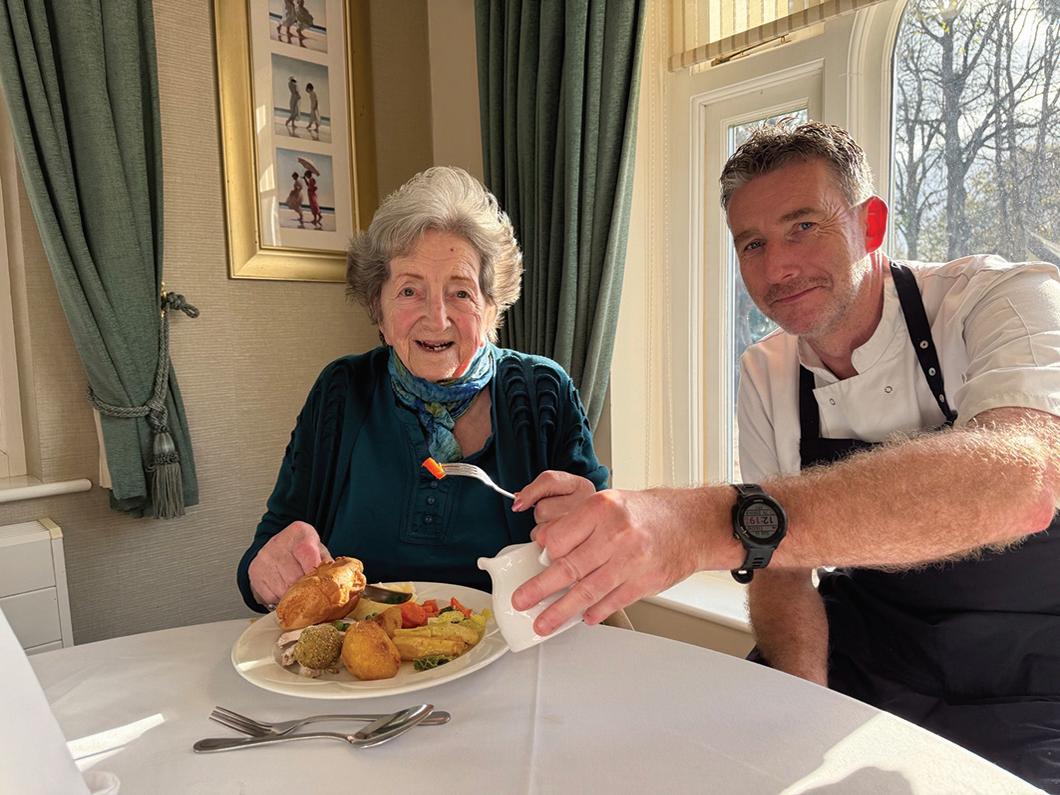
drinks as the default.
• Increase the number of recipes and baked goods prepared on-site, incorporating nutrient-dense ingredients such as nuts and seeds where
appropriate.
Following this success, Greensleeves is now rolling out the RaisingNutrition Accreditation programme to a further four care homes within its group — extending its commitment to putting good nutrition at the centre of quality care.
“We’re delighted that Lavender Fields, The Manor and Broadlands have achieved the RaisingNutrition Accreditation, becoming the first care homes in the UK to do so,” said Steve Morton, Head of Nutrition, Wellbeing and Dementia for Greensleeves Care. “It’s particularly fitting that this recognition comes during UK Malnutrition Awareness Week, which shines a light on how essential good food and hydration are to overall wellbeing. Our teams are passionate and dedicated to providing food that not only tastes great but actively supports residents’ health, independence, and enjoyment of life — and our accreditation partnership with RaisingNutrition ensures we continue to lead the way in delivering excellence in this area.”
“We are thrilled to award Greensleeves Care the first RaisingNutrition Accreditations in the care sector,” said Jenna Mosimann, Founder of RaisingNutrition. “Their homes have shown a true commitment to placing nutrition and wellbeing at the centre of care. We are delighted to see this approach now being extended across more of the Greensleeves group.”
The team at a Sanctuary Care home in Worcester have raised hundreds of pounds for charity with a 10km Glow Walk. Staff from not-for-profit Regent Residential Care Home, winner of this year’s Care Team of the Year Award in the Worcestershire Health and Social Care Awards, were joined by friends of the home and residents’ loved ones for their latest fundraising challenge. Walkers met at the home in School Road, St John’s, at teatime and finished at Malvern Retail Park. Each participant contributed a £10 entry fee, with additional sponsorship collected at the home. The fundraising total has already surpassed £600, with donations continuing to come in. The event was organised by Administrator Kathy Whittall and
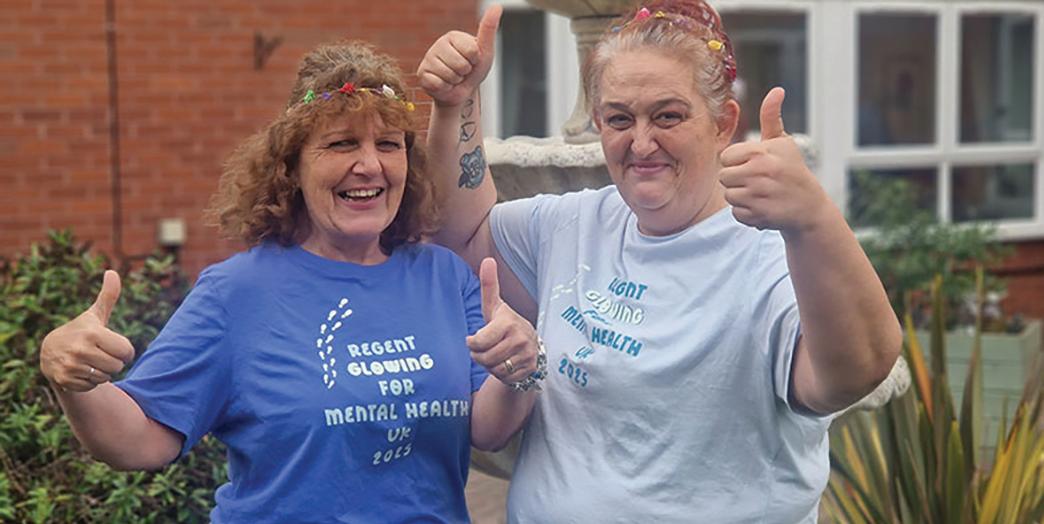
Housekeeping Supervisor Martina Bray, who take on a physical challenge every year to raise money for good causes. This year’s walk was particularly meaningful for Kathy, who underwent hip replacement surgery in December.
“It is still sore, but I got through it and am very proud, chuffed to bits – it was such an achievement,” said Kathy. “I was nervous that I wouldn’t get through it because this is my first big walk since the operation.”
Martina added: “We all arrived here at teatime, and we were buzzing. We wore glow-in-the-dark face paints and carried glow sticks. The atmosphere was lovely, and cars were all beeping at us as they drove past in support. It was such a community effort.”

How technology-driven engagement is boosting morale, staff retention, and wellbeing in UK care homes.
In today’s social care environment, the pressures on providers have never been greater. Rising costs, recruitment uncertainty, and increasing expectations from families and the CQC are leaving many care homes stretched thin. Yet, amid these challenges, one innovation is quietly reshaping daily life for both staff and residents - the Mobii Interactive Projection System from OM Interactive.
Drawing on OM Interactive’s 2025 Nationwide Survey of care professionals, The Mobii in Care: Executive Insights 2025 reveals powerful evidence that interactive technology can do more than engage - it can rebuild morale, reduce workload, and help care teams deliver the quality of care they aspire to.
Care work is among the most rewarding professions, but it is also one of the most emotionally demanding. Many care teams report that introducing the Mobii has brought back a sense of joy, pride, and connection to their daily work.
“Staff feel able to offer a more meaningful experience for service users,” says Marion Hunt, Advanced OT/Sensory Lead at The Hatherton Centre, MPFT.
That feeling matters - because it directly supports staff retention and resilience. When staff see residents light up with engagement, they’re reminded why they chose care in the first place.
Most managers surveyed said the Mobii has made a positive difference to staff workload, reducing stress and freeing up time to focus on genuine interaction. “It’s very easy to set up and use, which frees up the team’s time to spend more time engaging in a group activity,” shares Celia Milton, Activity Champion at Anchor’s Limegrove Care Home.
For carers, it’s not just about having a new tool - it’s about having something that makes their day feel easier, more purposeful, and more connected.
ENHANCING WELLBEING FOR RESIDENTS AND STAFF
The impact on residents is equally remarkable. An overwhelming 90% of care homes said the Mobii has enhanced wellbeing and engagement for both residents and staff. Through light, sound, and movement, it brings interactive experiences directly onto any surface - sparking laughter, movement, and conversation.
“The residents who would seem lethargic and unalert would be revived when the therapeutic games are played,” explains Carolyn Weisey, Activities Coordinator at St Annes Care Home.
Even residents living with advanced dementia have shown renewed participation. “Increased participation, especially from our residents living with more advanced dementia,” adds Celia Milton.
For many homes, this shared experience creates a calmer, happier environment - one where relationships thrive, and residents and carers alike feel more connected.
In a sector where inspections and accountability are central, the Mobii also provides measurable support for achieving CQC excellence. Homes using the Mobii report improved outcomes within the “Caring” and “Responsive” categories - both areas where person-centred engagement is critical.
“It can be used for person-centred activities as there is something to suit all needs - and CQC love that,” says Colette Yuksel, Activities Coordinator at Stocks Hall Nursing Home Burscough.
This ability to provide inclusive, evidence-based engagement demonstrates a home’s commitment to meaningful care - something inspectors, families, and staff all value highly.
With the upcoming Immigration Bill expected to limit access to overseas care workers, providers across the UK face mounting pressure to retain and support their teams. Recruitment challenges, rising agency costs, and burnout are creating a perfect storm - one that demands creative, proactive solutions.
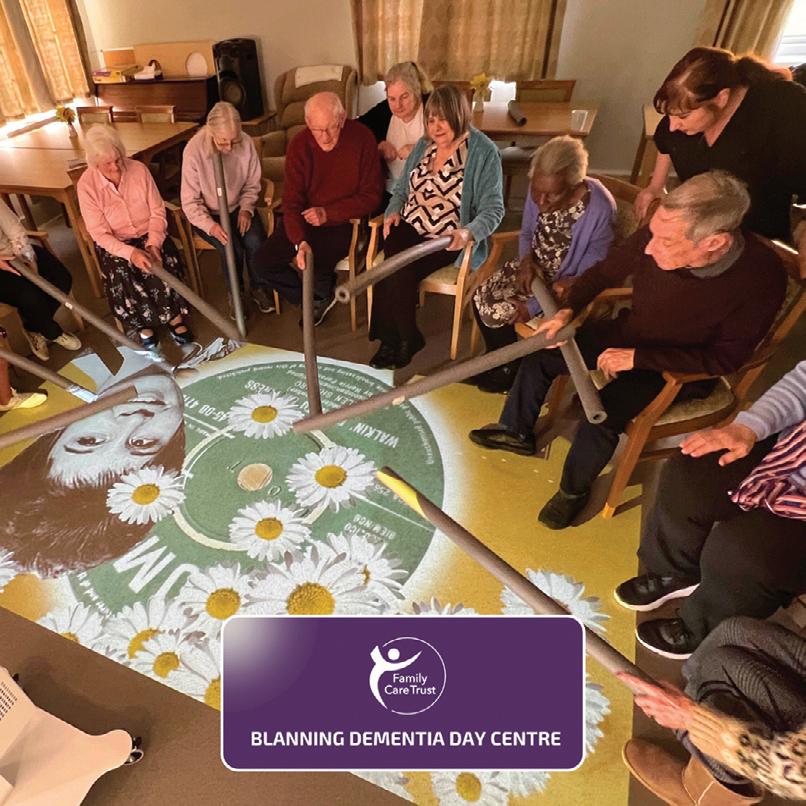
The Mobii offers exactly that. It simplifies activity planning, empowers staff to deliver more meaningful sessions, and helps build a workplace culture centred on pride, teamwork, and connection.
As Katherine Huntley, Activities Lead at Dewdown House, puts it:
“Staff love playing with this alongside the residents - it really helps with bonding.”
Real-World Results from UK Care Providers
The survey findings speak for themselves:
94% said the Mobii enables more quality time with residents.
89% saw improved mood and interaction.
• 81% reported enhanced wellbeing and engagement.
90% saw improved memory recall.
• 93% would recommend the Mobii to other care providers.
These numbers reflect what many care professionals already see every day - a calmer, happier, more connected environment where both residents and carers can thrive.
TECHNOLOGY WITH HEART
As social care continues to evolve, the most successful innovations will be those that combine practicality with compassion. The Mobii proves that technology doesn’t have to replace the human touch - it can enhance it, helping carers do what they do best: connect, comfort, and care.
For care providers looking to strengthen staff wellbeing, enrich residents’ lives, and demonstrate excellence to the CQC, the question isn’t whether they can afford to invest in engagement technology.
It’s whether they can afford not to.
The NHS may have to cut frontline staff or services due to the financial impact of further strikes on already squeezed budgets, health leaders warn.
Resident doctors are due to stage walk-outs across England on Friday as part of the ongoing dispute between the British Medical Association (BMA) and the government over pay and conditions.
The NHS Confederation and NHS Providers are now warning that if strikes continue this will pile yet more pressure on constrained budgets and if the NHS has to absorb these costs, it could mean other services need to be cut.
The two organisations are issuing a last-minute call urging the BMA to call off the walk outs due to the excessive disruption they will cause to patients and the impact they could have on NHS performance and finances.
They warn that if strikes incur further costs this could result in staffing levels being cut or fewer tests, appointments and operations being carried out. This would risk jeopardising progress against key waiting time standards, including hitting the 18-week target for planned care.
The knock-on impact of this will mean more patients continuing to wait longer for care, many of whom may no longer be able to work without the treatment they need, reducing revenues from taxation and increasing costs from out of work benefit.
The last five-day walk-out in July is estimated to have cost the health service £300 million and was one of three unplanned cost pressures not included in the NHS’s budget for 2025/26 along with redundancy costs and potentially higher drug prices.
NHS leaders and their teams are already gearing up to fill rota gaps and ensure patient safety is prioritised at all times during the strikes, working incredibly hard to try to maintain at least 95% of elective activity as instructed to in recent correspondence from NHS England.
But despite their best efforts it is likely that tens of thousands of
patients could have their appointments, tests or operations cancelled or delayed if surges in demand require NHS teams to prioritise urgent and emergency care.
The last time resident doctors went on strike, over 54,000 procedures and appointments needed to be cancelled or rescheduled, despite the NHS maintaining 93% of its planned activity.
The early flu season could further exacerbate these pressures, with higher demand on urgent and emergency care and increased staff sickness making it more difficult to fill rota gaps.
NHS Confederation chief executive Matthew Taylor said:
“There is no doubt that patients will bear the brunt of this disruption, with tens of thousands of tests, appointments and operations likely to be delayed or cancelled. NHS leaders understand how frustrating this will be for them being left waiting in pain or discomfort, not knowing when their treatment will be rescheduled.
“With flu already beginning to bite there is a real risk that these strikes will leave the NHS limping into a very difficult winter at a time when it is trying to recover performance and implement vital long-term reforms.
“But industrial action is also having a major financial impact on the NHS, with the last five-day walk out estimated to have cost a staggering £300 million. These costs are not included in the health service’s budget, which is already very tight given the strain on public sector finances. This means that more strikes will blow further holes in these constrained budgets and could result in leaders having to cut staff or reduce service levels in order to balance the books.
“The BMA must recognise that these strikes are disproportionate, given the current financial environment and the fact resident doctors have already had one of the biggest pay rises in the public sector. We would urge them to call them off, moderate their demands to something achievable and re-enter negotiations.”
Health and safety professionals across the world can celebrate the importance and impact of their lifesaving work and become part of a respected legacy of health and safety excellence, as the Royal Society for the Prevention of Accidents (RoSPA) opens applications for the RoSPA Health and Safety Awards 2026, sponsored by NEBOSH.
The 2026 Awards both recognise those individuals and organisations continuing this proud tradition, while also looking to the future and the importance of innovation in ensuring high health and safety standards in the rapidly changing world of work.
RoSPA Chief Executive, Becky Hickman, said:

“Reaching the 70th anniversary of the RoSPA Health and Safety Awards is an achievement of which RoSPA is incredibly proud. Ever since the awards were established in 1956, it has been a real privilege for RoSPA to celebrate and recognise those organisations and individuals whose tireless efforts prevent accidental deaths and injuries in the workplace. This year we are once again looking forwards to honouring those who show their longstanding dedication to the highest health and safety standards by entering year after year, and also inviting new entrants to join RoSPA in working towards our vision of an accident-free world.”
The RoSPA Awards welcomes applications from organisations of all sizes, from SMEs to blue chip companies. While the Award’s scheme main categories recognise health and safety excellence for organisations and their safety management systems, the Inspiration Awards also celebrate the achievements of individuals and teams.
As well as offering non-competitive achievement awards – in which Gold, Silver, Bronze and Merits are awarded – entrants can bid to be crowned the winner across a range of industry sectors such as construction, manufacturing and entertainment. The highest accolade is the Sir George Earle Trophy, awarded to one organisation each year for its outstanding commitment to workplace.
To enter the 2026 RoSPA Health and Safety Awards www.rospa.com/awards



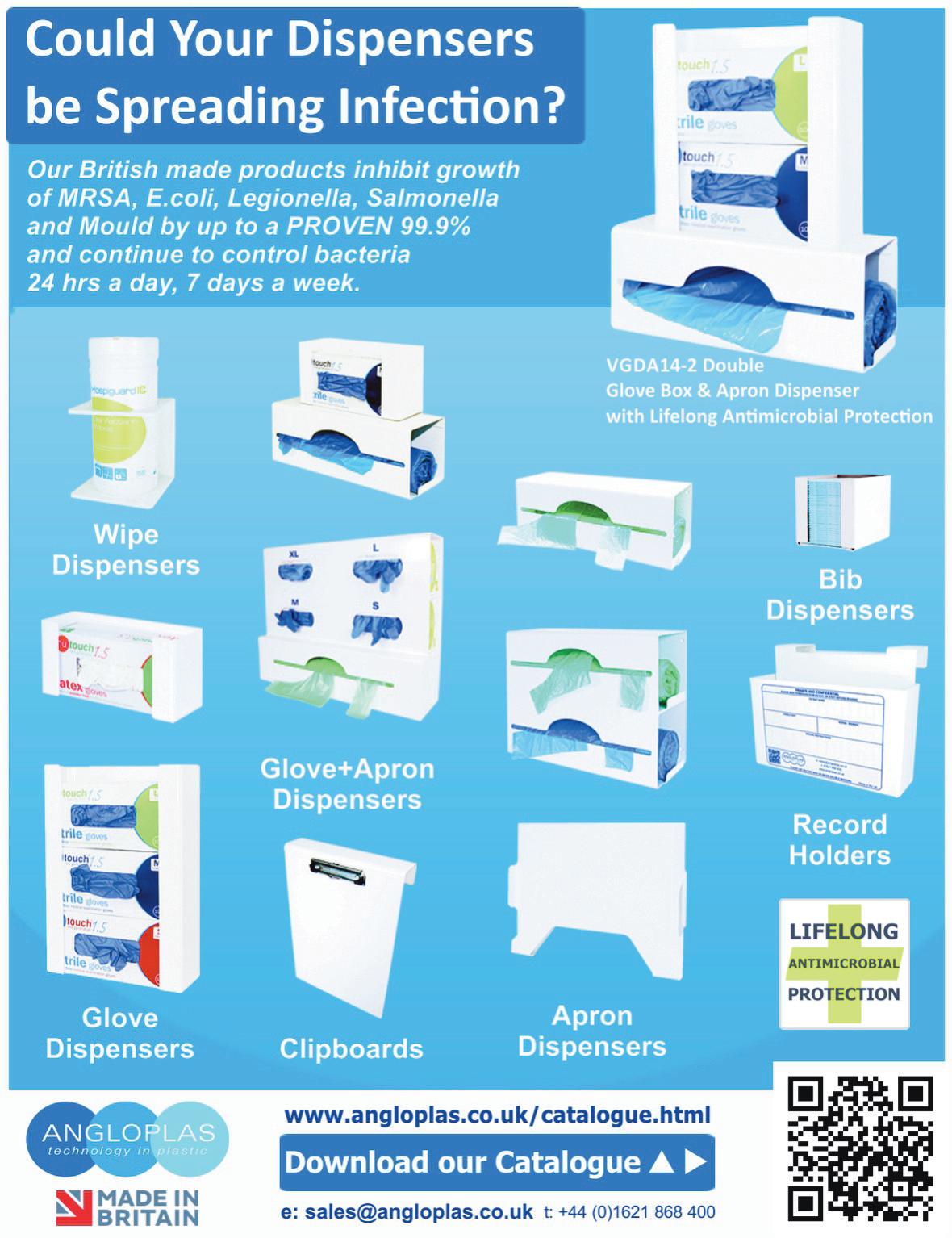
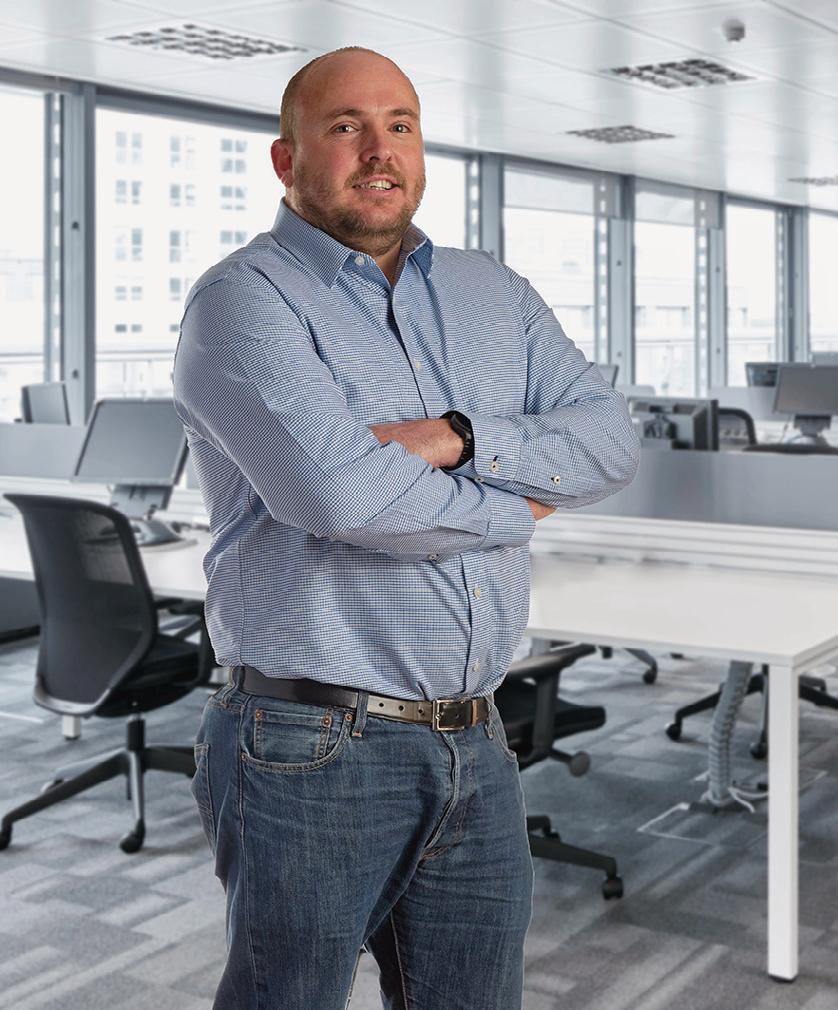
As sustainability rises up the agenda for care organisations, heat is a natural target for efficiency improvement. Andy Green, Head of Technical Solutions at Baxi, discusses the importance of planning a net zero pathway and some of the achievable options for care home operators
The UK’s circa 17,000 care homes may vary in size and age, but reliable heating and hot water is essential in each to prioritise the wellbeing and comfort of their residents. As this service is typically the largest user of energy in care home facilities, it’s also a good starting point for reducing operating costs and associated carbon emissions.
Let’s consider some of the achievable measures to improve the efficiency of the heating system and reduce its carbon impact
In our recent survey of over 400 care homes managers, budget pressures, eligibility for funding and technical understanding of achievable options were the top challenges listed when considering decarbonising heat in their buildings. Subsequent focus group sessions also revealed that unplanned replacements are common, frequently resulting in a like-for-like distress purchase rather than enabling the care home operator to plan and implement a phased approach to net zero. But with care homes coming under increased pressure to adopt sustainable practices in line with the nation’s wider 2050 net zero target, putting a roadmap in place is absolutely key. Fortunately, care home managers have access to heat experts like Baxi for support. We work closely with care homes first to understand the viable options for improved system efficiency and then to help them plot their unique net zero pathway.
The first step should always be to understand how and where energy is being used in the building. Identifying and limiting any heat loss to the environment will not only immediately improve operating costs but can significantly reduce the size or capacity of plant required when refurbishing the system – which in turn will lower the required capital expenditure.
Practical examples might include building fabric upgrades such as roof and wall insulation, draught proofing and/or improving the thermal performance of windows and doors. Adding lagging to poorly insulated pipework will also prevent heat losses within the system for improved performance. Where necessary, adjust the heating controls and thermostat settings to optimise the temperature regimes and balance energy efficiency with thermal comfort.
Light refurbishment still accounts for much of the work in the care home sectors according to our focus group research, despite the willingness shown for embarking on heat decarbonisation projects.
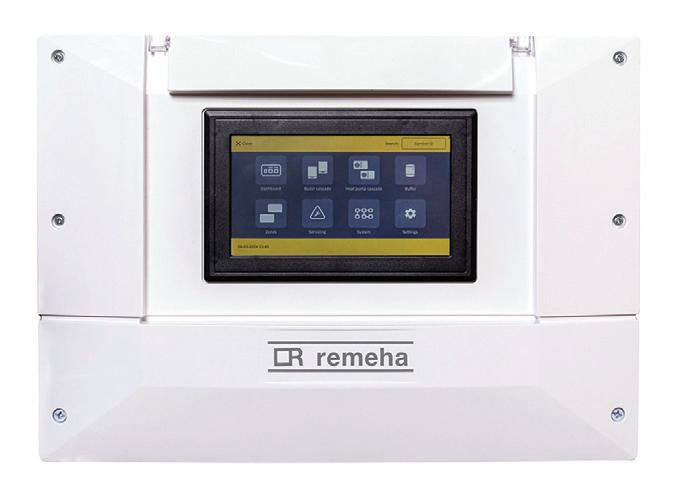
If upgrading to more efficient gas condensing boilers or direct-fired water heaters, use this opportunity to prepare the heating system for the integration of low temperature heat pumps at a future stage.
Addressing the system’s distribution pipework and heat emitters will allow the system to operate more efficiently at a maximum flow temperature of 55°C (or lower), in line with Building Regulations. This will also allow the condensing boilers and water heaters to operate in condensing mode, where they achieve their maximum efficiencies.
Replacing existing gas boilers or water heaters with heat pumps is the ultimate goal. New build care homes will be designed to require less heat for operational use and optimised for a decarbonised electricity grid. In buildings like these, a fully electric approach to heating and domestic hot water (DHW) based around renewable solutions such as our Auriga mid temperature and Auriga HP + high temperature heat pumps will be the favoured approach, particularly when combined with solar thermal and/or solar PV solutions.
In care homes with complex refurbishment challenges, a phased pathway may be necessary. In such buildings, a hybrid heat pump system combining heat pumps with existing boilers and/or water heaters is often a fast, affordable solution to partial decarbonisation. This will enable a large portion of the heat in the building to be decarbonised while meeting safe operation requirements.
Each care home project and building will have its own requirements, so it is advisable to consult with the experts. Experienced heating and hot water solutions providers like Baxi can help break down the complexities for care homes by clearly explaining the options and outlining the associated carbon, energy and cost impacts of each. Working together, we can help ensure that the right decision is made to meet the specific needs of your building to set it on its path to net zero.
For more information, visit: Baxi Commercial Heating and Hot Water Solutionswww.baxi.co.uk/commercial
Staff at Renaissance Care's Jesmond Care Home in the Bridge of Don have created a train carriage-style seating area that uses a large-screen TV to replicate a window, with rolling landscapes that change with the season.
The virtual carriage includes wall lights, cabin numbers, and luggage shelves with old suitcases sourced from relatives and charity shops.
Jade McGowan, wellbeing lead manager at Jesmond, which provides care for up to 65 residents, said she was looking for inspiration to repurpose an empty space in a corridor in the home's dementia unit when she hit upon the idea of an interactive train ride to engage and stimulate residents.
“I thought having a seating area that felt like you were on a train would be great for residents as it would be interactive, could be used for distraction and engagement, and would give the residents a sense of purpose.
“Our main aim was to create an area that promoted socialisation and inclusion and so far, it’s having really positive outcomes.”
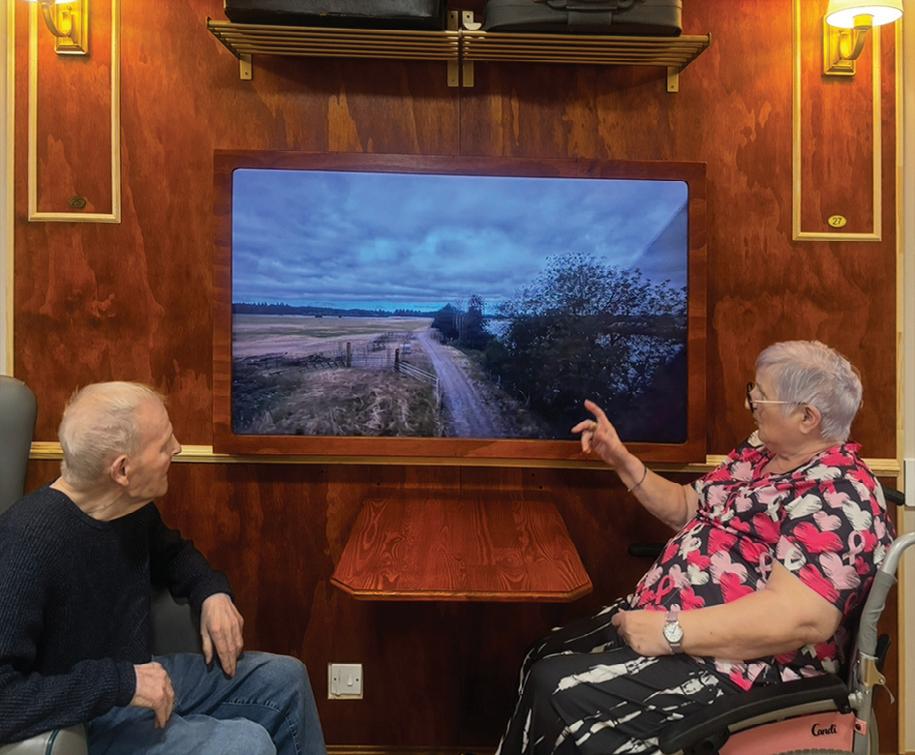
The idea was brought to life by László Gergely, who looks after Jesmond's maintenance and while the installation has yet to be officially named, Jade said: “Jesmond’s Jollys seems to be a favourite so far, but we are going to invites uggestions from our residents and their
relatives and then put it to a vote.”
The interactive train ride has proved a hit with residents such as Ann Mennie, 89, who moved into Jesmond in March.
“It’s such a good idea, it’s interesting, calming and feels so real,” said Ann. “It reminds me of when I was younger and brings back fond memories of being on trains. My dad worked in the railways so we used to get tickets and would often go on train journeys with my mum, dad and sister to different places, which was really exciting.”
There are plans to make the experience even more authentic with firstclass head rest covers, a ticket office and an interactive “lost property wall”.
Jesmond Care Home has also teamed up with the local Men's Shed, whose members are making a bench for residents who are waiting to board.
Jade added: “It's lovely to see the residents interacting with the “journey”, enjoying high teas and just sitting enjoying the scenery. The relatives have loved seeing it, all giving great feedback.
“Importantly, it's also encouraging meaningful engagement, discussions and interactions. One of the biggest achievements is how it’s providing greater opportunity to create meaningful connection for a wider group of residents.”
In April 2025, the Supporting the Provider Market (STPM) team in County Durham published a new report evaluating the use of pobroll® — a waterproof bed-bathing wrap designed to improve dignity, comfort, and ease during personal care.
This evaluation was carried out across 10 care homes with high numbers of residents living with dementia. Each setting was given one or more pobroll® units and invited to share feedback through a structured survey. The findings reveal how even simple tools can make a significant difference in everyday care.
How was pobroll® used?
Most care homes used pobroll® daily or several times per week, showing it quickly became part of regular practice. Staff noted that one of the biggest challenges was not having enough units — all homes requested additional stock after the trial, highlighting a clear appetite for wider adoption. What did care teams think?
Feedback from the care homes showed strong support for the tool:
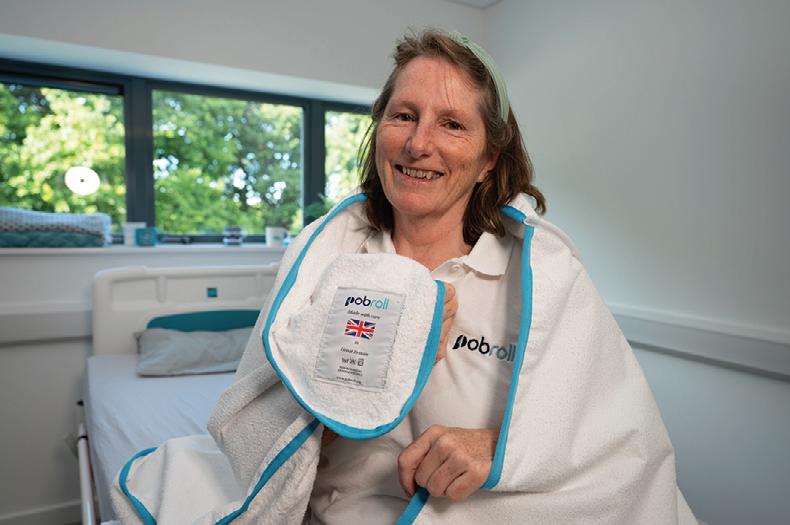
• Ease of use was rated highly, with an average score of 4.4 out of 5. Staff found pobroll® straightforward to incorporate into care routines.
• Training was rated slightly lower, at 3.8 out of 5, suggesting that while the wrap is easy to use, additional training resources could improve onboarding for new users.
Written by Pat O’Brien of pobroll
Resident response was positive. Three in ten care homes reported improved mood or behaviour during bed bathing for dementia patients.
• Key benefits included greater warmth, coverage, and dignity for residents, especially those who might find conventional methods distressing. Some teams also found it particularly useful for end-of-life care
Would they recommend pobroll® for bed bathing for dementia patients?
Absolutely. Homes rated their likelihood to recommend pobroll® at 4.3 out of 5, with half of respondents giving it a full 5 out of 5. The overall feedback was clear: this is a valued, meaningful addition to personal care.
Would they recommend pobroll® for bed bathing for dementia patients?
The results of this trial reinforce what many professionals already believe — that small, thoughtful design changes can significantly improve care. For residents who are bedbound or living with dementia, personal care can often be a distressing experience. But with the right tools, it doesn’t have to be.
The pobroll® isn’t a complex device. It’s a simple, dual-layered cotton towelling wrap. But its thoughtful design — offering full coverage, comfort, and support — makes a real difference where it matters most.
If you’re part of a care home, hospice, or hospital and would like to explore how pobroll® could benefit your residents or service users, get in touch. We’re here to support compassionate, dignified care — one small change at a time.
See the advert on page 9 for details, or visit www.pobroll.co.uk

England’s health service has recorded its first reduction in waiting lists after three consecutive months of increases, according to newly released data that will offer cautious optimism to care providers and patients across the sector.
The waiting list total reached 7.39 million patients at the close of September, representing a decrease from the previous month’s figure of 7.41 million. Whilst the reduction appears modest, health officials have welcomed the reversal of the upward trend.
Performance data indicates that approximately 62% of those awaiting treatment had been on waiting lists for fewer than 18 weeks—marking the strongest performance in this measure for over two years. However, this figure remains considerably below the government’s established target of 92%, which officials have committed to achieving before the current parliamentary term concludes.
In related developments, health authorities have reported a significant surge in flu vaccination uptake following an urgent public health appeal issued last week. More than one million individuals came forward for immunisation in a seven-day period, bringing the total number vaccinated to 14.4 million—marginally ahead of last year’s figures for the same period.

The vaccination drive comes as flu prevalence rates have reached levels three times higher than those recorded at the equivalent point last winter, raising concerns among healthcare professionals about seasonal pressures on services.
Eligible groups for NHS flu vaccinations include those aged 65 and above, individuals with qualifying health conditions, expectant mothers, and children under 16 years of age.
Senior health officials have acknowledged that whilst the waiting list reduction represents positive progress, the healthcare system faces considerable challenges in the months ahead.
Nuffield Trust Deputy Director of Research, Sarah Scobie said:
“Public satisfaction with the health service has plummeted in recent years, so it’s really important that the NHS is transparent about how services are coping. The new information on urgent care published for the first time this month, including on very long waits for mental health care in A&E, is a commendable step towards greater transparency. In October, around 1 in 10 people in a mental health crisis waited over 24 hours in busy A&E departments.
“The government’s 10 year health plan sets out steps to improve this, with new funding to expand mental health emergency departments, but in the meantime, patients will continue to suffer through unacceptably long waits.
“To begin publishing more A&E data now is particularly timely and somewhat brave, as with flu rates above average for this time of year, we can expect a very difficult winter ahead for urgent care services.
“Still only 62% of patients waiting for planned care were seen within 18 weeks, so the NHS is clearly struggling to make meaningful progress towards its headline target. The NHS has relied in part on “data cleaning” to make bigger reductions to the list size during this year. It will be incredibly difficult to pick up the pace on this while finances are so tight, with planned redundancies and ambitious reforms only adding more pressure.”
Tim Gardner, Assistant Director of Policy at the Health Foundation, said:
‘These figures present a challenging outlook for the NHS, particularly as it heads into what NHS leaders have warned is likely to be one of the toughest winters the health service has faced.
‘Urgent and emergency care continues to face considerable pressure, with over 54,000 patients waiting over 12 hours in emergency departments for a bed in October, nearly 10% more than the same month last year. While figures for September show a slight decrease in the elective waiting list to 7.39 million, and a welcome reduction in waiting times, restoring the 18 week standard by the end of this parliament remains a tall order.
‘Making sure the health service has what it needs to deliver on the government’s flagship pledge of cutting NHS waiting lists is clearly on the Chancellor’s mind, as she warns of difficult decisions to come at this month’s Budget. But turning political promises into better patient care will take a system-wide approach to recovery that ensures sufficient capital investment, improvements in productivity and makes good on the government’s promise to prioritise prevention. An urgent resolution to the dispute between the government and resident doctors is also vital.’
Healthcare workers are scheduled to begin a five-day period of industrial action starting Friday morning, marking the thirteenth such occurrence in an extended labour dispute. Recent negotiations between healthcare unions and government representatives concluded without resolution last week.
Hundreds of Scottish care homes have “sold up or collapsed” in the past decade, the Liberal Democrats have revealed.
Scottish Liberal Democrat MP Angus MacDonald has said the SNP are presiding over a crisis in care after new research from his party revealed that 476 care homes for older people have either sold up or collapsed over the past decade.
In response to a freedom of information request by the party, the Scottish Care Inspectorate provided the number of care homes for older people where services have been cancelled.
This refers to when services have either ceased operating entirely or where the business has changed hands. If a care home has changed hands, the new business would need to re-register the home for services to continue operating.
The figures show that over the past decade, 476 care homes have either sold up or collapsed.
This number includes 56 care homes in Glasgow, 46 in Fife, 43 in Edinburgh, 36 in South Lanarkshire and 24 in Highland.

Among the care homes who provided data, 43 care homes cited financial unviability as a reason for cancelling services, while 27 cited problems around recruiting staff.
In October, Mr MacDonald, the Liberal Democrat MP for Inverness, Skye and West Ross-shire, hosted a conference on the state of the care sector in Scotland.
Contributors from across the social care sector took part, including Professor Andy Elder, President of
Angus MacDonald said: “These figures expose the mammoth strains on our care sector, and the chronic lack of government action to tackle them.
“Care providers feel like they’re on their own. The SNP wasted four years and £30 million on a bureaucratic takeover of social care that they ultimately had to ditch. Meanwhile, the UK Labour Government only made things worse by clobbering providers with a cruel tax hike.
“With an increasingly ageing population, fixing the shortage of care homes has never been more important. And it’s only by delivering better care at home and in the community that we can free up space in hospitals and ease pressures right across the NHS.
“Liberal Democrats are the only party with a realistic plan to fix this crisis. We need to invest in community care, including in the West Highlands, where I have called for four new homes to be built with onsite staff accommodation.
“We also want the UK Government to exempt care providers from their national insurance hike and introduce a new minimum wage for care workers that that is £2 higher than the national minimum wage. That’s how we can attract more people into the profession and get everyone the care they need at home or in the community.”

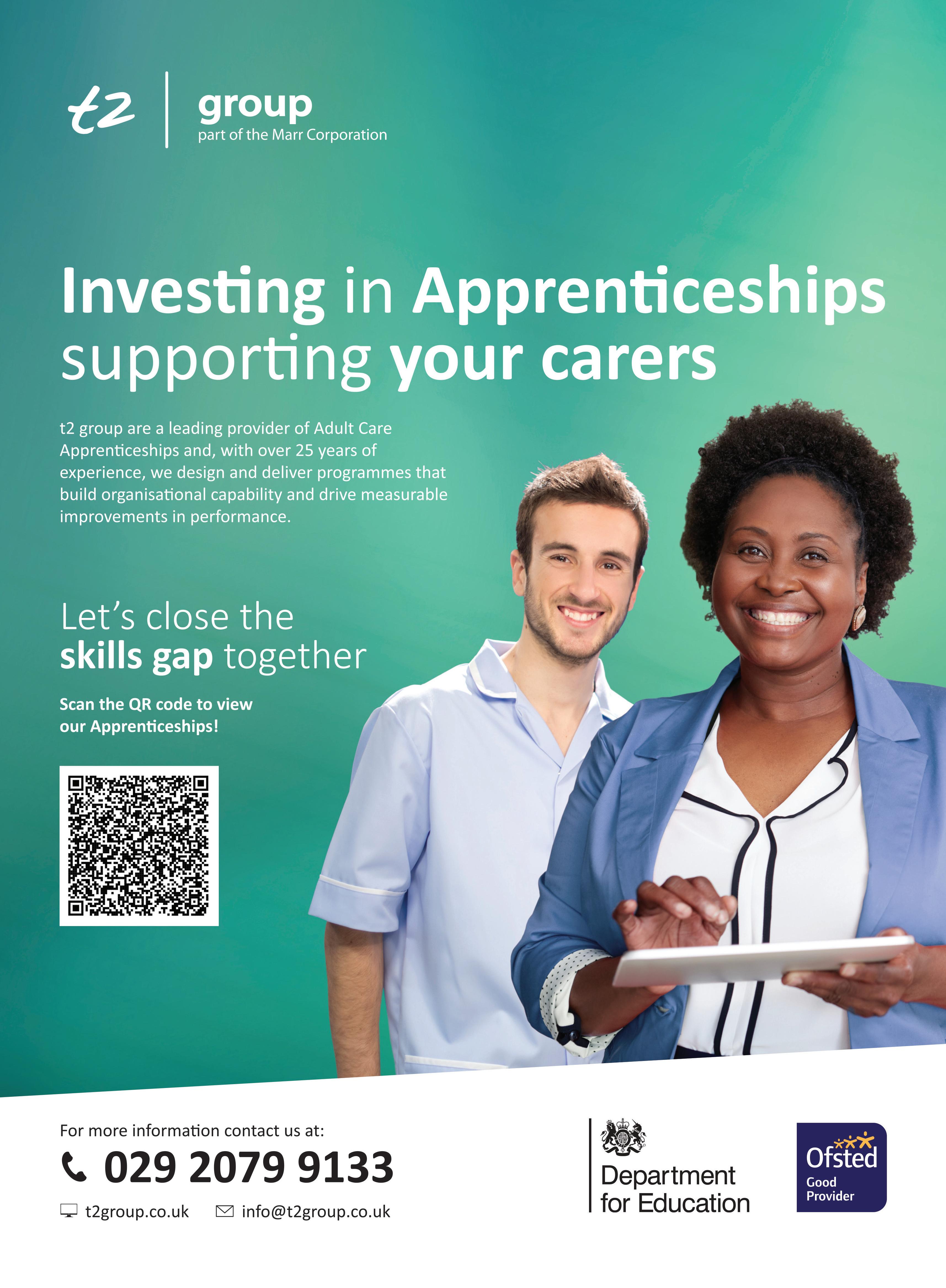

BEYOND
In today’s highly regulated health and social care environment, providers face the dual challenge of ensuring compliance while striving to deliver safe, high-quality, and commercially sustainable services. Care Inspections UK Limited (CiUK) has emerged as a trusted partner in this landscape, providing a professional and independent inspection service that goes beyond the standard requirements of the Care Quality Commission (CQC), The Care Inspectorate Wales (CIW) and the Care Inspectorate (Scotland), collectively “The Inspectorates”
What sets CiUK apart is its status as a registered inspection body, operating with the highest levels of professionalism and governance. This official recognition imbues care providers with confidence that inspections are carried out with rigour, objectivity, and an unwavering focus on evidence. Every report is underpinned by validated, research-based methodology, ensuring the outcomes are credible, balanced, and practical.
While CQC/ CIW/ CI inspections focus on fundamental areas such as safety, effectiveness, responsiveness, and leadership, CiUK’s approach extends further. Each CiUK inspection covers all the domains CQC/ CIW/ CI would expect, but also incorporates additional layers of analysis essential for continuous improvement. This Includes:
• Operational risk management involves identifying risks before they become incidents, reducing exposure for service users and providers.
• Quality enhancement: Assessing opportunities to raise standards in care delivery, staff engagement, and governance.
• Commercial sustainability: Offering insight into how operational practices influence financial performance, helping providers balance compliance with business viability.
The result is an inspection report that is not only regulatory-ready but also a strategic tool for improvement.

In the world of care catering, gravy is often an after though – adding some flavour and moisture to food but it can be nutritionally empty. At ProSauce, gravy is the starting point for a quiet revolution.
ProSauce Gravy is more than a condiment. It’s a nutrient-rich, flavourforward solution designed to meet the complex needs of care homes and hospitals. Developed by Stella West-Harling MBE, in conjunction with dietitians from the NHS and top UK universities, the gravy reflects lived experience and professional insight: meals should provide good nutrition and flavour, whilst being cost-effective.
Crafted for operational ease, ProSauce Gravy is shelf-stable, easy to portion, and compatible with diverse dietary needs. It delivers 12g of plant-based protein per serving, whilst being gluten-free and nutrient dense. Whether served in or over meat, or plant-based dishes, it
Professionalism is at the heart of CiUK’s ethos. Inspections are conducted by highly experienced professionals who bring frontline expertise from clinical, managerial, and governance roles in the care sector. This depth of knowledge allows CiUK to deliver meaningful feedback that resonates with staff at every level, from frontline carers to boardroom directors.
Independence is equally vital. As an external registered inspection body, CiUK reassures providers that its findings are unbiased and transparent. In a sector where credibility matters, this impartiality is invaluable in preparing for CQC inspections and demonstrating accountability to commissioners, investors, and the wider community.
Care providers today operate in an environment of heightened scrutiny and rising expectations. CIUK’s inspections do more than highlight compliance gaps; they provide a clear roadmap for reducing risk, enhancing quality, and driving organisational improvement.
By identifying weaknesses early, providers can take corrective action before issues escalate. At the same time, CiUK’s focus on strengths and opportunities supports a culture of positive development. This balanced approach ensures that inspection outcomes are constructive, not punitive, fostering continuous organisational improvement.
One of the most overlooked aspects of care provision is its commercial dimension. Poor compliance and weak governance inevitably carry financial consequences, from reputational damage to contract loss. CiUK recognises this and integrates commercial insight into every inspection. CiUK helps providers achieve operational excellence and commercial resilience by aligning care quality with business performance.
Choosing Care Inspections UK Limited means selecting a partner committed to professionalism, independence, and comprehensive excellence. CiUK inspections do more than prepare organisations for regulatory visits—they empower providers to deliver safer, higher-quality care while protecting their reputation and commercial future.
CiUK delivers evidence-based assurance and actionable insight for providers who want more than compliance.
makes supporting nutritional goals easy in a way that is familiar to the diners.
Early adopters are using ProSauce in care homes and hospices with feedback highlighting ease of use for kitchen staff and it’s cost effectiveness. With the additional protein in the gravy, chefs can use less meat in meals to reach the same nutritional standards, which in turn saves costs and improves the stainability credentials of the kitchen.
In a sector defined by improving health and care, whilst managing increasing costs, ProSauce Gravy offers possibility. It’s a small change with big impact: maintaining flavour, supporting health, and reminding us that every meal is an opportunity to care.
Visit the ProSauce website to order your free 20 portion sample box and experience how ProSauce Gravy can help transform mealtimes in care settings. www.prosauce.co.uk
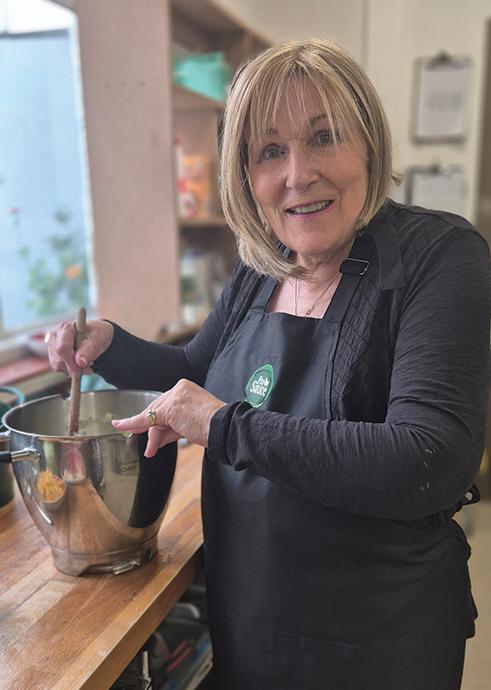

A new report on reducing NHS waiting times for planned (or elective) care, the Public Accounts Committee (PAC) has revealed that despite NHSE spending £3.24bn on transforming diagnostic and surgical services, it has now missed its recovery targets by significant margins, with too many people still waiting too long for tests and treatment.
At January 2025, over 6m people were waiting for elective care, and progress in reducing waiting times appears to have stalled:
• Nearly 192k patients were waiting over a year for care by July 2025 – a length of wait which should been eliminated by March.
• For diagnostic tests, 22% of patients were on a waiting list for more than six weeks – against a target of 5% by March 2025, and an operational standard of 1%.
• When it comes to treatment, only 59% of patients were treated within the statutory standard of 18 weeks, against a target of 92%.
• Plans to reduce follow-up outpatient appointments by 25% (compared to ’19-’20) by March ’23 saw NHSE achieve only 0.1% fewer appointments between June ’22 and July ’23.
The PAC’s report finds that these failures were driven in part by NHSE’s and the government’s flawed approach to improving its own services. Billions of pounds in spending were approved by government without sufficient focus on what exactly its funding would deliver and without any focus on outcomes for patients.
Diagnostic transformation received £2.2bn, and £1.04bn went to surgical transformation, at a time of scarcity for capital funding. A shortfall of 3.6m tests led to the missed diagnostics target; for new surgical hubs, only the number of newly delivered hubs was tracked, with NHSE unable to say what contribution they actually made to total elective activity.
Plans to free up more outpatient appointments could have made the most difference as the vast majority (80%) of elective care pathways end through an outpatients appointment; but NHSE had no credible plan to achieve this, failing to secure meaningful engagement from clinicians to do so.
The report recommends NHSE and govt should focus reporting on patient outcomes to ensure that funding delivers its intended outcomes, set out plans to reach the 1% operational standard for six week waits for diagnostic tests, and learn the lessons from the failure of the outpatients programme.
The PAC is further concerned that major reforms announced by the Department for Health and Social
Care (DHSC) and NHSE are replicating poor practices seen on the HS2 and New Hospital Programmes, and will lead to wasted effort.
Structural changes are being made to the healthcare system without secured funding in place to pay for the changes, or impact assessments carried out. The PAC is warning these changes, especially the planned cuts to local health boards, could have a significant negative impact on patients and on the workforce through the level of uncertainty they create.
The report seeks confirmation from DHSC that it will not announce unfunded commitments, and set out the likely costs of planned redundancies and the absorption of NHSE into DHSC.
The PAC is not confident that DHSC is being realistic about the immense effort needed to bring down waiting times, with digital solutions risking being treated as a ‘cure-all’. Digital integration is a key weakness for the NHS and the report seeks DHSC and NHSE’s plans to address legacy IT.
The PAC remains sceptical that digital change can satisfactorily reach all patients as there is likely to always be a part of the population who find digital technology and tools too difficult to use.
Clive Betts MP, Deputy Chair of the Public Accounts Committee, said: “Every unnecessary day that a patient spends on an NHS waiting list is both one of increased anxiety for that person’s unresolved case, and if they are undiagnosed, a steady increasing of risk to their life.
“Every penny of funding spent to put the NHS back on a pre-pandemic footing must be precisely targeted, or the system itself becomes an obstacle to proper care.
“Unfortunately, our report establishes that billions have been poured into the system over the past few years without the requisite focus on making sure that money does what it was intended for – improving outcomes for patients.
“The rollout of shiny new surgical hubs and diagnostic centres will only be superficially impressive if they are not used in the most productive way.
“Alarmingly, in the government’s approach to the absorption of NHSE and 50% cuts to local health boards, we are now seeing chilling echoes of past failures on HS2 and the New Hospital Programme.
“Our Committee has long established that large unfunded commitments, without plans for delivery, while good at generating headlines, can only end one way. We hope the government can provide reassurance as part of this inquiry that it can come forward with the underpinning detail that can marry its ambitions to reality.”
International Men’s Day, which takes place on 19th November each year, supports men and boys by prioritising their wellbeing and enabling positive conversations about masculinity.
This year, Care UK is using the day to spotlight its ongoing Wishing Tree initiative, and the positive impact that these additional day trips and experiences can have on residents. The Wishing Tree might help them to reconnect with old hobbies or former friends, try something new or relive a cherished memory, all in aid of supporting residents’ wellbeing and allowing them to live a fulfilling life.
The teams in Care UK homes go above and beyond to make these wishes a reality, creating meaningful experiences that enrich the lives of residents and highlighting the positive impact of person-centred care.
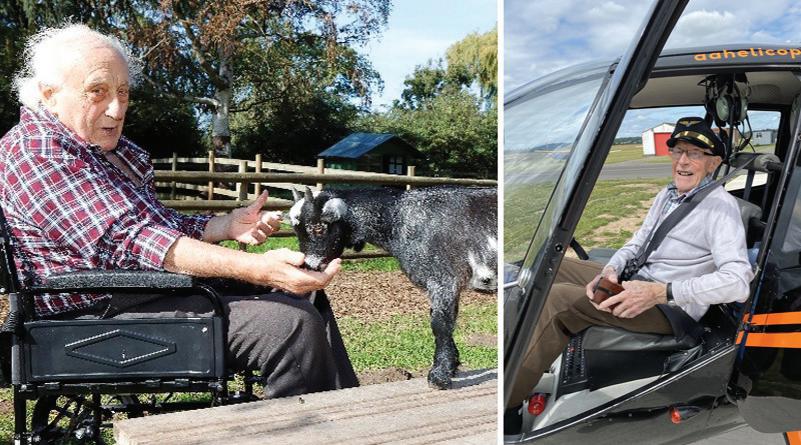
The Wishing Tree celebrates the passions and individuality of each resident but, depending on the wish, can also foster a sense of community, or bring them closer to share a new memory with their loved one. That was the case for 94-year-old Dennis at Foxland Grange in Wolverhampton. The team pulled out all the stops to make his dream of flying in a helicopter a reality earlier this year. Accompanied by his daughter, Dennis took to the skies and enjoyed a scenic flight over Bridgnorth and the Severn Valley Railway. This experience has given Dennis the courage to pursue more items on his bucket list.
At Kentford Manor in Newmarket, 85-year-old David, a former farmer, had always wanted to return to a
farm and feed the animals. Thanks to the Wishing Tree initiative, the care home team arranged for David to spend a special day at Baylham House Rare Breeds Farm, feeding and caring for the animals. He began farming at just 12 years old to help on the family farm, so this experience brought back fond memories and allowed him to reconnect with his passion for farming.
For 90-year-old Peter, a resident at Hartismere Place in Eye, the Wishing Tree initiative meant revisiting his lifelong love of sailing. The care home team got in touch with Waveney Stardust Trust and arranged a trip on a motor cruiser along the River Waveney, complete with a picnic lunch on board for Peter and his fellow residents. Peter's connection to the water runs deep, and this experience allowed him to reconnect with his past and create new memories on the waves.
At Cavell Court in Norwich, a group of residents were treated to a day of golf at the Norwich Family Golf Centre arrange by the care home team. Terence, Vincenzo, and Nihal, all in their 70s and 80s, enjoyed riding in golf buggies, practicing at the driving range, and soaking up the atmosphere with drinks and lunch in the clubhouse. This experience allowed them to try something new and enjoy each other's company.
These stories demonstrate it's never too late to try something new, revisit old passion, or make new memories.
To find out about the Wishing Tree initiative: www.careuk.com/life-at-a-care-uk-home/wishing-trees
Repose Furniture is one of the UK’s leading manufacturers of bespoke seating solutions, with a reputation built on craftsmanship, innovation, and a strong commitment to improving the quality of life for its customers. Established in 1999 and based in the West Midlands, the company has grown from a small family business into a trusted supplier to both the domestic and healthcare markets. Every chair produced by Repose is handmade in the UK, with an emphasis on quality, durability, and comfort, ensuring that each product meets the specific needs of its user.
Whether for home use or demanding healthcare environments, Repose combines skilled upholstery techniques with modern engineering to create chairs that provide postural support, pressure management, and ease of use. Their wide product portfolio includes rise and recline chairs, hospital and care home seating, bariatric solutions, and specialist products designed to address particular medical and lifestyle needs. An essential element of their offering is flexibility: customers can choose from a range of back styles, seat cushions, mechanisms, and fabrics, allowing each chair to be tailored to the individual. Interchangeable parts mean that a chair can adapt as a user’s requirements change, extending the product’s longevity and ensuring value for money. The healthcare sector is a particular area of expertise for Repose. They strive to design chairs that balance comfort with clinical functionality. Features such as tilt-in-space mechanisms, adjustable cushioning, and pressure relief options make their healthcare seating particularly suited to long-term use in hospitals,
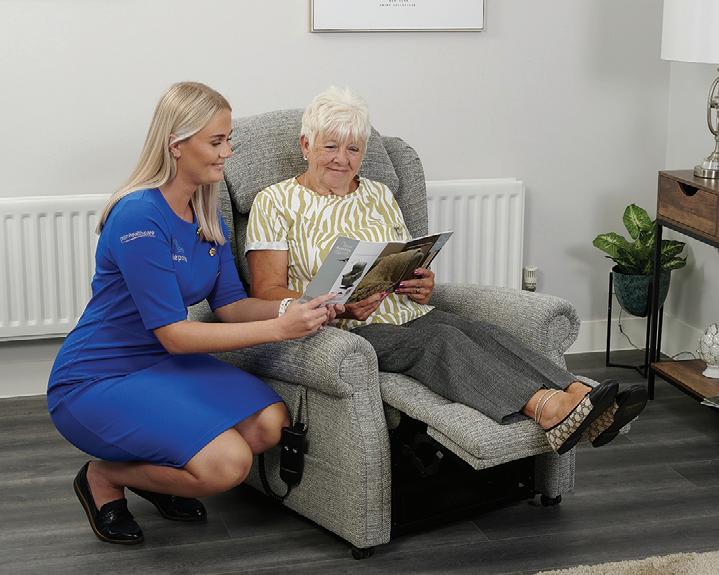
hospices, and care homes. The company’s bariatric range demonstrates the same careful attention to detail, offering robust yet comfortable solutions for larger users.
While customisation is the centre of the Repose offering, they also recognise the urgency often faced in healthcare settings. To address this, Repose have developed their Healthcare Express Chairs, designed to deliver high-quality healthcare seating at speed. The models in this range can be despatched within just five working days. The Multi Bari Express and bestselling Boston Express, for example, are available on this five-day lead time, offering care providers a rapid solution without sacrificing quality or functionality. For less specialist needs, some homecare models are even available on faster turnaround times, demonstrating Repose’s ability to balance responsiveness with craftsmanship.
Repose’s reputation is further reinforced by its after-sales support, 5-year manufacturing warranty, and commitment to ethical and sustainable practices. With a UK-based factory, a dedicated distribution network, and close relationships with healthcare professionals, the company continues to be a trusted partner in multiple sectors throughout the country and beyond. In combining bespoke design with reliable express options, Repose Furniture stands out as a manufacturer that truly understands the diverse needs of its

Alzheimer’s Society shares seven tips to help people with dementia during cold snap across the UK
With many parts of the UK facing a dramatic drop in temperatures, Alzheimer's Society warns that this cold snap could be challenging for almost one million people living with dementia across the UK.
According to Alzheimer’s Society, a charity dedicating to providing help and hope to everyone affected by dementia, very cold weather can be particularly challenging for someone living with the condition. Colder temperatures can be difficult for a person with dementia to adjust to, and they may not always be able to communicate that they are cold – or they may not even recognise it themselves.
The charity is urging people to check in on loved ones, friends and neighbours living with dementia and has shared seven useful tips to help support somebody living with dementia in cold weather:
1. Make sure the person is dressed appropriately. Layers are key to keeping warm, and the best materials for maintaining body heat are cotton, wool, or fleecy fibres. If you’re going outside, remember that a lot of heat is lost through the head and neck, so make sure the person has a hat and scarf on. Gloves are also important for keeping hands warm. If it’s icy or snowy, make sure the person is wearing appropriate footwear, such as non-skid boots.
2. Keep the room warm. As well as turning the heating on, things like draught-proofing, thermal curtains and roof insulation can help maintain a consistent temperature. Try to make sure any rooms that are occupied during the day are kept warm – it’s a good idea to aim for around 20 degrees Celsius
It’s also worth keeping a blanket within easy reach of a person with dementia, so they can grab it if they’re feeling chilly. At night, a hot water bottle or electric blanket can help keep the bed warm.
3. Encourage regular movement. Keeping active can help to boost circulation and help keep someone with dementia warm. Simply getting the person to move their arms and legs or wiggling their toes can be helpful.
4. Make the most of natural daylight. Decreased sunlight can cause someone with dementia to feel increased anxiety, confusion, and even depression during the winter. Get outside when you can – a quick walk around the block or even just sitting outside in the garden for a few minutes can do wonders. At home, make sure curtains are open during the day to let in as much light as possible. You could also position the
furniture so that the person with dementia is sitting near a window. As natural light starts to fade, make sure lights and lamps are turned on.
5. Stick to a routine. A big change in routine can cause someone with dementia to become confused, distressed or agitated. If you do have to make changes to someone’s routine in winter – for example, changing nap times or daily walks due to limited daylight – try to do them slowly and gradually.
6. Be careful in icy weather. Perception issues can make it difficult for someone with dementia to see icy patches on a pavement or understand that a surface may be extra slippery. If you’re out for a walk in icy or snowy conditions, make sure you’re supporting the person with dementia carefully. Encourage them to take smaller steps and walk more slowly than usual.
7. Eat and drink regularly. Keeping warm uses up a lot of energy, and wearing layers and being in a warm house can increase the risk of dehydration. It’s important to make sure someone with dementia is eating regular meals and drinking enough fluid during the winter. Some people with dementia have trouble gauging temperatures of food and drink, so try to make sure any food or drink has cooled before giving it to them.
Angelo Makri, Senior Knowledge Officer for Wellbeing at Alzheimer’s Society said: “There are currently around one million people in the UK with dementia, and for many families caring for a loved one with the condition, winter can be a worrying time.
"Knowing how to best support someone with dementia during the challenging colder months, by regularly checking in with them and following these useful tips, can help to make sure they are comfortable, safe and able to stay as independent as possible. This can also give carers important peace of mind.
“We want everyone affected by dementia to know that whoever you are, whatever you’re going through, you can turn to Alzheimer’s Society for practical advice, emotional support, and guidance for the best next step.”
For more information and advice, call Alzheimer’s Society’s support line on 0333 150 3456 or visit alzheimers.org.uk
A new academic report from the University of Oradea has placed a spotlight on the urgent need for the adoption of better prevention, training, and safer treatment technologies to reduce harm from the growing volume of healthcare waste produced worldwide, says leading independent healthcare waste management company, Anenta. Shedding light on hazardous medical waste and its rising risks to clinical staff, healthcare workers, and those who handle medical waste, Anenta believes that the ‘Healthcare Waste Toxicity: From Human Exposure to Toxic Mechanisms and Management Strategies’ report is a sharp reminder that producers of healthcare waste need to be vigilant and diligent.
In Anenta’s view, this is particularly important in relation to the disposal of sharps, infectious, pharmaceutical, pathological, cytotoxic, and chemical waste, and applies to GPs, hospitals, laboratories, pharmacies, research centres, dental clinics, care and nursing homes.
“The findings of this study reiterate just how important segregation, governance, and training are in preventing harm to staff and the wider community,” said Kim Ormsby, Assistant Director at Anenta, adding: “It’s vital that every measure, including handling, transportation, treatment, storage, and disposal is properly understood, implemented, and audited, which is exactly why we’ve created a free e-learning module on healthcare waste to help businesses in the primary care sector.”
Covering a number of topics such as waste segregation, simplification of waste processes, waste reduction, and colour-coded containment, the 45-minute training module is accessible free of charge to care homes, and healthcare professional via the Health Education England online portal. These courses help those in the primary care sector meet duty of care obligations and ensure consistent adherence to environmental and CQC standards.
This, in turn, helps smooth the pre-acceptance and duty of care

audit process, which is essential for compliance under the Environmental Protection Act 1990, and helps avoid the risk of waste contractors refusing to make collections due to instances of ‘noncompliance.’
Aided further by Anenta’s remote hazardous waste audits, which give care homes, nursing homes and producers of healthcare waste the ability to conduct compulsory duty of care and pre-acceptance audits in as little as 40 minutes, Anenta has removed the need for tedious third-party on-site audits, which can take up to 6 days. In addition to saving time, Anenta’s online solution also reduces costs by up to £800.
Combined, this process helps to ensure compliance for care homes
whose staff are exposed to a range of different types of waste, including sharps, clinical, infectious, and offensive waste.
“Protecting workers and the wider community from the dangers of medical waste is critically important,” says Ormsby. “Without consistent training and clear policies, staff can all too easily be put at unnecessary risk, which is why we work closely with care and nursing homes to ensure that their waste management processes are streamlined and effective, ensuring a safer healthcare environment for all.”
Anenta, which was awarded the Healthcare Waste Management Company of the Year title at the prestigious Healthcare Business Review Europe Awards 2025, acts as an external contract manager delivering bespoke, affordable, and professional services across recycling, general waste, saniwaste, confidential, and clinical waste streams. Managing over 450,000 collections annually from more than 20,000 locations, Anenta has saved its clients over £13 million directly, while introducing workplace efficiencies that have generated a further £35 million in savings.
Much of these savings are possible thanks to Vector, Anenta’s proprietary, multi-stakeholder system, which equips all parties in the healthcare waste supply chain with real-time updates on documentation, billing, compliance and outcomes. Highlighting inefficiencies and providing data-driven insights to improve service, delivery and operational performance, Vector ensures the delivery of fair billing practices through the analysis of thousands of invoices to identify and address any instances of overcharging.
Free training module:
https://portal.e-lfh.org.uk/Component/Details/763177
Website www.anentawaste.com
Contact page https://www.anentawaste.com/contact-us/ Call 03301222143
Nobi makes lives safer by preventing and detecting falls. Powered by cutting-edge AI technology, this intelligent light monitors the entire room discreetly and accurately — all while blending seamlessly into any interior with its award-winning, homelike design. Nobi supports older adults in living a dignified, carefree and happy life, with complete respect for their privacy. A fall can dramatically change someone’s life. Rapid assistance after a fall — or, even better, preventing a fall altogether — is invaluable. It is crucial for older adults, but equally vital for caregivers who are committed to ensuring safety, comfort and independence. The moment a fall occurs, Nobi sends an immediate alert to care staff, creating the peace of mind that every incident will be seen and acted upon. “Long lies” and their harmful consequences belong firmly in the past. With Nobi’s intelligent prevention and detection working in the background, caregivers can focus on warm, meaningful and person-centred care. From its very beginning, Nobi has carried one clear vision: to make care environments places where safety feels natural, dignity feels effortless, and ageing is embraced rather than feared. The Nobi Light was the first proof of that vision. At first glance, it looks like a simple design light — yet within it, Nobi redefined fall
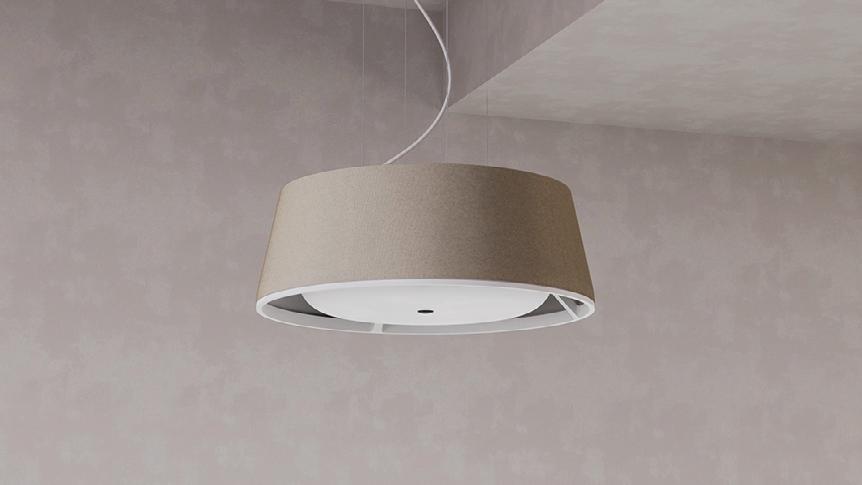
detection, fall prevention and smarter care. It showed that technology does not need to look technical. It can disappear into everyday life, becoming part of the environment while quietly transforming it.
Today, the Light remains at the heart of everything we do. Around it, Nobi is building the Nobi Care Flow: a connected layer where people, technology and routines work together effortlessly. This care flow gives residents a greater sense of safety, offers caregivers more time and peace of mind, and provides leadership with clarity to run safer, more efficient communities. All intelligence, integrations and software are included, making Nobi one of the most cost-efficient and impactful upgrades in elderly care.
Nobi is more than a smart light.
It is a dignified, intelligent care ecosystem — one that helps care flow again. By bringing safety, clarity and confidence into every room, Nobi supports the people at the heart of care: the residents who deserve to feel safe, and the caregivers who deserve tools that truly help them. info@nobi.life www.nobi.life
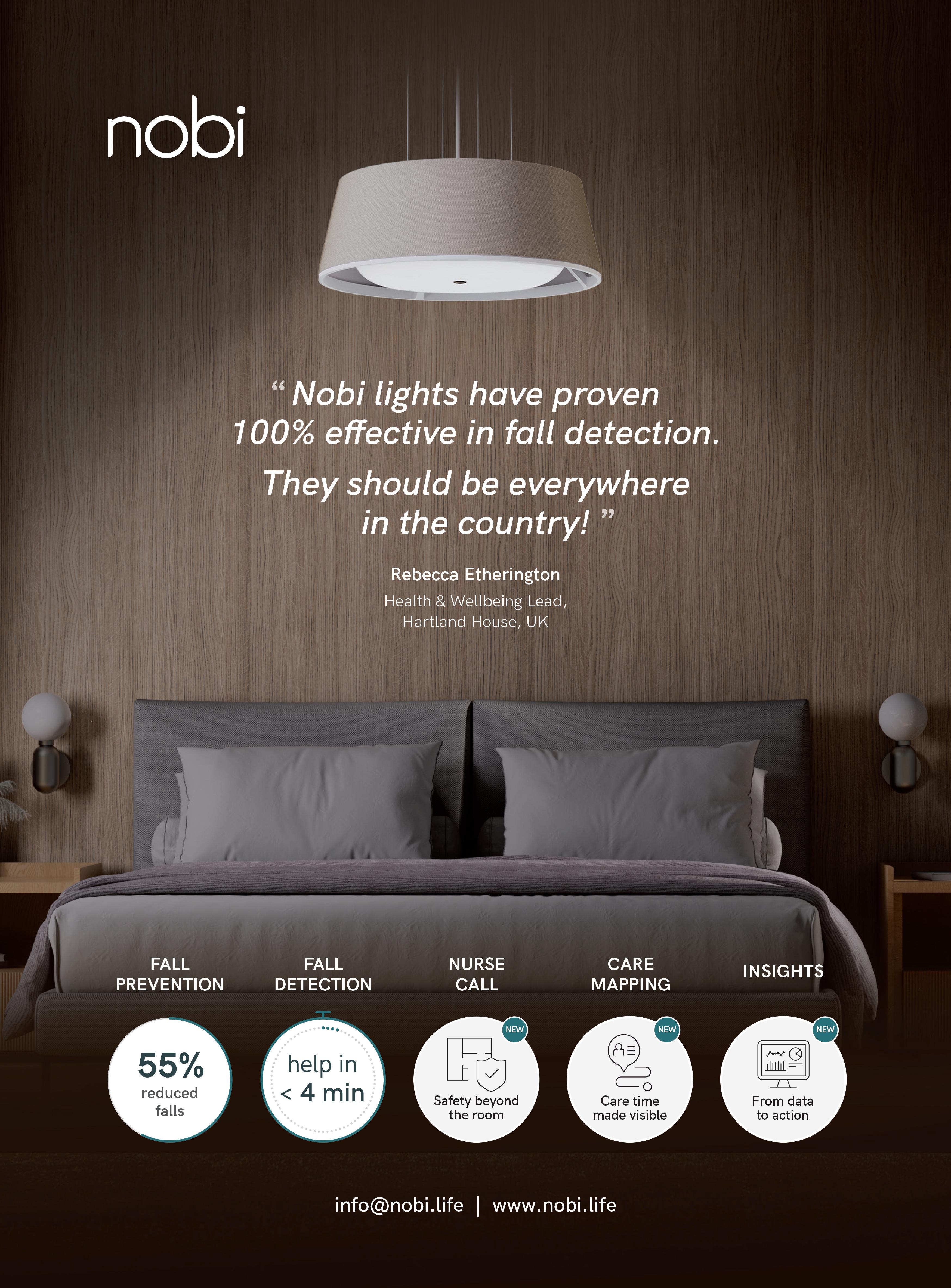
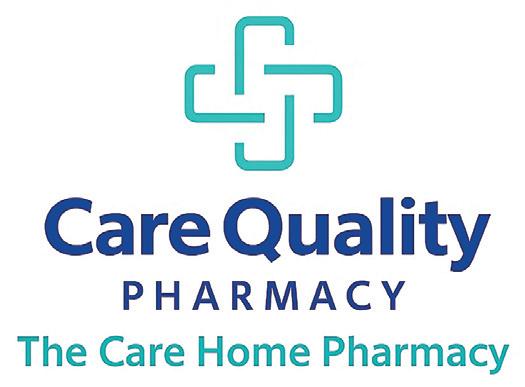
In the complex world of care-home medicine management, consistency and reliability are everything. From ensuring the right medicines arrive on time, to providing specialist support and training for staff, a single weak link can jeopardise the safety and well-being of residents. That is why more and more care providers are turning to Care Quality Pharmacy – a national, care-home-only distance-selling pharmacy – to deliver a true one-pharmacy solution.
CONSISTENCY AND SIMPLICITY
Running multiple homes often means juggling relationships with several local pharmacies. This can lead to variations in service levels, communication gaps and unnecessary administrative burden. By partnering with a single specialist pharmacy, care providers enjoy a unified approach across every home. Care Quality Pharmacy provides guaranteed monthly delivery dates, centralised prescription management and a dedicated Key Account Manager, ensuring that every home receives the same high standards of service.
ADVANCED TECHNOLOGY AND COMPLIANCE
Care Quality Pharmacy harnesses advanced AI-driven prescription checking and integrates seamlessly with leading electronic MAR (eMAR) systems. These innovations reduce the risk of dispensing errors and give care
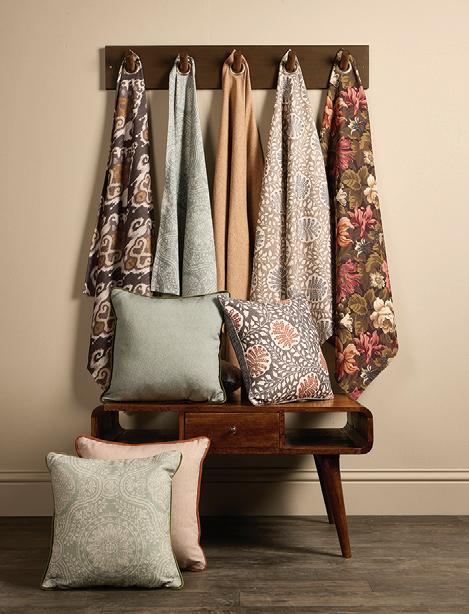
teams real-time oversight of residents’ medication records. The pharmacy’s robust auditing and returns collection processes support full regulatory compliance, while scheduled annual training sessions keep staff confident and up to date with best practice.
OPERATIONAL EFFICIENCY AND COST SAVINGS
A one-pharmacy solution eliminates duplicated processes and frees up valuable staff time. With Care Quality Pharmacy’s dedicated communications team liaising directly with GPs, homes save hours previously spent chasing prescriptions or clarifying medication queries. Interim requests are handled swiftly – often the same day –and returned medicines are collected routinely, further reducing workload and waste.
A PARTNERSHIP BUILT ON TRUST
Perhaps the greatest benefit is peace of mind. Care Quality Pharmacy’s national infrastructure, experienced team and proactive approach mean care-home operators can focus on delivering exceptional care while knowing that every aspect of their medicines management is in expert hands.
In a sector where safety, compliance and resident well-being are paramount, a one-pharmacy solution is not just convenient – it is transformative. Care Quality Pharmacy brings together specialist knowledge, cutting-edge technology and a commitment to personalised support, making it the trusted partner for care homes across the UK.
See the advert on the back cover for further details.
Each year Skopos launch new fabric collections, developed specifically with Care interiors in mind. Specialists in key attributes which help keep homes looking fresh and stylish (soil resist, antimicrobial) interior schemes can easily be pulled together using a mixture of prints, textures and plains. Leading the way at this year’s show, Skopos will be highlighting their new range of printed designs, from the Skopos STUDIO. Available on base-cloths for upholstery, bedding and curtains, the fabric choices have grown, to include a waterproof and antimicrobial velvet upholstery and a textured woven upholstery. Designs from the STUDIO are split into different categories, including stripes, florals, geometric and textures. Skopos can offer a fabric-only service or a full service; with site measure, product manufacture and installation. The Skopos team produce approximately 25,000 made-up items
CareZips® Classic are patented, easy dressing unisex adaptive pants designed for older and disabled people suffering with problems associated with continence, mobility, mental function and cognition. Suitable for persons living in care institutions, receiving care at home or living independently at home, CareZips® Classic enable people to dress themselves or with assistance from carers.
CareZips® Classic feature patented 3-zipper system, which opens the front of the pants from the waist to the knees for quicker access during toileting, continence pads changes and personal hygiene. The forward positioning of the two side zippers lessens pressure on sensitive hip areas, helping to eliminate discomfort. The third zipper facilitates simple full frontal opening for faster more dignified diaper changes, catheter adjustments, personal cleansing and hygiene routines.

CareZips® Classic have many benefits for the older and disabled users and their carers:
• People dressing themselves enjoy the practical functionality and versatility of the CareZips®
Classic, all day comfort and easy garment care.
• People dependent on assisted dressing appreciate quick easy dressing process with less stress, embarrassment and greater dignity offered by CareZips® Classic.
• CareZips® Classic offer practical gains to the carers, helping them to provide better care, whilst reducing physical efforts and saving valuable time.
CareZips® Classic are unisex, available in 6 sizes and 3 practical colours (i.e. black, charcoal and navy). Tapered fit at the ankles gives a tidy appearance. Made from breathable moisture-wicking 4-way stretchy crease-free and easy-care durable fabric, CareZips® Classic are comfortable, practical and conveniently functional.
For more information, contact Win Health Medical Ltd - 01835 864866www.win-health.com
See the advert on page 3 for further information on Win Health’s product range.
Angloplas are a UK manufacturer who specialise in producing dispensers for the health and hygiene industry. Although these are designed to keep the workplace tidy and uncluttered they are, more importantly, built knowing the control of healthcare-associated infections (HCAIs) are a priority for healthcare providers, and who are employing a combination of infection prevention and control strategies, including hand hygiene, cleaning, training and the adoption of new technologies, to tackle the problem. As a result, a wide range of infection control products and technologies are emerging on the market, including antimicrobial technology. Angloplas’ range of dispensers are produced in the world’s first proven
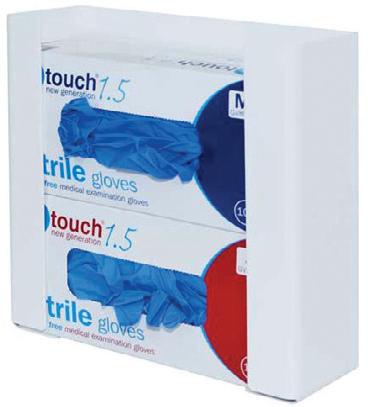
Antimicrobial PVC with silver ion technology and which is exclusive to Angloplas. This helps reduce the risk of cross infection by stopping the growth of bacteria and mould and works continuously for the lifetime of the product, reducing levels of bacteria such as MRSA, E Coli, Legionella, Salmonella and mould by up to 99.99%.
For non-clinical environments Angloplas has recently launched its new Budget Range of products which are made to the same exacting standards as the antimicrobial protected ones but with lower price tags. You can order Angloplas products directly from its website at www.angloplas.co.uk See page 17.
each year, including bed-throws, cushions and pairs of curtains, all manufactured by a highlyskilled team of machinists, cutters and pattern makers; items that are delivered and installed into different contract environments.
As with all Skopos prints, the lead-times are under one week and everything is produced locally, in Yorkshire.
Skopos also offers a Bespoke design service, for statement interiors that require something different. Our design team will work alongside you to develop ideas which can make your caring interior personal, branded and unique.
For samples of any of our collections visit www.skoposfabrics.com
In today’s care sector, where equipment failure can directly impact patient safety and service quality, proactive asset management is nonnegotiable. Enter Assetain, Medaco’s pioneering solution designed to manage the complete lifecycle of patient-handling equipment - from first supply to planned obsolescence.

Launched in August 2025, Assetain delivers three core benefits: comprehensive asset visibility, budgetwise maintenance, and strategic replacement planning. Rather than reactively repairing faulty devices, care homes, NHS Trusts, and SEND schools can now oversee the health of all moving and handling equipment with confidence and clarity.
At its heart lies a meticulously maintained, data-rich register. The programme initiates with a full audit of existing assets; each entry is ported into a dynamic system setting tailored maintenance thresholds, repair-vs-value benchmarks, and clear end-of-life triggers.
Field engineers play an essential role - capturing photographic evidence of faults and functional assess-
ments, which are promptly linked to each record. This approach adds both accountability and immediate insight for stakeholders. Timely alerts are a standout feature. When equipment approaches “no-longer-manufactured” status or reaches its recommended service term, Assetain sends clear notifications - empowering teams to anticipate challenges before they arise. Regular updates of the full asset register ensure stakeholders remain fully informed of the condition and availability of their entire fleet.
Assetain isn’t just maintenance - it’s strategic careasset stewardship that saves time, reduces costs, and safeguards patient well-being. A smart, forward-thinking programme like this helps care providers shift from reactive firefighting to purposeful planning.
In short, Assetain elevates care facility operations into a new era of efficiency and confidence - where every asset is seen, scheduled, and systematically sustained.
www. medaco.co.uk/solutions/assetain/
Consort Claudgen now offers Wi-Fi-enabled low surface temperature heaters that can be controlled through a digital control panel on the heaters or the Consort Connect app. Features include a 7-day timer with 24 daily heating periods, a lock function, open window detection, custom automation, and energy consumption statistics. Additionally, LST heaters with Wi-Fi and occupancy sensor have a self-learning control ability which uses in-built occupancy sensors to

detect and learn a user’s weekly presence in a room. It then creates a heating schedule and automatically warms the room according to the detected or predicted occupancy. When the space is unoccupied, the heater will conserve energy by switching to a setback temperature or frost protection mode.
Consort's website also offers BIM objects for download. See page 17 or 01646 692172 | sales@consortepl.com | www.consortepl.com
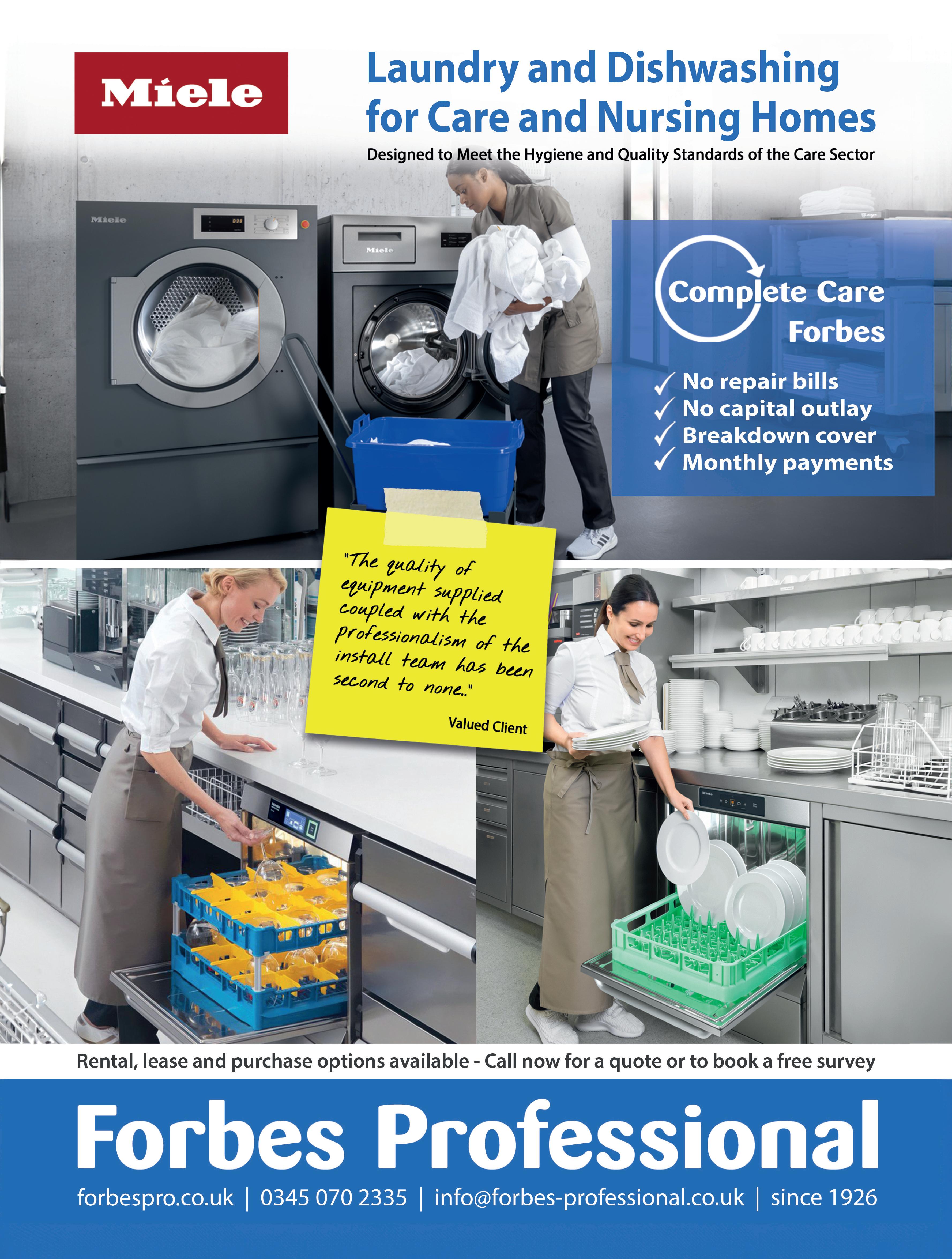

Mobile Kitchens Ltd specialises in the hire or sale of temporary catering facilities and foodservice equipment. Ideal for events or to provide temporary catering facilities during your kitchen refurbishment, our versatile units and equipment offer an efficient and economic solution to the caterers’ needs.
Production Kitchens, Preparation Kitchens, Warewashing Units, Dry Store Units, Cold Rooms and Restaurant Units are available as individual units in their own right or they can be linked together on site to form a complete complex.
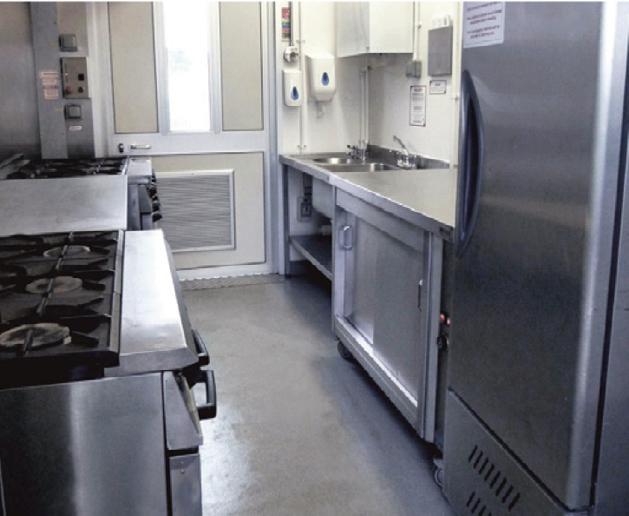
Alternatively, we can offer modular, open-plan facilities, usually for larger, longer-term hires. We offer a free design service, and project management from concept through to delivery and installation on site, plus full technical support throughout the hire period.
Commercial Kitchen and Laundry Solutions (CKLS) are one of the UK's leading suppliers of commercial kitchen and laundry equipment. Whether you are a small sized residential home or large scale nursing home group, CKLS has the expertise and equipment you need to keep your operations running smoothly.

At CKLS, we understand that the success of your business depends on the quality of the equipment you use. That's why we've made it our mission to provide businesses across the UK with the highest quality commercial laundry and kitchen equipment available. We work with only the best manufacturers in the industry to ensure that our customers get the most reliable and efficient equipment possible.
Our commitment to our customers doesn't end with the sale of our equipment. At CKLS, we know that maintenance and repairs are crucial to keeping your equipment functioning at its best. That's why we offer a full range of maintenance and repair services
to our customers, including emergency repair services available 24 hours a day, 7 days a week.
We believe that our success as a company is measured by the success of our customers. That's why we're constantly striving to provide better products and services to help our customers achieve their goals. We're proud to say that our commitment to excellence has earned us a reputation as the go-to provider of commercial laundry and kitchen equipment in the UK.
So, if you're looking for reliable, high-quality commercial laundry and kitchen equipment, look no further than CKLS. With our extensive range of products and services, we're confident that we can help you find the right equipment to meet your needs and keep your business running smoothly for years to come.

By Charlotte McKay, Head Chef at St Quentin Care Homes (https://hmtstquentin.org)
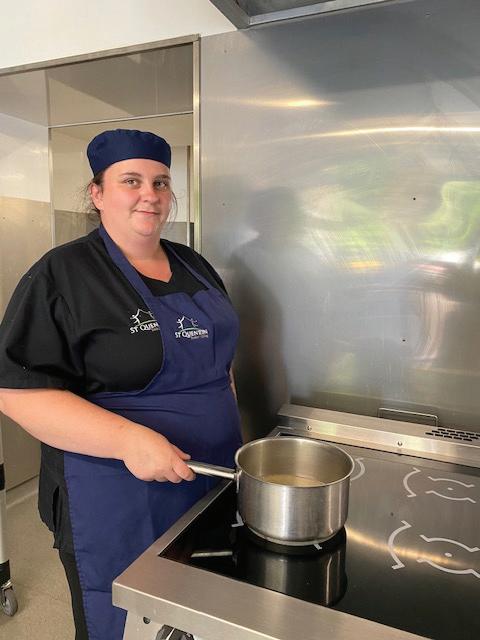
In a care home, catering can be the difference between mealtimes that are anticipated with pleasure and those that are simply endured. Care itself is rightly personalised, tailored to the needs and preferences of each resident. The same principle should apply to the food they eat. Residents and their families are entitled to expect meals which reflect dietary needs, medical conditions, and personal tastes. But delivering that level of personalisation at scale, within budget, is no small task.
The Healthcare Management Trust acquired St Quentin Care Homes almost a year ago and has made significant improvements in care delivery, infrastructure, and leadership. Catering was a big area of focus and has brought tangible results: residents returning for second helpings, heartfelt thanks from families, and a noticeable reduction in food waste. These results haven’t happened by chance; they are the outcome of deliberate choices in how we source ingredients, design menus, and create the overall dining experience.
FRESH INGREDIENTS AND A VARIED MENU
The value of using fresh ingredients over pre-packaged or heavily pro-
cessed alternatives cannot be overstated. Fresh produce boosts nutritional quality, enhances flavour, and increases the likelihood that residents will eat and enjoy their meals.
Variety is equally important. A repetitive or bland menu fails to tempt people to the dining room. Similarly, introducing a rotating weekly menu with diverse flavours and textures, including vegetarian and vegan options, will create something for everyone, which is especially important where care homes support residents of varying ages and cultural backgrounds.
Style should never overtake substance, but presentation matters and plays a vital role in whether a meal is eaten. An unappealing plate can lead to food being left untouched, no matter how nutritious it is.
Small touches make a big difference. Balancing colours on the plate, arranging food attractively, and serving it on crockery that complements the meal will encourage meals to be finished. Even something as simple as offering a platter of sandwiches with varied fillings, so residents first see vibrant colours rather than just bread, can boost appetite and engagement.
Many care home residents are unable to visit restaurants, and for them, mealtimes are often the closest equivalent to dining out. Recreating elements of that experience can lift the mood and turn a necessary routine into a highlight of the day.
Printed menus with clear, attractive typography help residents feel they have real choice and control. For some, reading a menu may even stir
fond memories of past outings and family meals. This small detail reinforces the dignity and pleasure of the dining experience.
Sharing food is a social occasion. In care homes, shared meals can foster community spirit, reduce loneliness, and spark conversation. Making mealtimes engaging and enjoyable benefits both emotional wellbeing and nutritional intake.
This means paying attention to more than just the food. Lighting, music, table layout, and staff interaction all contribute to the atmosphere. A team that works seamlessly from kitchen to dining room by greeting residents warmly, knowing their preferences, and encouraging participation can transform mealtime into a joyful daily event.
Great catering doesn’t happen in isolation. It relies on strong collaboration between chefs, care staff, activities teams, administrators, residents, and families. Open communication ensures dietary needs are met, allergies are avoided, and preferences are respected.
When everyone takes shared responsibility, residents benefit from meals that are not only safe and nourishing, but also deeply satisfying. The catering team gains valuable insight from care staff who know residents well, while residents themselves feel heard and valued.
Ultimately, catering in a care home is about far more than providing three meals a day. It’s about respecting individuality, supporting health, and creating moments of joy. When meals are thoughtfully planned, beautifully presented, and shared in a warm environment, they nourish the body and the mind.
Danielle Smith, registered nutritionist and head of nutrition at Added Value Enterprises Ltd (AVE), explains how nutritional consultancy can enhance the wellbeing of residents in care homes
In care homes, food is far more than a daily routine - it is central to health, comfort, and quality of life. Mealtimes are moments of dignity and social connection, yet the nutritional value of what is served plays a critical role in residents’ wellbeing. As awareness of food and health grows, the sector faces a vital challenge: to move beyond meeting the minimum requirements to embracing nutritional guidance that truly supports residents.
For years, catering has focused on compliance such as reducing salt, lowering sugar and limiting fat. But good nutrition is also about what we add: nutrient-dense ingredients, fresh produce and the creation of recipes that avoid over-reliance on ultra-processed products. Families are asking sharper questions about what’s included in meals and inspectors increasingly recognise the link between diet, health, and resident satisfaction. This is where effective nutrition consultancy makes a difference. Regular menu analysis and assessing how
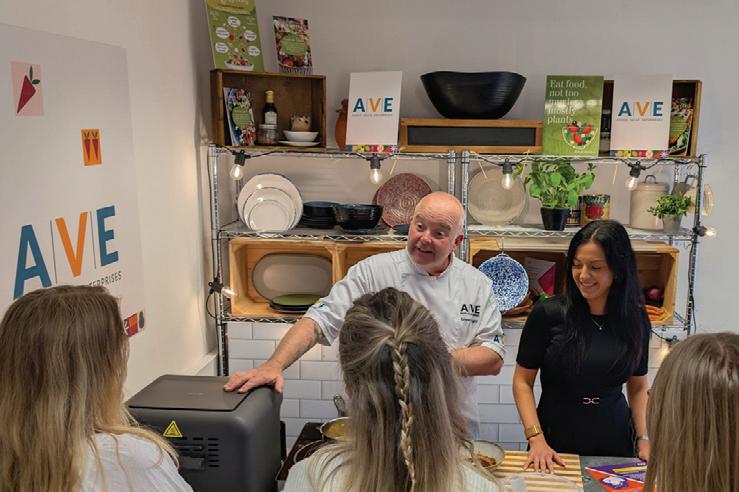
healthy a dish is can highlight where small adjustments can bring big benefits. Bespoke advice ensures meals meet specialist needs ranging from dysphagiafriendly recipes to heart-healthy dishes that promote long-term vitality. Importantly, training equips catering and care staff to understand why nutritious food matters. At AVE, we can provide guidance that is practical as well as strategic: from developing tailored menus to creating engaging wellbeing initiatives such as hydration days or condition-specific workshops. We can analyse menus to assess the nutritional value of each dish and provide advice on how to make improvements. By embedding this expertise, care homes can demonstrate both compliance and genuine commitment to residents’ health and wellbeing.
In today’s landscape, nutritional oversight is not an optional extra - it is a cornerstone of quality care. With residents and families better informed, the homes that embrace guidance will not only meet expectations but exceed them, ensuring food continues to nourish both body and mind.
See the advert on this page for details, visit www.a-v-e.com or
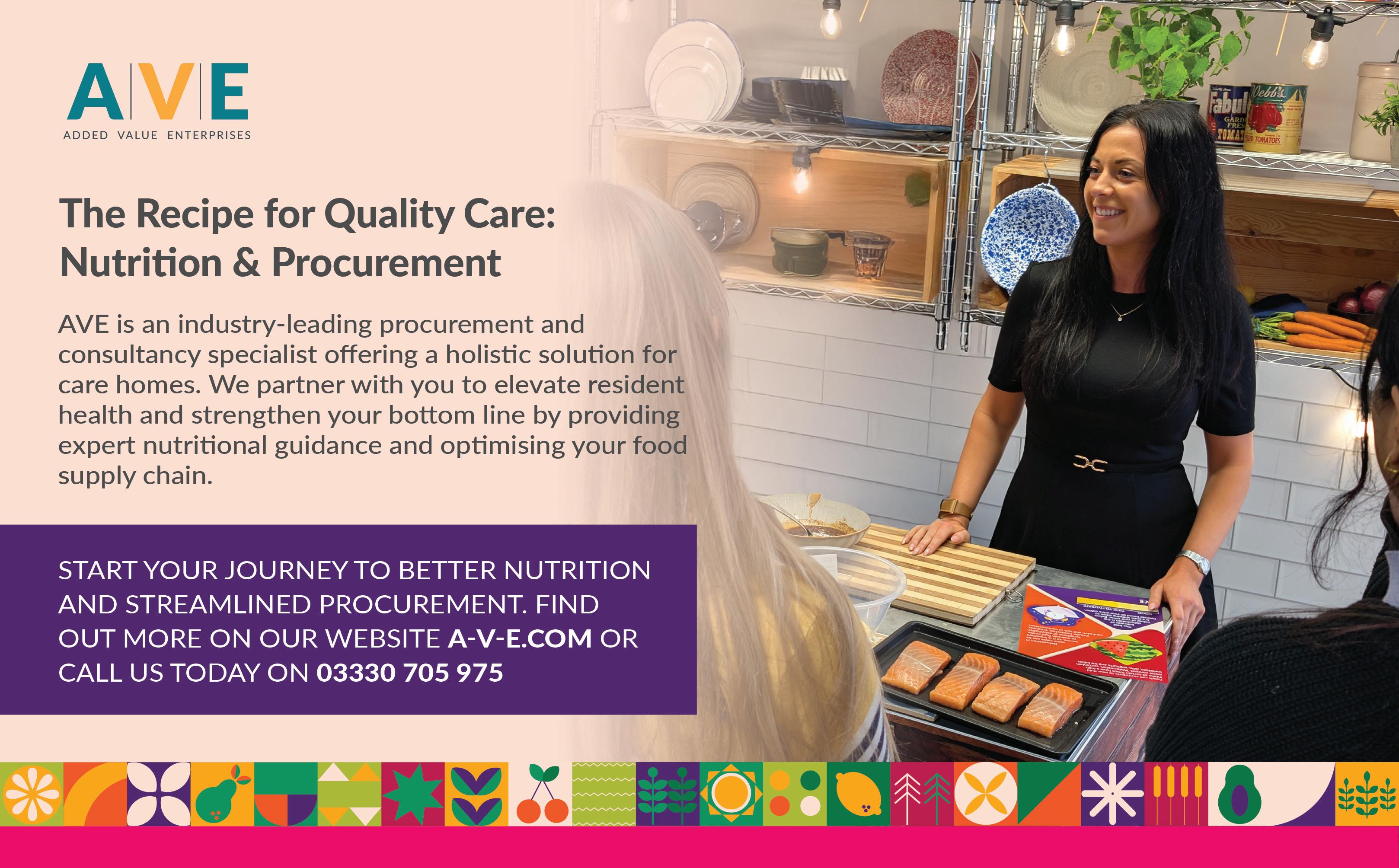
By Gemma Christie, Business Account Manager at Miele

In the care sector, operational decisions carry significant weight. Whilst frontline care rightly takes centre stage, it’s also important to remember that the kitchen plays a vital role in maintaining hygiene, supporting staff efficiency, and ensuring resident wellbeing. Among the many moving parts of the care home kitchen, dishwashing is often overlooked. This is likely because it operates behind the scenes and isn’t seen as a direct part of resident care, yet it’s a key consideration for care homes looking to provide a safe, smooth service.
With multiple meal services each day, the kitchen is one of the busiest areas in a care home. Relying on manual washing not only slows down operations but also increases the risk of hygiene lapses. That’s why investing in the right dishwashing solution is critical.
For care homes looking for reliability, hygiene assurance and longterm value, commercial solutions are the smart choice. Here are five key reasons why investing in a professional dishwashing solution can make a meaningful difference.
WHY DOMESTIC DISHWASHERS FALL SHORT
It’s not uncommon for care homes to rely on domestic dishwashers, especially when budgets are tight. But these machines are rarely up to the task. Designed for occasional household use, they struggle with the frequency and intensity of care home operations. Over time, this can lead to breakdowns, inconsistent results, and even hygiene risks. Commercial dishwashers, by contrast, are built for durability and performance. They’re tested to withstand thousands of cycles and are engineered to maintain consistent cleaning standards, even under intense pressure. For care homes, this means fewer disruptions, lower
long-term costs, and greater piece of mind.
HYGIENE RESULTS YOU CAN TRUST
It’s no secret that infection control is always a top priority in any care or medical settings, especially with residents that are often more vulnerable to illness, and where outbreaks can have serious consequences. Dishwashing equipment can help to fight against these infections and play a big role in preventing cross contamination. But only if it’s up to the job.
High-performance commercial machines, such as the MasterLine range by Miele Professional offer disinfection-grade wash cycles that eliminate harmful bacteria and pathogens. Some models also feature advanced drying systems that remove the need for manual handling, further reducing the risk of contamination. These features aren’t just nice to have, they’re essential for maintaining compliance and protecting residents.
SPEED AND EFFICIENCY IN THE KITCHEN
Care homes run on tight schedules. Mealtimes are fixed, and delays can have a knock-on effect across the day. That’s why turnaround time is a key consideration when selecting dishwashing equipment.
Modern commercial dishwashers can complete a full cycle in as little as five minutes, ensuring that clean items are always available when needed. This reduces the need for excess crockery and helps staff stay focused on resident care rather than kitchen logistics.
Supporting staff and reducing their workload
The right equipment doesn’t just improve hygiene standards, it also helps to support staff wellbeing. In a sector where recruitment and retention are constantly ongoing challenges, anything that eases the daily workload is a welcome investment.
User-friendly controls, intuitive interfaces, and automated features such as detergent dosing or drying programmes can make a real difference to staff efficiency and satisfaction. When equipment actually works with your team, and not against them, it frees up critical time and energy for what matters most, caring for their residents.
A LONG-TERM INVESTMENT
While the upfront cost of commercial dishwashing equipment may be higher, the long-term benefits are clear. Reduced maintenance,
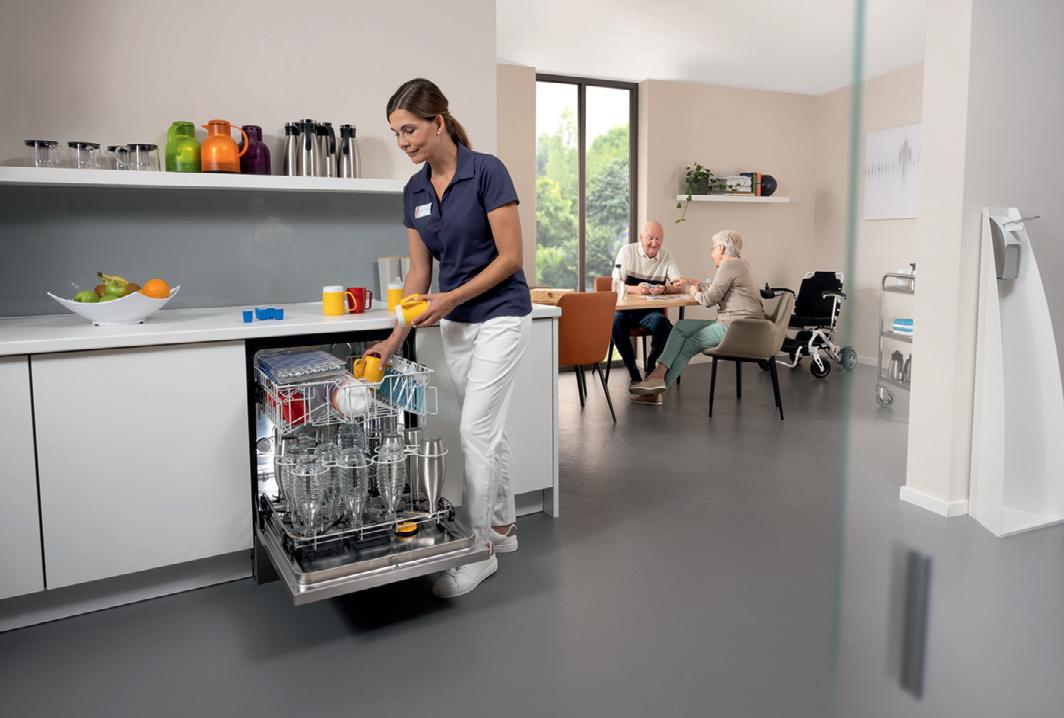
lower energy and water consumption, and extended service life all contribute to a more sustainable and cost-effective operation. For example, Miele Professional’s MasterLine dishwashers can complete a full cycle in just 5 minutes and use as little as 5.0 litres of water per cycle, depending on the model. Their energy-efficient design helps reduce utility costs while maintaining top-tier hygiene performance. Some dishwasher manufacturers offer extended parts availability and nationwide service networks, ensuring that support is always close at hand. Miele Professional offers spare parts available for up to 15 years after production ends and a UK-wide service network with a 90%+ first visit fix rate meaning that care homes can rely on consistent, expert support when it matters most.
Dishwashing may not be the most visible part of care home life, but it’s one of the most vital. By investing in the right equipment and processes, care homes can enhance hygiene, improve efficiency, and create a safer, smoother environment for both residents and staff.
To explore how Miele Professional's commercial dishwashing solutions can enhance your care home, please visit: https://www.miele.co.uk/p/retirement-care-homes-4053.htm
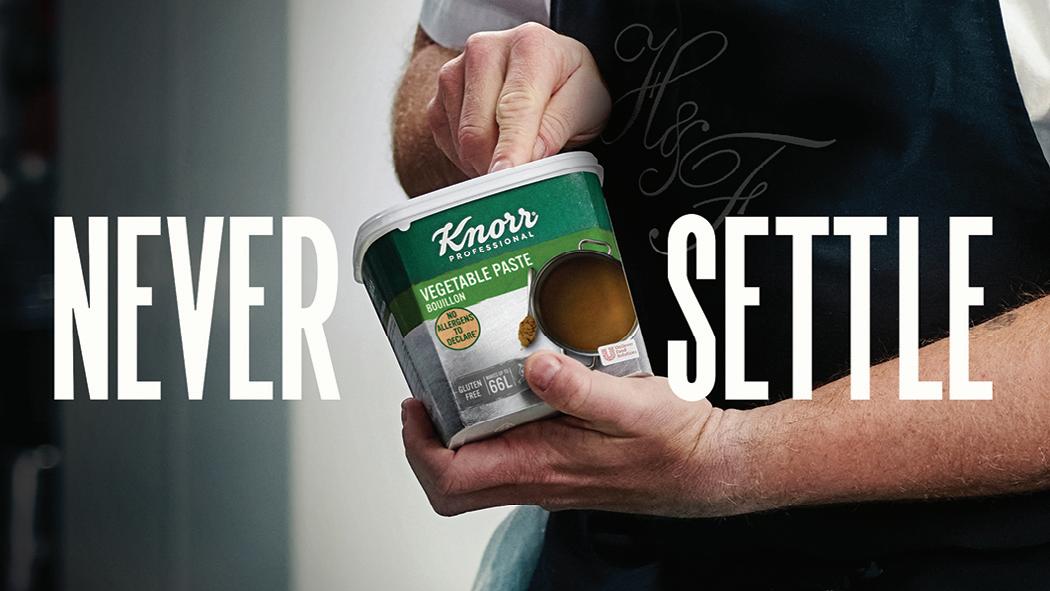
In the care sector, food is more than just nutrition - it’s comfort, dignity, and a way of bringing joy to residents every day. That’s why chefs can’t afford to compromise. From flavour and safety to consistency and versatility, every ingredient has to deliver. When it comes to bouillon, Knorr Professional refuses to settle for anything less than the best and so do the chefs who use it.
Knorr Professional Bouillon is the UK’s number one bouillon brand*, trusted in kitchens nationwide for its rich depth of flavour, outstanding versatility, and chef-trusted consistency. It’s made to work hard in every service, withno allergens to declare¹ options that give chefs peace of mind when catering for residents with diverse needs. NEVER SETTLE FOR BLAND DISHES
As residents age, their sense of taste can diminish. That’s why flavour has to work harder in care - it’s not just about nutrition, it’s about enjoyment. Knorr Professional Paste Bouillon brings bold, balanced flavour that cuts through reduced senses, ensuring dishes remain satisfying and memorable.
Whether it’s used as a base, rub, seasoning, glaze, or marinade, it delivers the same consistent, chef-approved results. From soups and stews to roasted vegetables and marinades, this is one product that performs across the menu - helping chefs adapt quickly without losing quality.
NEVER SETTLE FOR UNCERTAINTY
In care kitchens, allergen safety isn’t negotiable. Theno allergens to declareoptions in Knorr Professional Paste Bouillon make it simple to create inclusive dishes without sacrificing flavour. This helps reduce the risk of cross-contamination and ensures every resident can enjoy the same great taste.
For Knorr Professional Care Ambassador Preston Walker, that confidence is invaluable:
“With ‘no allergens to declare’ options available across the range, Knorr Professional Paste Bouillon is easy to introduce into dishes that need to be suitable for varying needs and preferences,” says Preston. “It gives me peace of mind that I can create flavour-packed dishes for all residents, without excluding anyone due to allergens.”
NEVER SETTLE FOR INCONSISTENCY
Care kitchens can be high-pressure environments, where time is short and the need for consistency is constant. Knorr Professional
Bouillon’s paste format makes it easy to store, measure, and use, ensuring the same flavour profile in every batch. Its consistent yield also helps with budget control - delivering premium quality without waste.
Preston sums it up simply:

“We use the Knorr Professional Bouillon paste range for one simple reason - it delivers. Quality, flavour, consistency, and the confidence of knowing exactly what you’re going to get, every time.”
NEVER SETTLE FOR SECOND BEST
Every plate in a care home matters. It’s an opportunity to provide comfort, joy, and nourishment - and that means every ingredient has to earn its place. With Knorr Professional Bouillon, chefs can be sure they’re serving the very best in flavour, safety, and reliability. Because when it comes to care catering, settling for less is never an option.
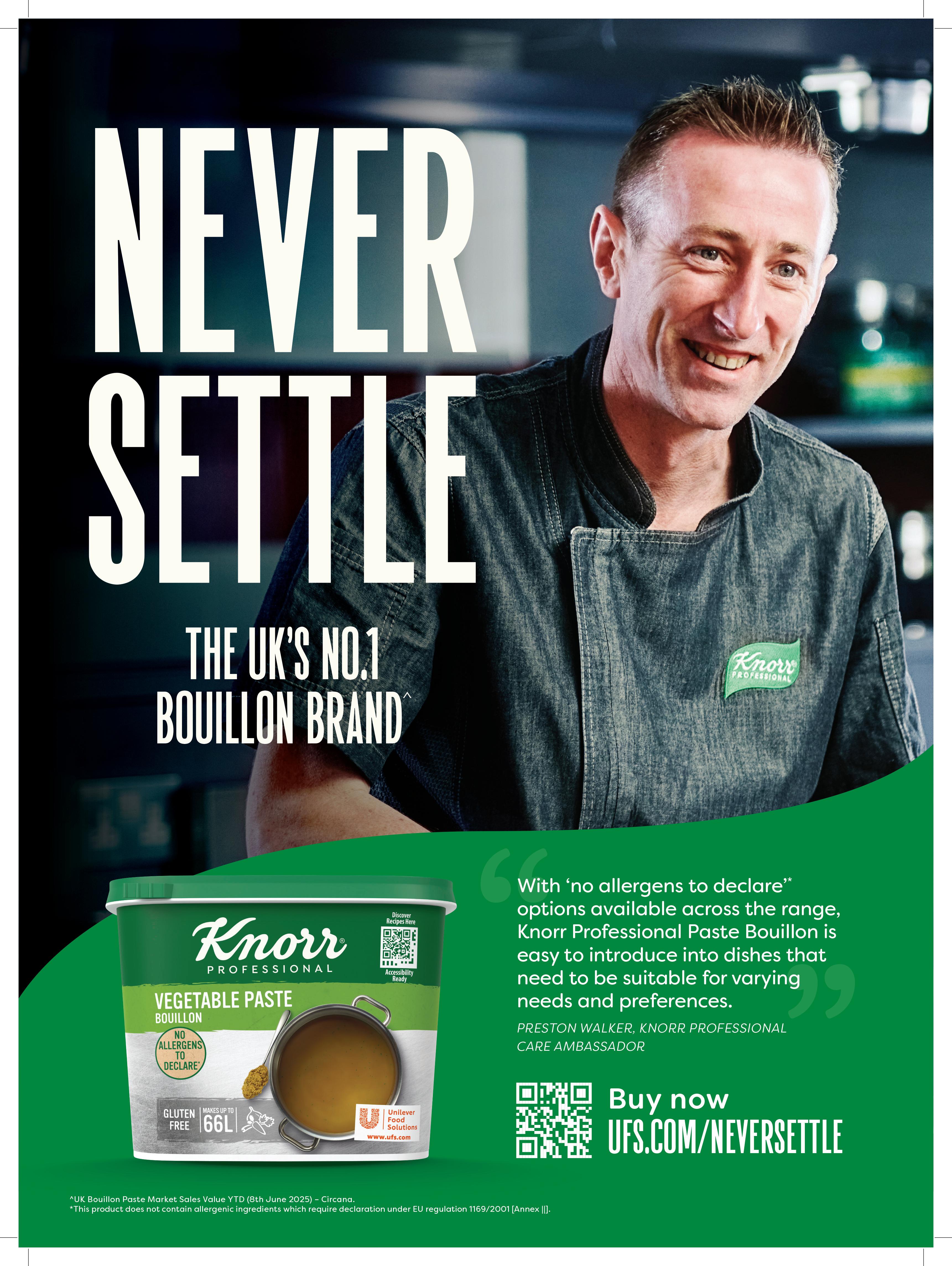
Care home budgets are under mounting pressure. Food supply constraints, inflation, and rising labour costs are combining to create a perfect storm for operators already working to tight margins.
The British Retail Consortium’s latest survey paints a concerning picture: 85% of retailers have raised prices in response to increased costs, fuelled by rises in employer National Insurance contributions and the National Living Wage. In the catering sector, which is heavily dependent on lower-wage roles, these changes are having a pronounced impact.
The Office for National Statistics’ July CPI figures show food inflation at 4.9%, with forecasts suggesting this could reach 6% by the end of the year. According to food procurement expert allmanhall’s Managing Director, Oliver Hall says:
“Based on recent and forecasted inflation spikes, care groups may want to revisit what they have budgeted for annual food inflation for the coming months. allmanhall consistently outperform inflation with price rises lower than inflationary rates, ensuring every pound of catering spend goes as far as possible.”.

Global factors are adding further uncertainty. Extreme weather patterns are disrupting crop yields and threatening food supply chains. The resulting price volatility is not limited to raw ingredients - distribution, packaging, and processing costs are also climbing.
Faced with these pressures, some care providers may be considering outsourcing catering as a cost-saving measure. However, as Oliver cautions:
“Pause before you add a management fee on top of rising labour costs on someone else’s payroll.”
Just because you eat less, or eat differently, it doesn't mean you should settle for less.
At Food Untethered, we believe that everyone – regardless of how they eat –deserves access to real, organic, and nourishing food. Whether you are tubefed, or simply need liquid nutrition on the go, our meals are made with care, using nothing artificial and held to the highest of safety standards.
We’ve launched our first three meals: a Coconut & Banana Smoothie, a Carrot & Coriander Soup, and a Mexican Bean Stew. Each is packed with whole ingredients, made for both taste and tolerance, and suitable for use orally or via a feeding tube.
But this is just the beginning. Over the next year, we’re releasing a full range of meals that can be consumed hot or cold, snacks, smoothies, and drinks –designed with real people, real needs, and real lives in mind.
Instead, the focus should be on smarter procurement strategies that deliver sustainable, long-term cost control.
Taylor & Taylor Care provide a strong example. Partnering with allmanhall, they benefit from comprehensive supply chain management, proactive supplier negotiations, and regular consultative advice - all designed to keep costs down without compromising quality.
“From day one, the care and attention provided by allmanhall has been exceptional… I’ve been impressed by the savings we’ve already seen, the flexibility regarding suppliers and by the excellent quality.”
Click here for the full video case study:
https://www.youtube.com/watch?v=NkroiOj26fs&t=1s
In today’s climate, expert food supply chain management is more than a support service - it’s a necessity. By tracking every penny of spend, identifying efficiencies, negotiating competitive pricing, and managing suppliers, care homes can protect their budgets while maintaining quality for residents.
As Oliver concludes:
“The effects of Government policy will likely be felt in the form of higher food prices in the coming years... choices made today will play a pivotal role in shaping the future of food security”.
With the right partner, care groups can ensure good food remains affordable, responsible, and sustainable - because quality meals for residents shouldn’t cost the Earth.
See the advert on the facing page for more information.


Our food is safe, shelf-stable, recyclable, and above all, human. It's not synthetic formula. It's not baby food. It’s real food, reimagined for different appetites.
If you or someone you care for lives with dysphagia, is tube-fed, or simply needs an easier way to stay nourished, we’re here to help.
Call us today – we’re a small team, and we love to talk. Whether you’re new to this or a seasoned pro, we’ll help you find something that works.
You don’t need to compromise.
You just need food that works for you.
Food Untethered
Real food. For every way of eating. www.fooduntethered.com
Please see our advert below.

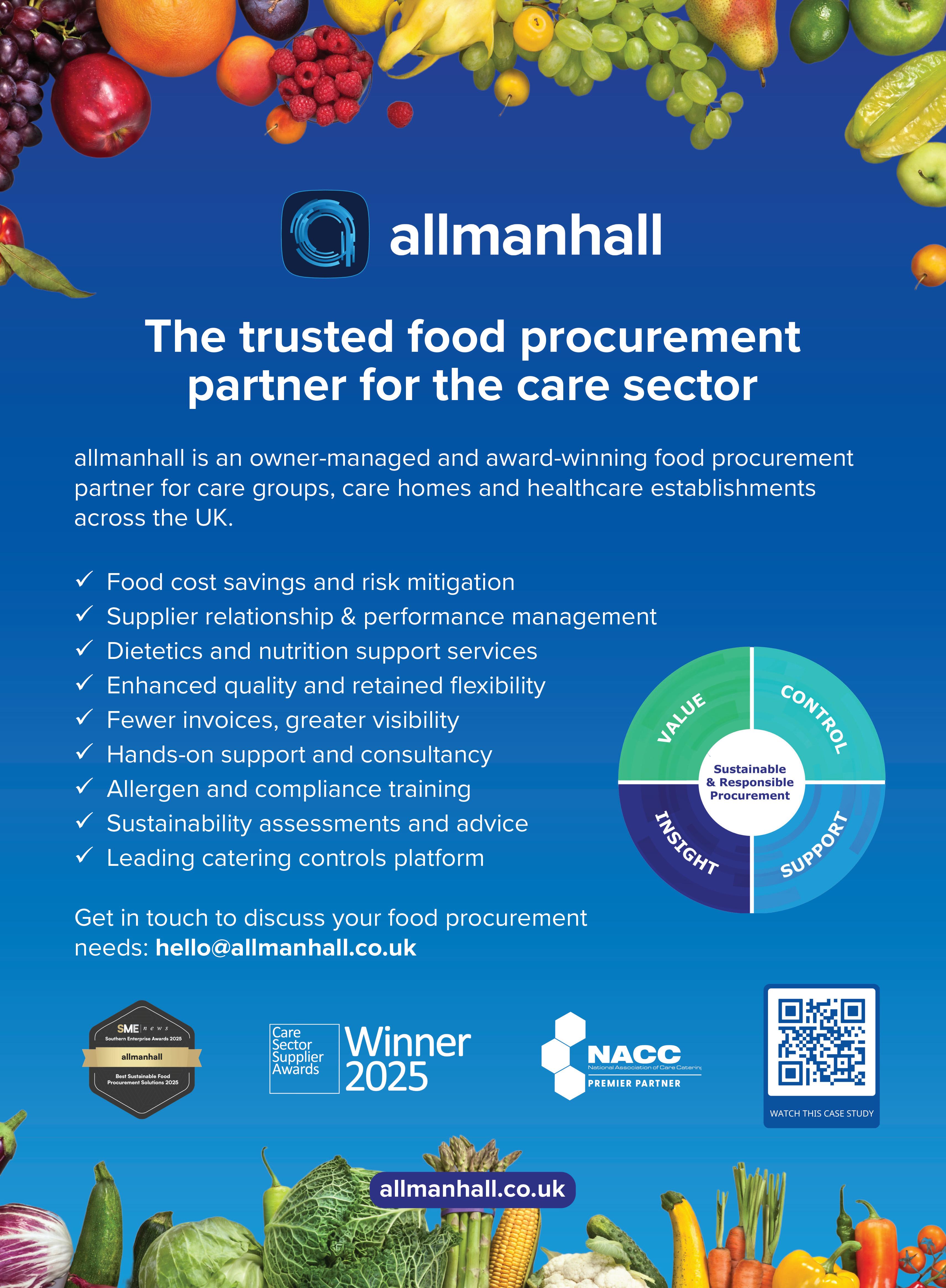
Managing laundry in residential care and nursing homes presents unique challenges that go far beyond a typical household wash. With infection control protocols, personalised clothing care, and the sheer volume of linens and garments to process daily, choosing the right laundry solution is crucial for both operational efficiency and resident wellbeing.
Care homes typically process between 1-1.5kg of laundry per resident per day – including personal clothing, bed linen, towels, and communal textiles. For a 40-bed facility, that's approximately 2,800kg of laundry each week. This volume demands robust systems that can maintain hygiene standards whilst being kind to delicate fabrics and ensuring residents' personal items don't go astray.
In-House vs Commercial Laundry Services
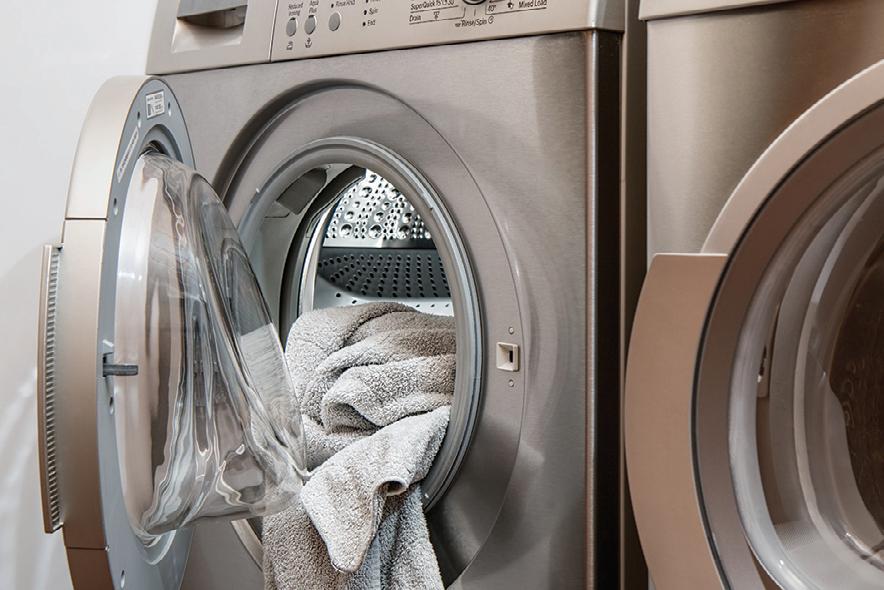
Many care homes face the fundamental decision between managing laundry on-site or outsourcing to a commercial service. In-house laundry offers greater control, faster turnaround times, and can be more cost-effective for larger facilities. It also allows staff to respond quickly to accidents or spillages – a common occurrence in care settings.
However, commercial laundry services bring industrial-grade equipment, specialist infection control processes, and can free up valuable staff time. They're particularly attractive for smaller homes where the capital investment in commercial machines may be prohibitive.
The Care Quality Commission emphasises that laundry procedures must effectively prevent cross-contamination. Modern barrier washers, which separate 'dirty' and 'clean' sides, are increasingly becoming the standard in care homes. Thermal disinfection – washing at 65°C for at least 10 minutes or 71°C for at least 3 minutes – remains the gold standard for destroying pathogens.
Water-saving technologies have improved dramatically, with modern machines using 40% less water than older models whilst maintaining infection control standards. This not only reduces environmental impact but also cuts utility costs significantly.
PROTECTING RESIDENTS' DIGNITY
Personal clothing forms an important part of residents' identity and dignity. A good laundry solution must include robust tracking systems –whether through sewn-in labels, heat-seal tags, or RFID technology – to ensure Mrs Johnson's favourite cardigan doesn't end up in Mr Patel's wardrobe.
Some homes are now investing in smaller, dedicated machines for delicate items, allowing woolens and special garments to receive appropriate care rather than being hand-washed or sent home to families.
Your laundry solution should support, not burden, your care staff. Ergonomic equipment placement, clear workflow design, and adequate training reduce physical strain and processing time. Some modern systems include automated folding or pressing equipment, which can significantly reduce labour costs and repetitive strain injuries.
As the sector continues to professionalise, laundry management increasingly reflects a care home's overall standards. Whether you opt for an on-site facility or outsourced service, the key is ensuring your solution meets infection control requirements, protects residents' belongings, and integrates smoothly into your daily operations.
The right laundry system isn't just about clean clothes – it's about maintaining the dignity, health, and comfort of those in your care.

For over 60 years, Fowler UK has been proud to support the care sector with dependable commercial laundry and catering equipment, backed by expert service that puts people first. As a family-run business, we understand the pressures care providers face, and we’re committed to delivering solutions that keep vital operations running smoothly.
From supply and installation of equipment, ongoing servicing and repairs, detergent packages, right through to our in-house CAD design team, we offer a ‘one-stop-shop’ solution for all of our clients laundry and kitchen facilities.
Reliability and customer service the heart of what we do. Our fast response times and high first-time fix rate mean care providers can trust us to minimise downtime and keep essential services running without
interruption. By stocking a vast range of manufacturer parts on our vans and in-house, we’re able to resolve issues quickly and effectively.
Beyond equipment sales, we support care facilities with comprehensive compliance and maintenance services such as gas safety inspections, preventative maintenance visits, duct cleaning and kitchen deep cleaning. This all-in-one approach provides peace of mind for our customers, ensuring they can focus on delivering high standards of care while we take care of the rest.
“Supporting the care sector has always been central to our business,” said William Fowler, Director at Fowler UK. “We know how important reliable equipment is for both residents and staff, and we’re proud to play our part in helping care homes provide safe, efficient, and welcoming environments.”
With a proven track record, family values, and a commitment to service, Fowler UK remains a trusted partner for care providers nationwide.
We’d be delighted to discuss how Fowler UK can support your facility.
See the advert on this page for further information.


Infection control remains a vital concern in care homes, where laundry plays an essential role in preventing the spread of harmful pathogens. With the Care Quality Commission continuing to raise expectations through a more rigorous inspection framework, laundry operations must meet high standards for both hygiene and regulatory compliance. Forbes Professional is helping care providers across the UK achieve exactly that.
Many care homes still rely on domestic washing machines that are ill-suited for the demands of a clinical environment. These machines often lack the ability to maintain the thermal disinfection temperatures required in care settings and are not compliant with WRAS Category 5 regulations. In addition, domestic models are not built for the volume of laundry processed in care homes, leading to higher operational costs, increased breakdowns, and invalidated warranties.
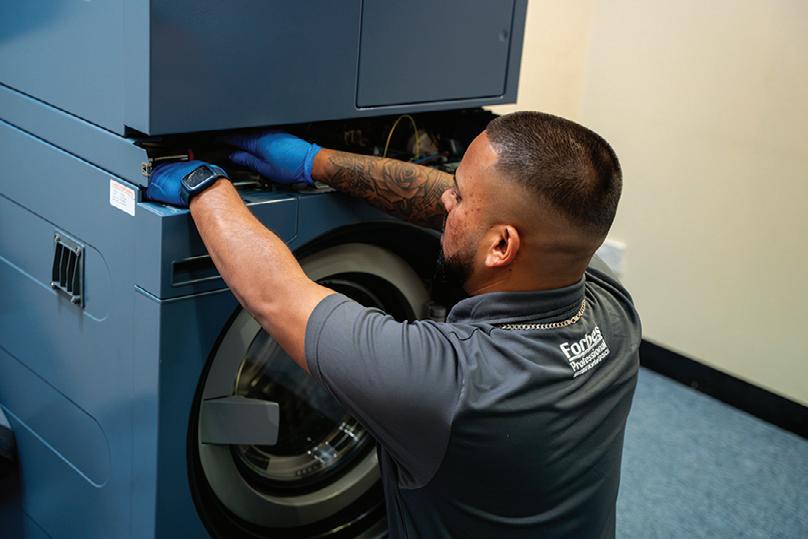
Forbes Professional supplies Miele commercial laundry equipment that is purpose-built for healthcare environments. These machines offer validated thermal disinfection cycles and include Type A air gaps for full WRAS compliance. Forbes also offers high-performance detergents which can be used in conjunction with the Miele appliances to deliver a comprehensive solution that supports effective infection control even at lower temperatures.
Some care operators have explored ozone-based disinfection as an alternative. While ozone can be effective, it introduces additional responsibilities around safe use and regulatory compliance. Systems must be carefully managed to mitigate potential risks to staff and residents. Forbes offers tried-and-tested alternatives that eliminate complexity while delivering proven results in a care environment. A major differentiator for Forbes is the company’s nationwide service infrastructure. They understand that equipment failure in a care home laundry room can quickly escalate into a serious operational issue. To minimise disruption, Forbes provides same- or next-day engineer call-outs as standard. Their extensive team of qualified field engineers and well-stocked service vehicles ensures swift, expert support across the UK.
Forbes also offers comprehensive rental and service contracts that include all maintenance and repairs, helping care homes manage costs and reduce administrative burden. These end-to-end solutions provide care operators with peace of mind, knowing their laundry systems are compliant, efficient, and fully supported. By partnering with Forbes, care homes benefit from expert guidance, market-leading equipment, and dependable service; ensuring hygiene standards are met and residents are protected. forbespro.co.uk | info@forbes-professional.co.uk | 0345 070 2335
SOUTHERN Contracts is one of the UK’s leading suppliers of industrial laundry, catering and commercial cleaning equipment.
Founded in 1964 to initially supply and maintain commercial cleaning equipment to the marine industry, we have since grown to become a well-respected and trusted partner to leading manufacturers.
We have consistently been the top performing Laundry Partner to Electrolux Professional and again achieved their top Laundry Partner Award for 2024. We’ve now won this accolade consistently for well over 20 years.

Now in our third generation and still very much a family run business, we are proud to now be a global supplier of not only laundry equipment, but with knowledge gleaned over the years, we are also a go-to company for professional kitchen appliances and commercial cleaning equipment. With our knowledge of most market products, we pride ourselves on delivering the very best solutions and service to our customers.
Already working for many of the national Care and Nursing Homes, as well as the hospitality industry such as hotels, restaurants and holiday parks, we understand the importance of keeping ‘down time’ to a minimum and by keeping in stock the leading commercial washing machines, tumble dryers and cleaning equipment we can sometimes just swap machines over to keep your business up and running.
We are able to offer independent and unbiased advice to ensure your purchase precisely meets your
requirements and budget, across a complete array of different products and models. Our expert team of technical staff are on hand to ensure your business is supported through every aspect of your purchase or rental agreement.
From advising on current government standards (eg. infection control for commercial washing machines and meeting government legislation for kitchen appliances) our team fully support you throughout the whole journey, from initial advice to delivery, installation, customer training, ongoing maintenance, service and repair. We hold many accreditations for safety and service excellence, providing peace of mind to all our customers, whether existing or potential.
For more information regarding our services for :
- Commercial laundry equipment
- Commercial kitchen appliances and warewashing/dishwashing
- Commercial cleaning equipment
Please visit our website at southerncontracts.co.uk and see previous projects we’ve worked on and our enviable testimonials received from happy clients across a plethora of sectors.
Contact us now on 03301 222888
Follow us on : Facebook, Twitter, Instagram and LinkedIn
See the advert on the previous page for information.
At PDS, we understand the challenges that come with managing laundry in a care home. From bedding, towels and tablecloths, to cleaning the clothes of residents, we appreciate that you need a care home laundry repair service and care home laundry equipment you can rely on.
Here at PDS, we provide care home laundry equipment to suit the needs of your setting. We offer many big-name industrial brands such as Alliance, Electrolux, Miele, Girbau, Grandimpianti and Schulthess.
As your trusted care home laundry repair services partner, we can help you with more than just supplying equipment. Our care home laundry services include laundry consultations, project design and management, equipment supply and installation, spare parts and more.
Our care home washing machines range from 6kg to 30kg drums for small to medium-sized care settings, and from 26kg to 40kg ones for larger care homes with more demanding laundry needs. We offer a full range of care home laundry equipment to meet your needs. Our equipment includes:
• Washing machines
• Tumble dryers
• Stacked equipment
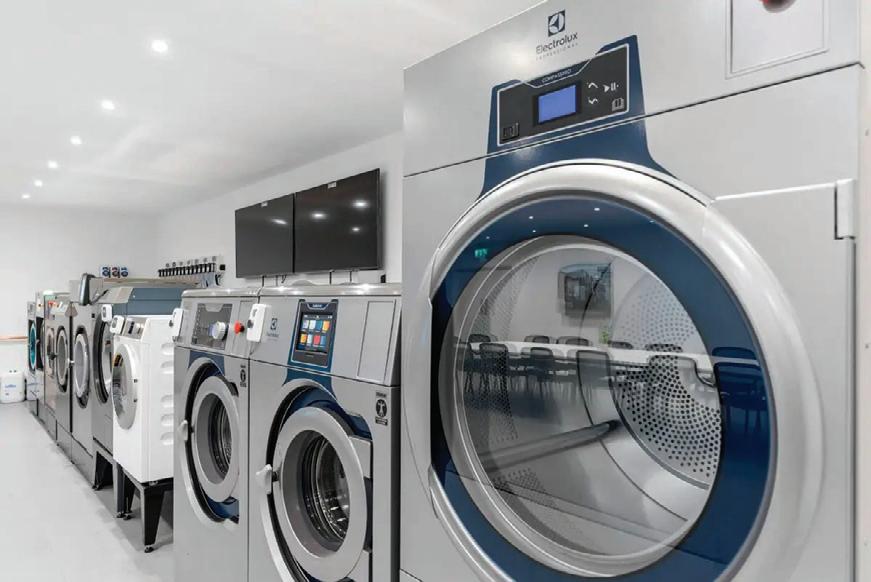
• Ironers We supply everything from compact care home washing machines to larger ironers and stacked systems, tailored to suit your available space, daily routines and laundry demands. Our aim is to make laundry simple and efficient, so your team can focus on providing the best care for your service users.
With more than 30 years of experience, our in-house engineers offer expert support nationwide. Wherever you’re based, we’re here to keep your laundry equipment performing at its best.
If you run or manage a care home and are looking for a care home laundry repair services partner, then look no further than PDS. We’ve been helping care homes just like yours since 2007 and are one of the most trusted suppliers of care home laundry repairs and care home laundry equipment. We are here to help keep your care home running smoothly. Please get in
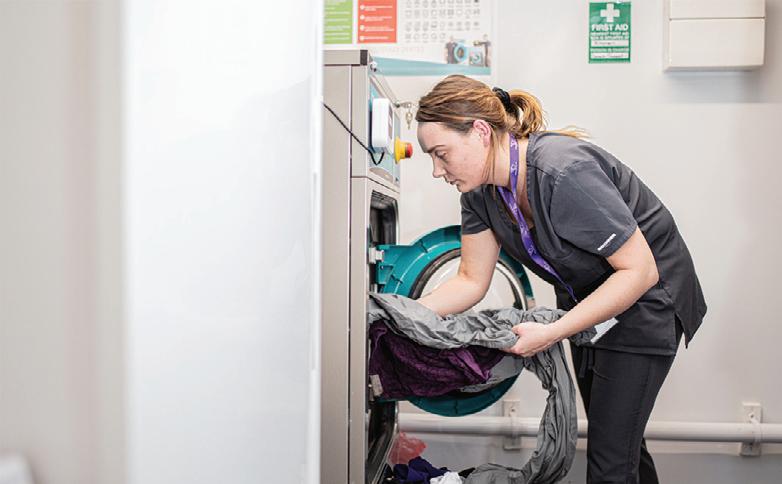

We

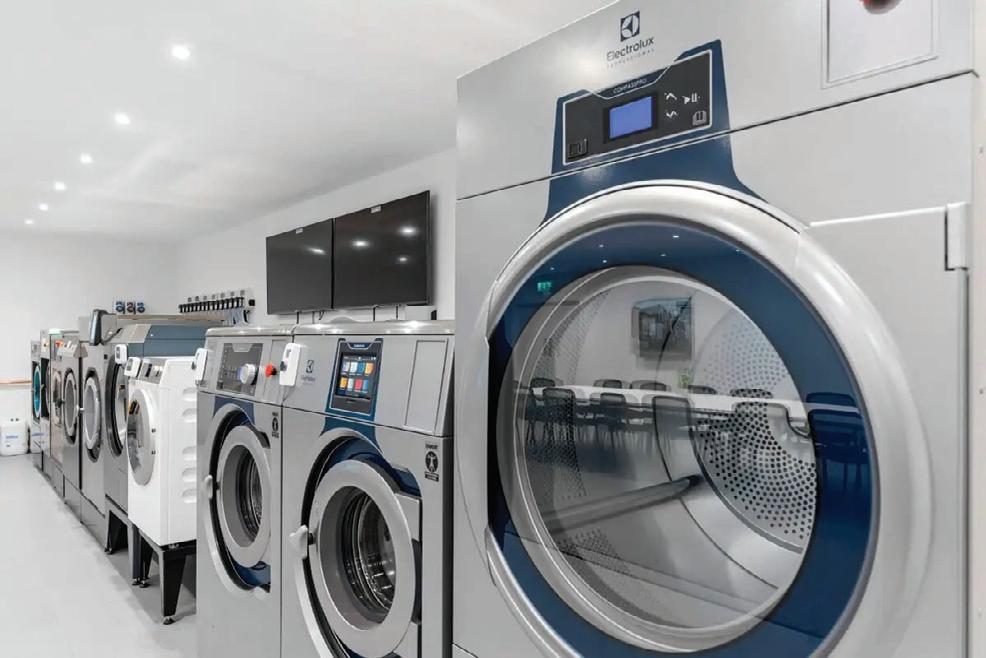
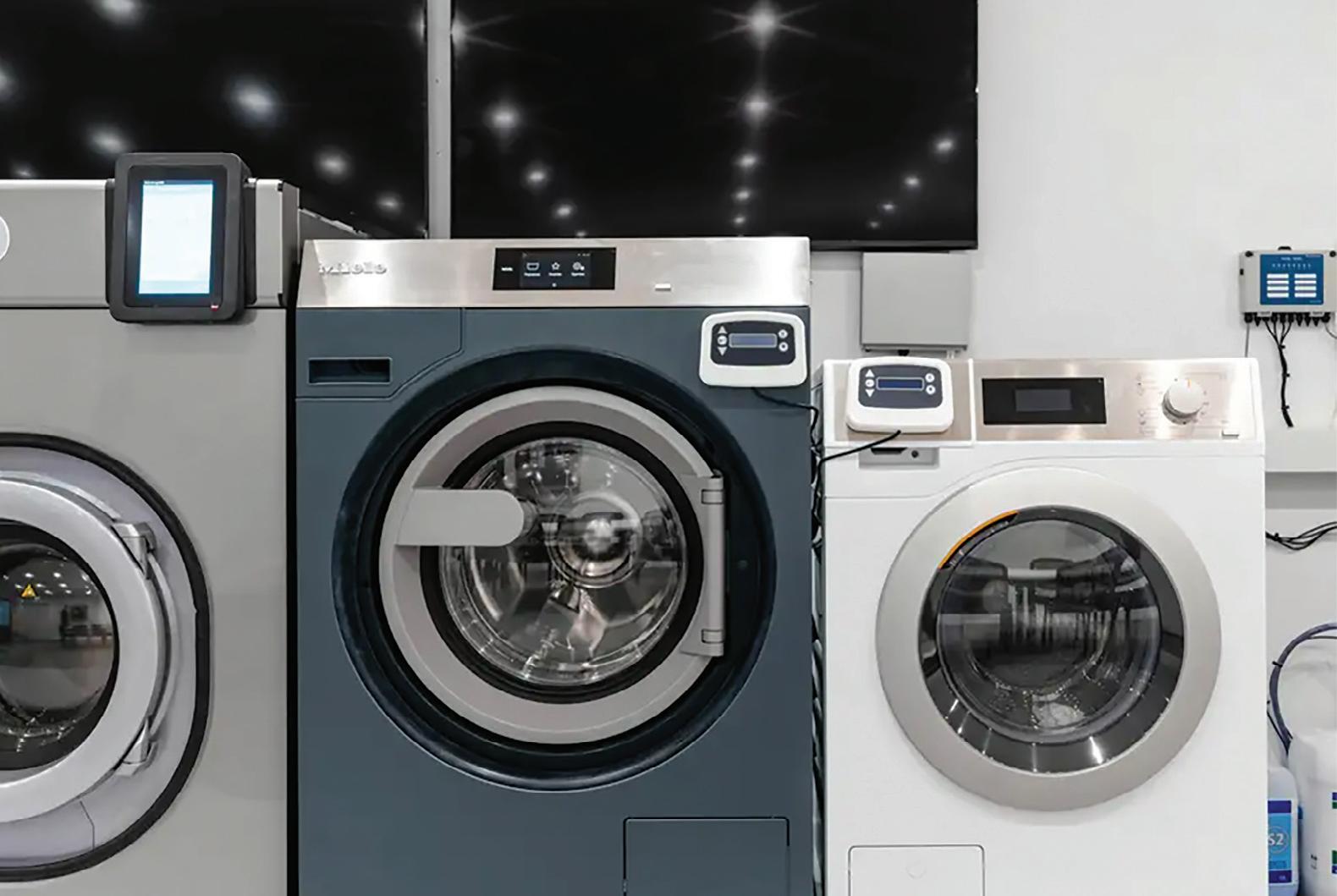

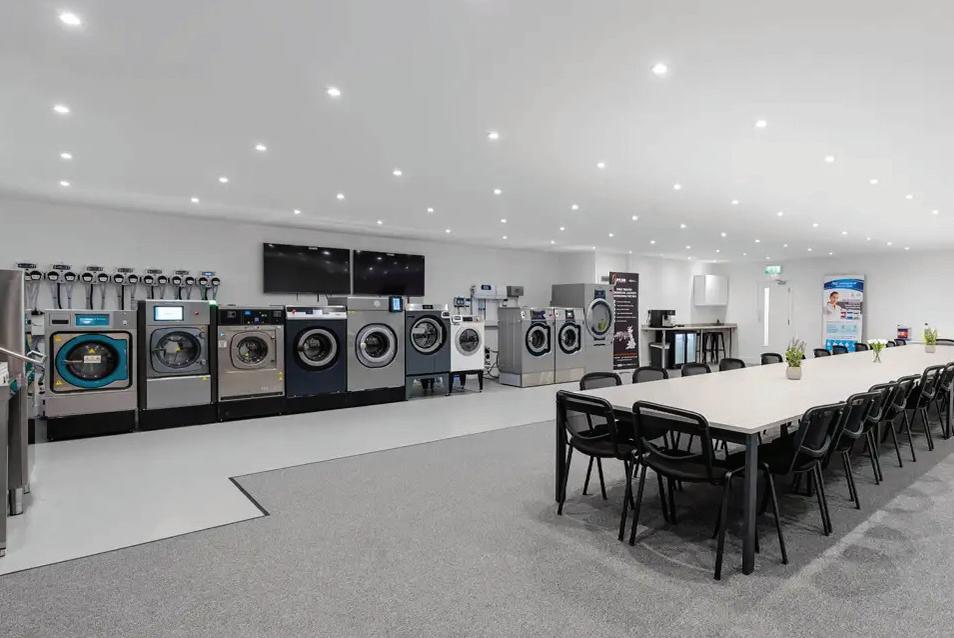

•
•

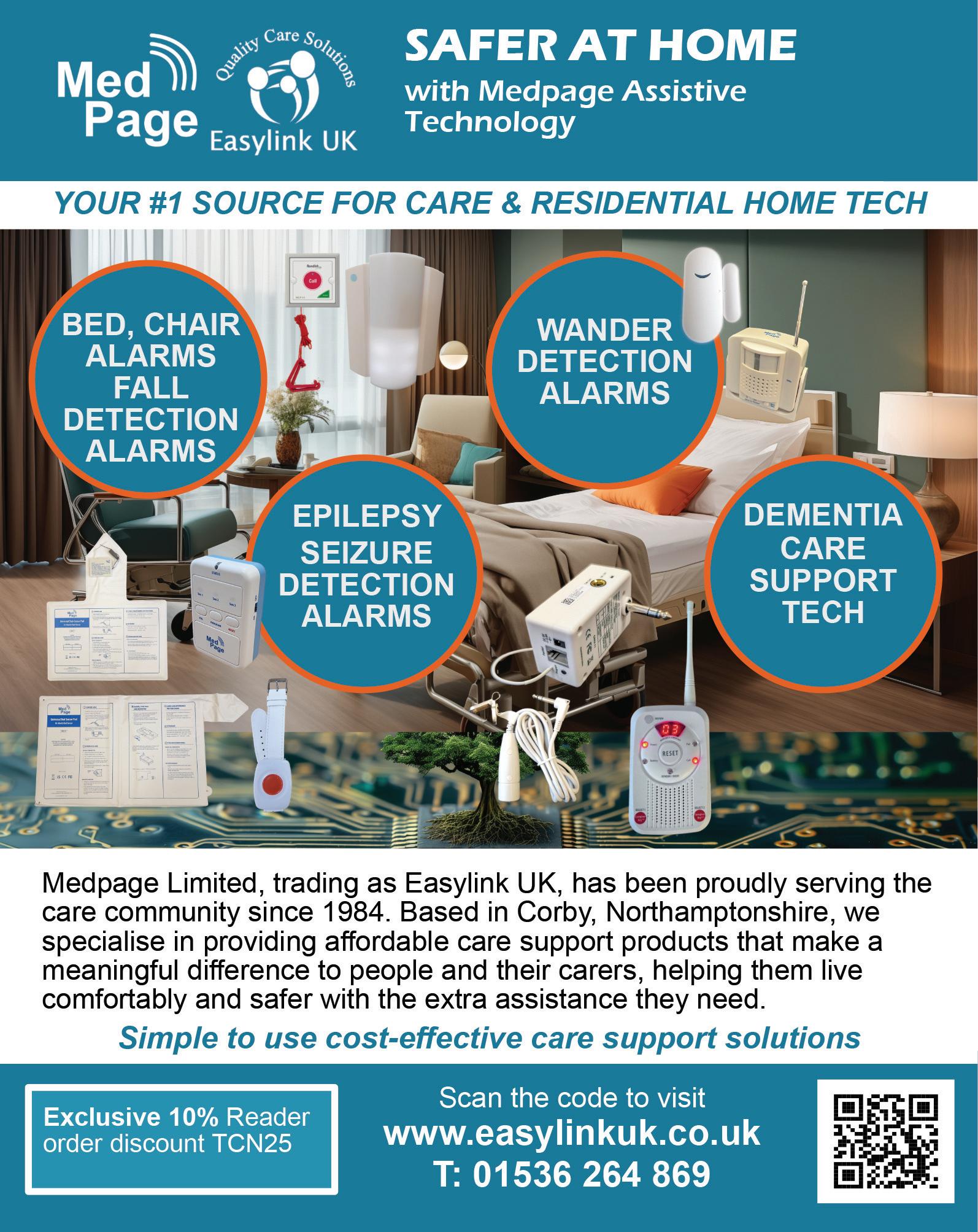
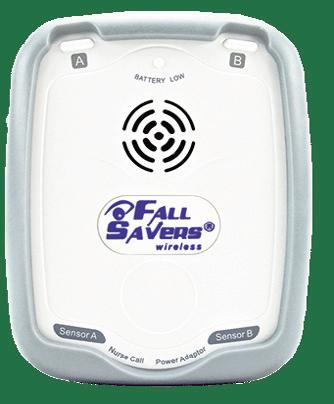
Eliminate all
with our new generation falls management solutions! Upgrade your falls programme with the latest technology from Fall Savers®. The NEW Fall Savers® Wireless eliminates the cord between the monitor and sensor pad. This results in less work for nursing staff, improved safety for patients and reduced wear and tear on sensor pads. Wireless advantages include the ability to use one monitor with two sensor pads simultaneously and support for many new wireless devices.
FEATURES

BENEFITS INCLUDE:
for patients; less work for staff Bed and chair pads available One monitor works with two sensor
Smart Notes helps you create accurate, detailed notes, using AI to write up forms in moments and and deliver them directly into Access Care Planning. That means less time writing, and more time with the people who matter most.
Access Smart Notes key features and benefits:
• Save thousands of pounds every year on Care Assessments without a drop in quality.
• Capture detailed notes quickly and effi-

ciently in the moment.
• Reduce errors and missed details with templates customised to your service
• Integrated with Access Care Planning for real-time updates saving hours of admin time.
• Built-in AI accuracy to streamline the documentation process to reduce risks and improve the quality of your notes
• Full audit trail for peace of mind and transparency
Visit www.theaccessgroup.com
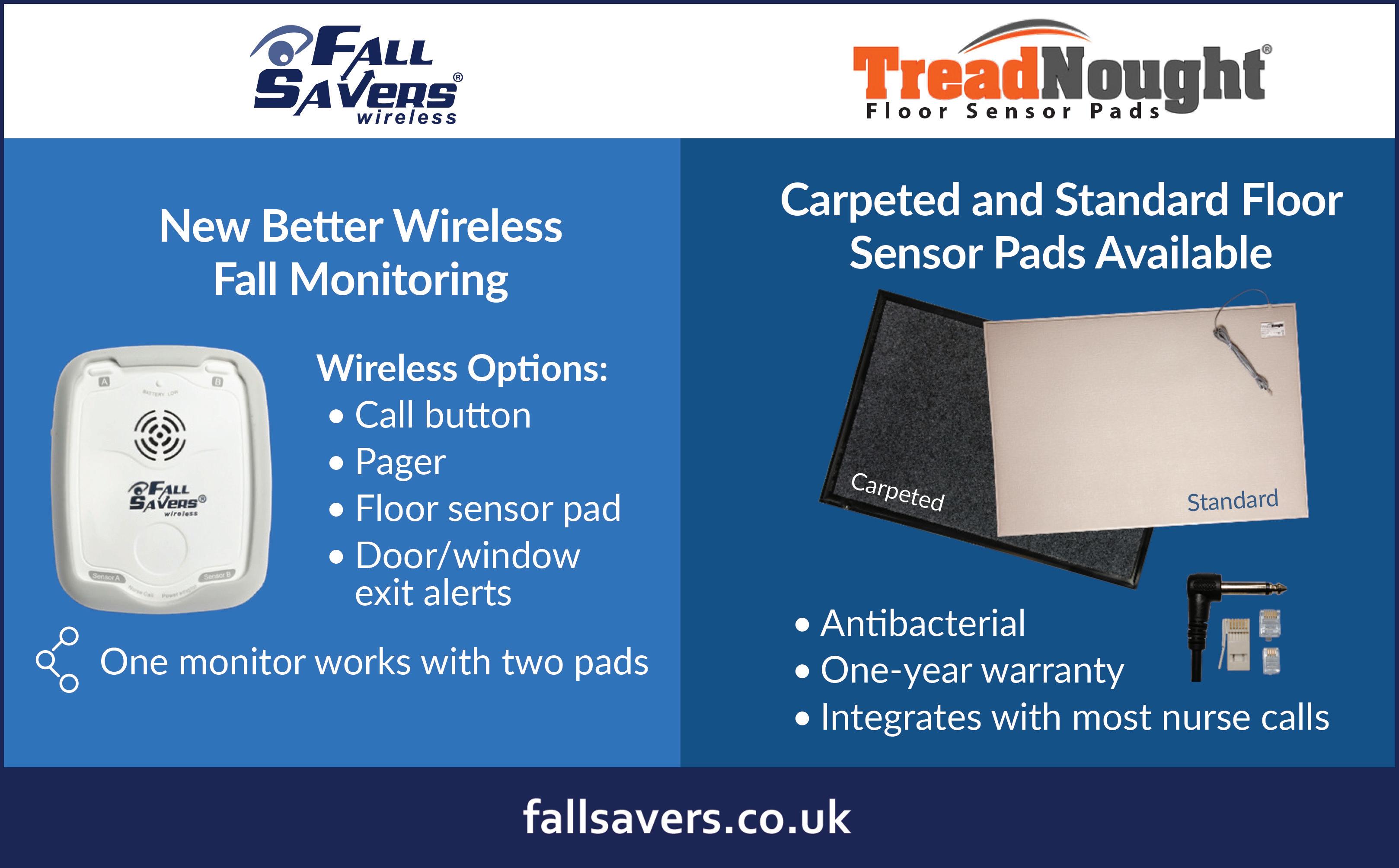
Falls are a significant concern for vulnerable individuals, especially seniors and patients at risk. Medpage, a leader in assistive technology, offers a range of cuttingedge products designed to enhance safety and provide peace of mind for caregivers and families. Here’s an in-depth look at some of their standout solutions: MPRCG1 (2023) BED LEAVING DETECTION ALARM WITH CAREGIVER RADIO PAGER
The MPRCG1 is a comprehensive system tailored for fall prevention in domestic, commercial, and NHS care settings. This all-inclusive kit includes a bed pressure mat sensor, a BTX21-MP alarm sensor transmitter, and an MP-PAG31 radio pager. The system is designed to alert caregivers when a patient leaves their bed, reducing the risk of falls. Key features include:
Wireless Alerts: Notifications are sent to the caregiver’s pager via tone or vibration.
• Customizable Alarm Delays: Options for instant, 15-minute, or 30-minute delays. Durable Design: Antimicrobial and disinfectant-resistant materials ensure longevity.
• Ease of Use: Minimal installation required, making it user-friendly and portable.
HDKMB2 HOSPITAL DISCHARGE KIT FOR FALLS RISK PATIENTS
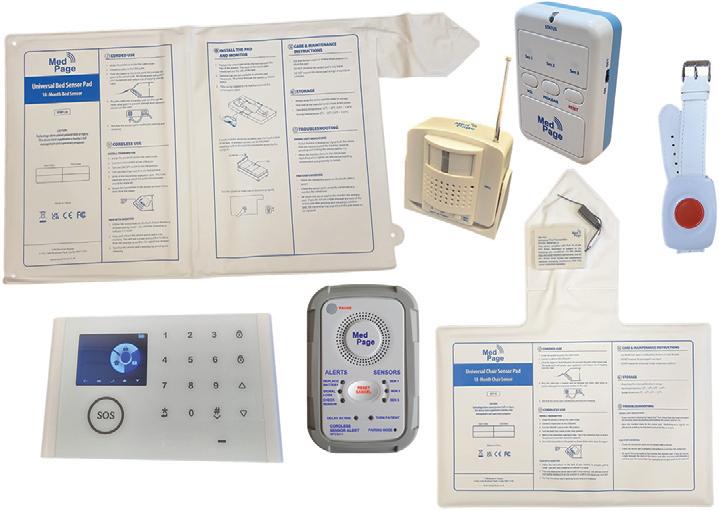
The HDKMB2 is a thoughtfully curated kit aimed at supporting patients transitioning from hospital to home care. It includes essential tools to mitigate fall risks and promote recovery. This kit is ideal for caregivers seeking a comprehensive solution to enhance patient safety during the critical post-discharge period.
MULTI-PORT WIRELESS SENSOR INPUT EXPANDER FOR NURSE CALL CONNECTION
CMEX-21
The CMEX-21 is Medpage’s latest innovation, designed to integrate seamlessly with existing nurse call systems. This multi-port expander allows for the connection of multiple wireless sensors, enhancing the
monitoring capabilities of healthcare facilities. Its versatility makes it a valuable addition to any care environment, ensuring timely responses to patient needs.
RON-WC2 WATERPROOF DISABLED PULL CORD ALARM TRANSMITTER WITH WIRELESS ALARM RECEIVER
The RON-WC2 is a robust solution for disabled individuals requiring immediate assistance. This waterproof pull cord alarm is ideal for use in bathrooms and other high-risk areas. Paired with a wireless alarm receiver, it ensures that help is just a pull away. Features include:
Waterproof Design: Suitable for wet environments.
• Wireless Connectivity: Reliable transmission to the alarm receiver. Ease of Installation: Simple setup for quick deployment. WHY CHOOSE MEDPAGE?
Medpage’s commitment to innovation and quality is evident in their product range. Each solution is designed with the user’s safety and convenience in mind, making them a trusted choice for caregivers and healthcare providers alike.
By investing in these advanced fall prevention tools, families and facilities can create safer environments for those at risk. Medpage continues to lead the way in providing practical, reliable solutions that make a real difference.
For more information, visit Medpage’s official website or contact their team to explore these products further. Safety starts with the right tools, and Medpage delivers just that. www.easylinkuk.co.uk
T: 01536 264 869
Courtney Thorne, a long-standing innovator in healthcare communication systems, is setting new standards in the care home sector with its advanced wireless nurse call technology—designed to improve resident safety, enhance staff efficiency, and support a more responsive care environment.
With over 30 years of experience serving the UK healthcare market, Courtney Thorne’s systems are now trusted by thousands of care homes nationwide. Unlike traditional hardwired solutions, their wireless nurse call systems offer non-invasive installation, scalability, and smart analytics—making them ideal for both new builds and retrofit projects.
“At the heart of our technology is the belief that better communication leads to better care,” says Graham Vickrage, Managing Director at Courtney Thorne. “Our wireless systems not only reduce response times but also empower staff
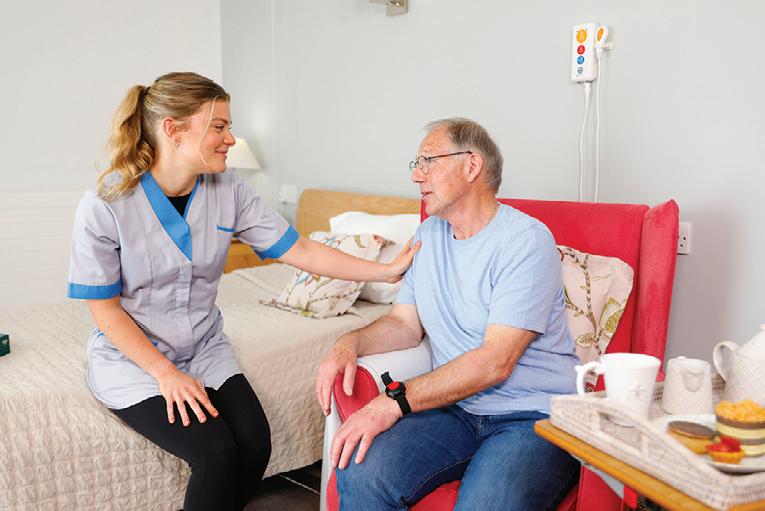
with the tools they need to deliver safe, person-centred care.”
Care providers are increasingly choosing wireless systems for their flexibility, reliability, and cost-effectiveness. With a full suite of accessories—including neck pendants, door monitors, fall detection, and bed sensors—Courtney Thorne systems can be tailored to meet the specific needs of each home and resident.
In an industry where compliance, safety, and staff pressures are always front of mind, Courtney Thorne provides more than just products—they offer ongoing support, training, and a commitment to innovation that helps care homes futureproof their operations.
For more information or to book a free demo, visit www.c-t.co.uk or contact info@c-t.co.uk.
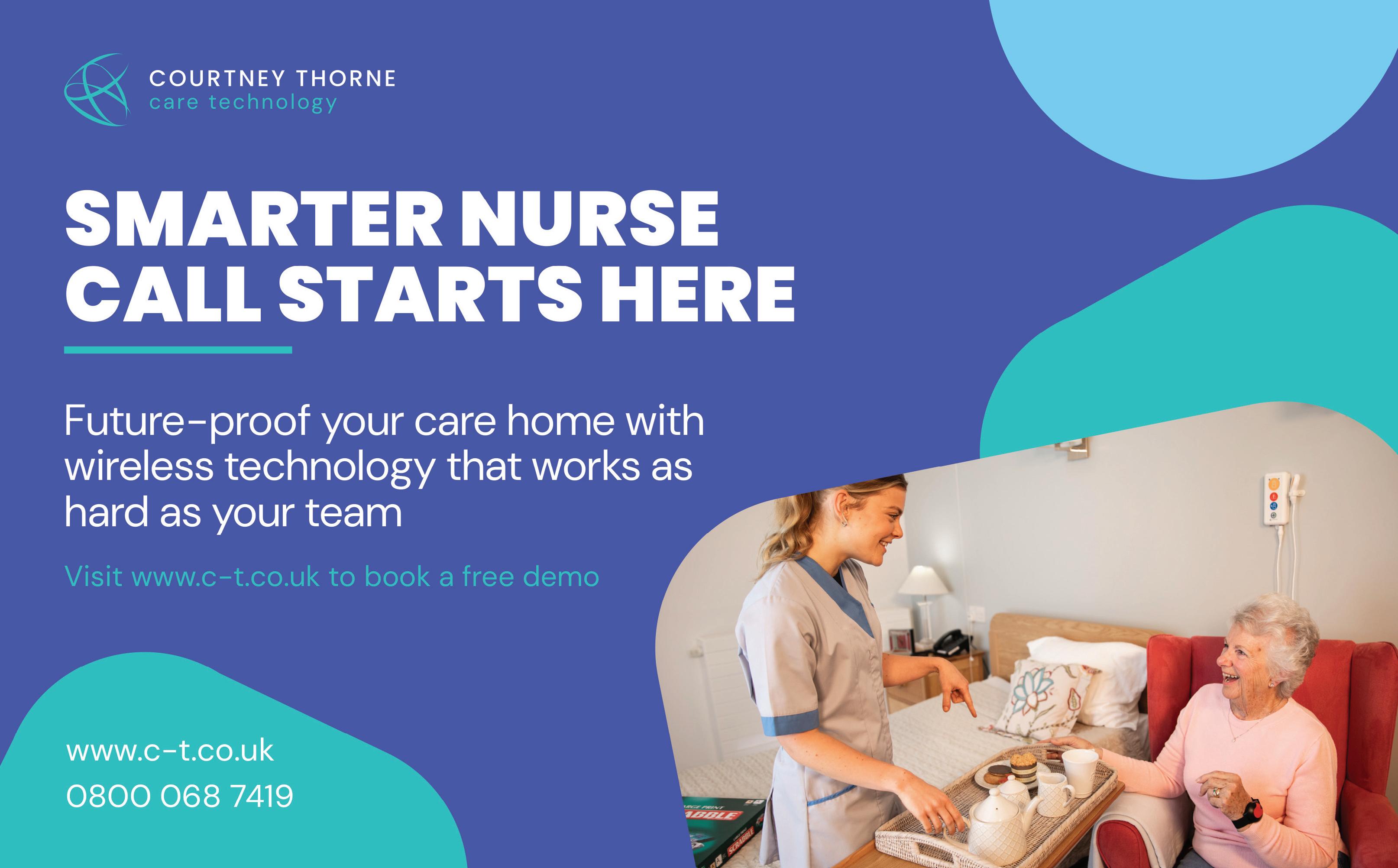
Care homes across the UK are transforming how they deliver care thanks to SyndoraAlto, the newly rebranded name behind CHARIS, the UK’s most advanced digital nurse call system.
Fully supplied, installed, and maintained from just £6.40 per bed, per month, CHARIS delivers smarter, safer, and more connected care through real-time alerts, mobile integration, and intuitive smart displays that help staff respond faster when residents need them most.
Every CHARIS system comes fully inclusive with 15” smart displays, help buttons, pull cords, guaranteed radio coverage, and 24/7 UK technical support, all backed by SyndoraAlto’s trusted installation and maintenance team.

For care providers not yet ready to replace their existing nurse call system, AltoEnhance offers the perfect first step into digital care.
Available from just £129.00 per month, AltoEnhance seamlessly connects to your current nurse call system, bringing digital reporting, mobile alerts, and actionable insights without the need for a full system upgrade.
“Technology should make care easier, not harder,” says Louis Johnson, Managing Director. “CHARIS and AltoEnhance connect people, information, and action empowering care teams to deliver truly person-centred care.”

�� Meet the team & learn more at www.syndoraalto.com
Alarm Radio Monitoring is the market leader in the design, manufacture and installation of bespoke, end-to-end, wireless alarm systems and solutions for the healthcare, leisure, custodial and education industries.
We have been providing wireless alarm and nurse call systems for over 30 years. Supplying care homes and hospitals with an essential lifeline that supports the delivery of outstanding care.
We believe in excellence which translates into:
Advanced Technology
Industry-leading wireless alarm technologies and software
Bespoke Solutions
We design systems to your needs rather than your team having to work around the system Innovative Design
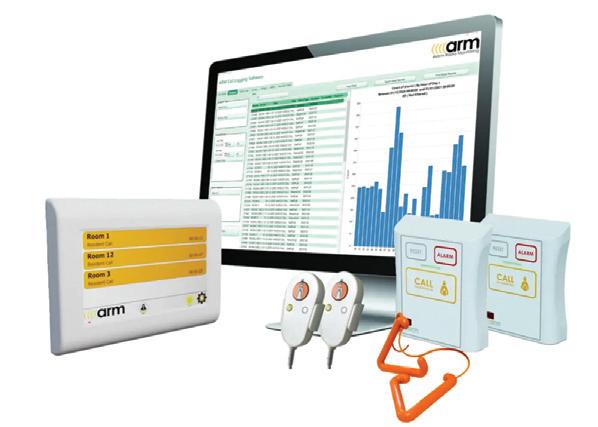
Pushing boundaries with the reliability that comes from decades in the industry Flexible Finance Options
Ensuring organisations of any size can provide safety for their staff and clients
24 Hours a Day, 365 Days a Year Service
Your ARM service team is on hand, on the phone, on-site or return to base, whether you have a service contract or not
For further information, see the advert below or visit www.arm.uk.com
Croner-i was founded in 2017 as a proud part of the Peninsula Group. Since its beginning, it has supported thousands of care providers across the UK to stay compliant with Care Quality Commission (CQC) requirements and wider regulatory obligations, setting a standard in the industry.
Through their Navigate-Care platform, Croner-i specialises in providing practical, accessible and easy-to-understand guidance that enables care services to exceed their compliance responsibilities. From residential care homes, and domiciliary care agencies to supported living providers and other care services, thousands of care providers rely on Croner-i’s resources to maintain quality, safety, and best practice across their operation.

“We understand that compliance can be a challenging and time-consuming process for care providers,” said Andrew Murphy, Head of Content at Croner-i. “Our mission is to take the complexity out of CQC and regulatory requirements, giving providers the clarity and confidence they need to deliver outstanding care.”
With Croner-i’s Navigate-Care platform, care services have access to a comprehensive library of policies,
toolkits, and expert guidance written by industry and care specialists. This includes practical step-by-step advice on preparing for CQC inspections, meeting the new Single Assessment Framework (SAF) and implementing robust quality assurance processes.
Being part of Peninsula Group allows Croner-i to benefit from decades of experience in employment law, HR, and business compliance. This ensures the advice and support given is both legally and operationally practical.
With the care sector under increasing scrutiny and public pressures, Croner-i remains committed to empowering providers with the tools they need most, to operate efficiently, protect service users, achieve inspection success and grow their care service.
Look out for more details from Croner-i in the coming weeks.
For more information about Croner-i Navigate-Care, get in touch with the partnership team at partnerships@croneri.co.uk.
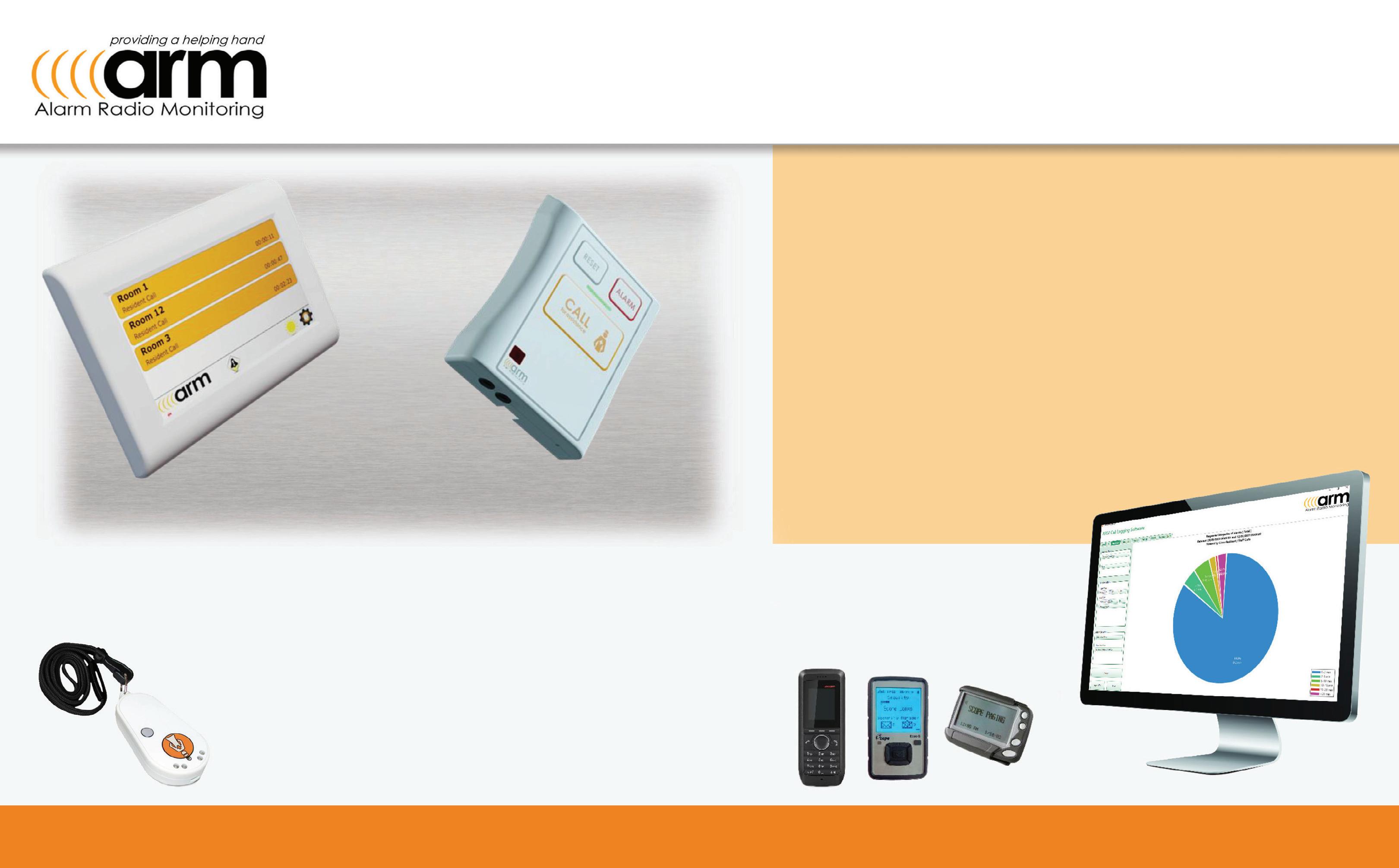
The wireless ARM Nurse Call system has been developed over 30 years with both the client and user in mind.
It enables staff to efficiently answer calls, making the management of resources more flexible and provides the functionality you would expect of any nurse call system.
The system is quick and easy to install and works wirelessly, using radio communication between both the call points and the system infrastructure.
Data Analysis software provides a full audit trail of events
The all-new call logging software from ARM enhances the functionality of your care call system dramatically.
• It can help you track the quality of your service to your residents.
• It can help you demonstrate compliance with your aims and best practices, both to relatives and to authorities.
• It can help you find bottlenecks in service provision, track staffing requirements, and allow you to ensure staff are meeting expectations.
• Most importantly, it provides assurance that you know and can demonstrate what is happening in your care home.
Call messages can be sent direct to staff to speed up response times and can also be integrated to work with smart phones & messaging.
Sensore launches a smart pressure ulcer prevention system, a breakthrough technology combining a smart fabric sensor mat with an intuitive app and powerful AI analytics. Today’s best practice is reactive: manual checks and frequent repositioning. Sensore flips the model - continuously monitoring pressure distribution in real-time and providing simple preventative alerts, so users stay protected while easing the daily vigilance demand on users and carers.
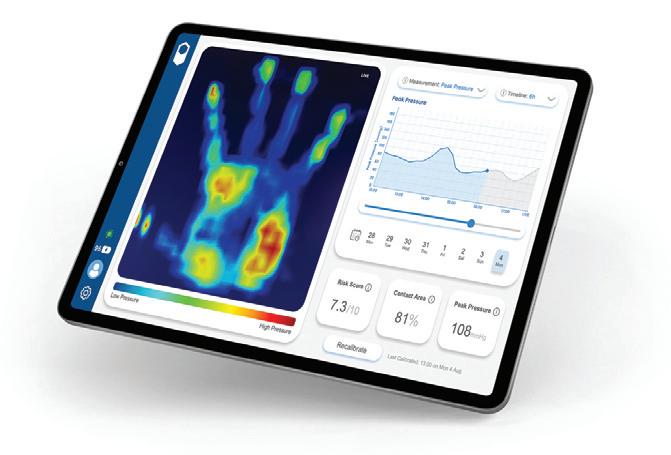
A personal early-warning system that integrates seamlessly into any wheelchair or bed, Sensore is built for elegant simplicity - restoring peace of mind for wheelchair users and supporting higher-quality, more

consistent care. For care providers, Sensore can help standardise prevention workflows and contribute to meaningful cost savings, while building a unique dataset to advance pressure-injury research.
Sensore is supported by clinical experts: "We believe Sensore’s continuous pressure monitoring will have a transformational impact on our ability to prevent and manage pressure ulcers effectively, while driving measurable improvements in patient care quality" - NHS Consultant Clinical Scientist Specialist in Clinical Biomedical Engineering Visit www.sensore.health for more information, to sign up for early access and book a free demo.
Technology has made people more connected with the world around them and the revolution in assistive care devices has made it possible for the elderly to spend their last years in a comfortable and familiar environment. These devices have also made it easier for home carers to provide quality care for their loved ones while managing their own lives. They allow you to care for your elderly whether they are travelling in the city for errands, staying alone at home, or staying in the same home as you. They are also helping nursing homes provide better care for them with discrete monitoring and quick responses to emergencies. If you’re looking for these kinds of assistive care devices for your loved ones or nursing home, Frequency Precision produce some of the best systems available to help you with elderly care
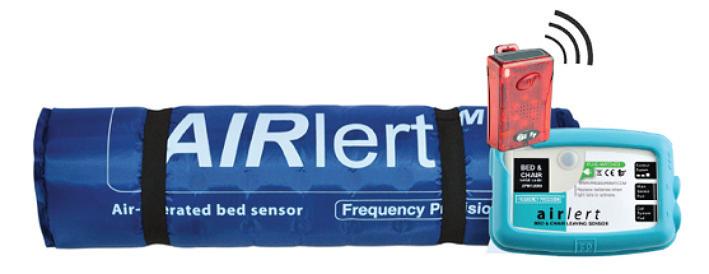
and mobility monitoring, ranging from bed, chair and floor sensor mats through fall monitoring and GPS tracking to fully integrated nurse call plug or wireless systems.
Phone: 01837 810590
Email: contact@frequencyprecision.com
Website: www.frequencyprecision.com


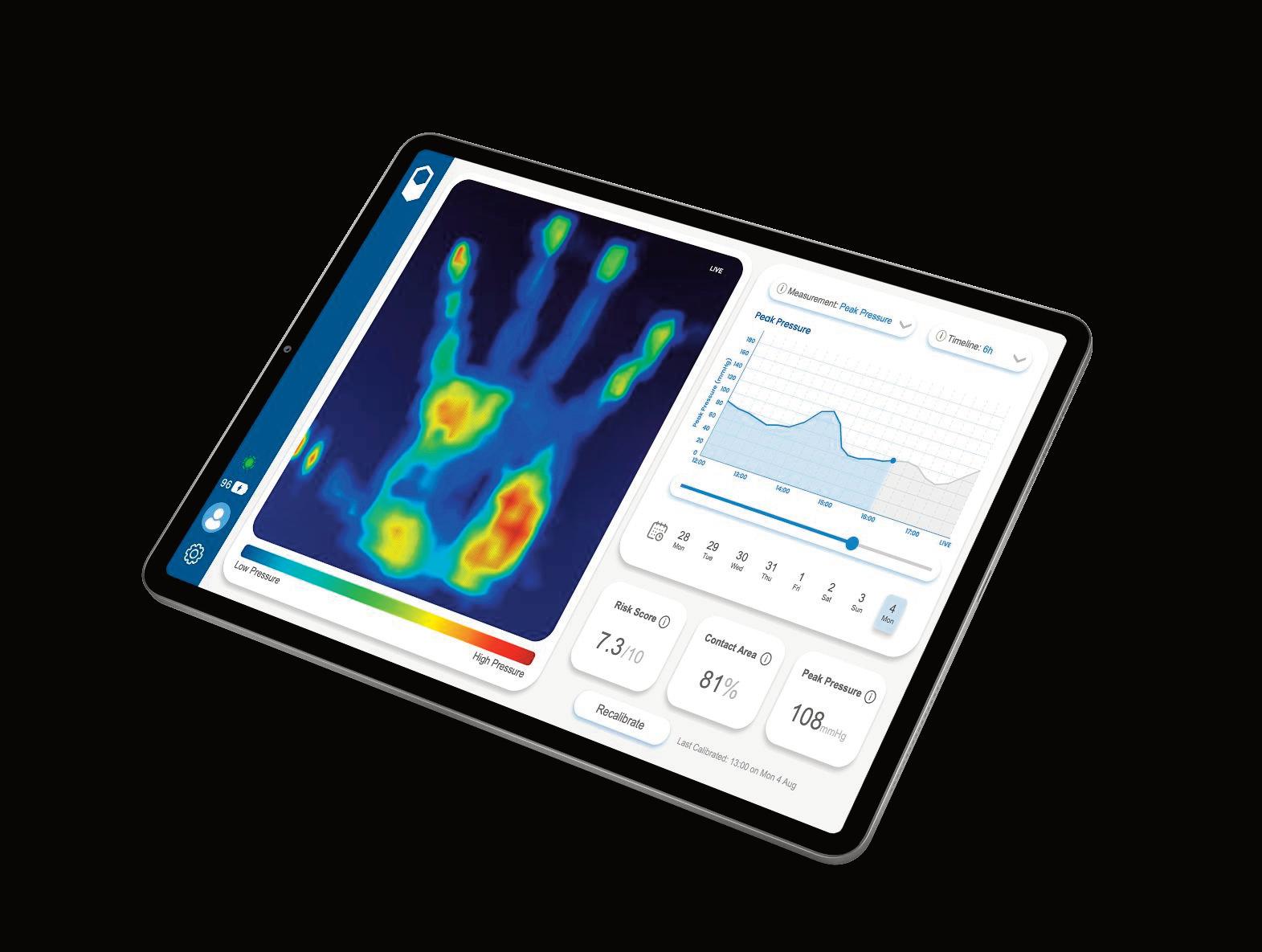
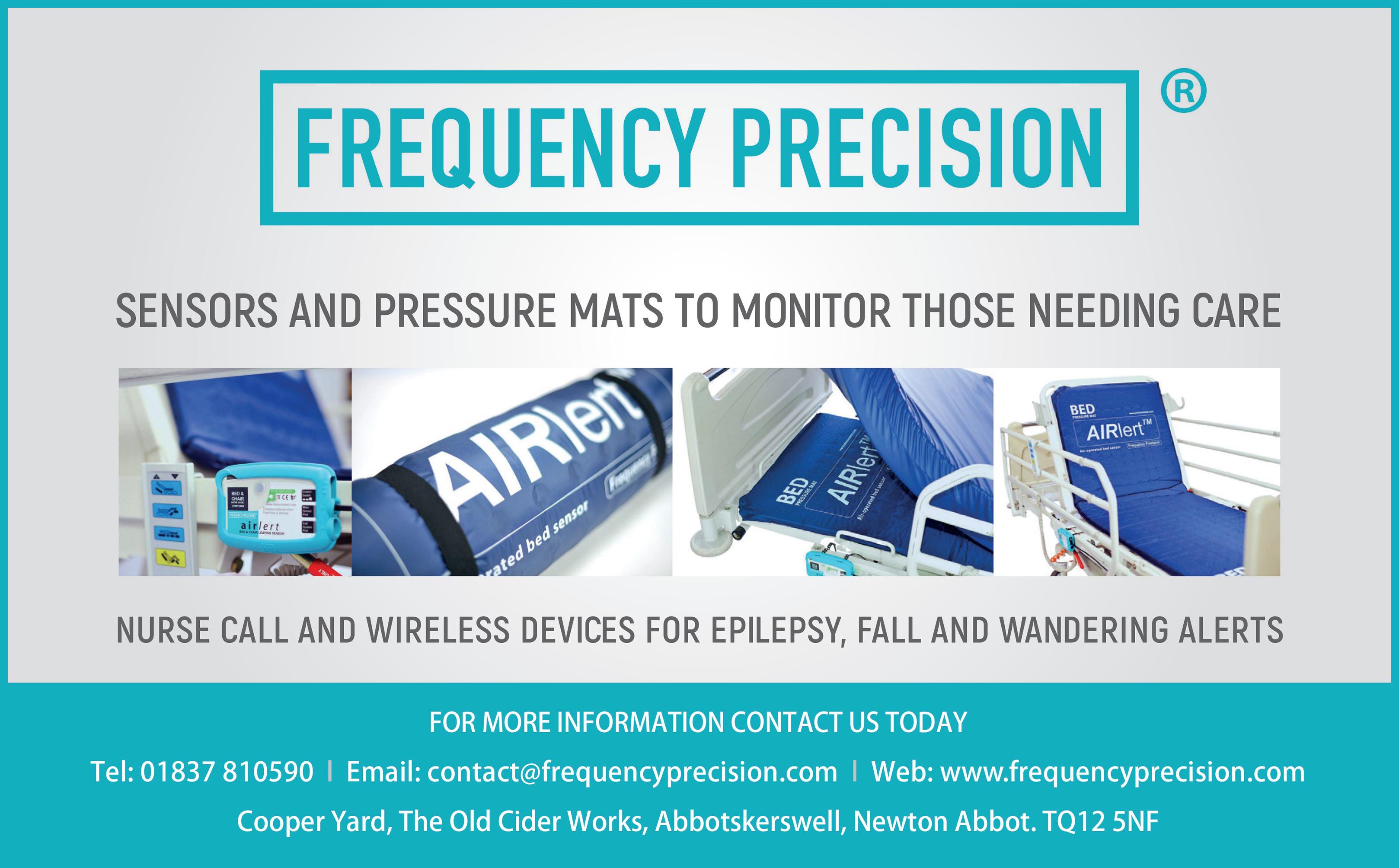
The NHS Long Term Plan is reshaping healthcare to make it more personal, preventative, and accessible. At the heart of this transformation are three strategic shifts: delivering more care in the community, embracing digital solutions, and focusing on prevention rather than treatment. For patients and carers, these changes mean more support at home, fewer hospital visits, and better tools to manage health.
One innovation helping to make this vision a reality is Evondos—an automated medication dispensing service and virtual care platform designed to support safe, timely, and consistent medicine use at home.
SUPPORTING INDEPENDENCE AND SAFETY
Evondos Anna Medicine Dispensing Robot is installed in the patient’s home and dispenses pre-packed doses at the right time. It provides spoken instructions and visual cues, making it easy to use for people of different ages and abilities. If a dose is missed, the medication is stored safely and securely inside the device until a carer or healthcare professional can follow up.
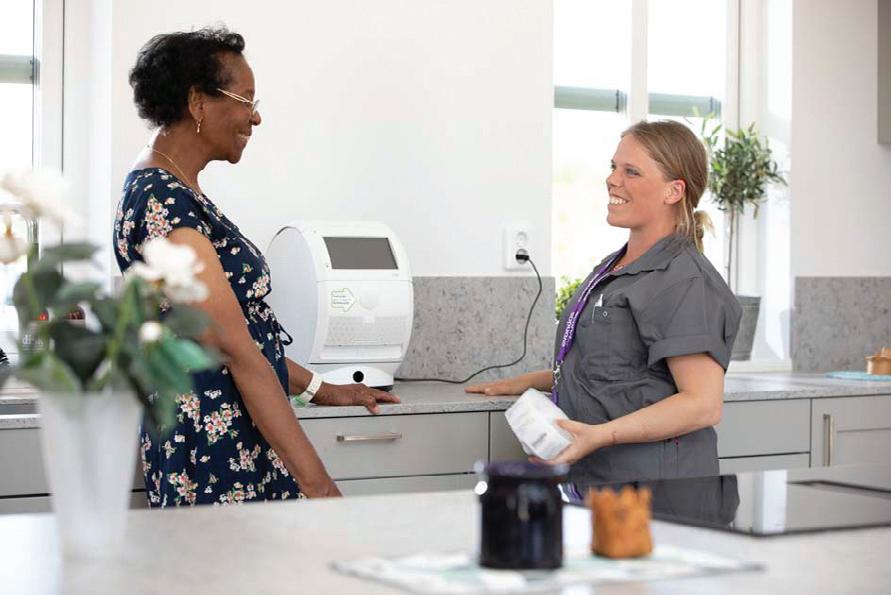
This is especially important for patients with time-sensitive or multi-dose medication schedules, such as those managing diabetes, Parkinson’s, or heart conditions. Evondos ensures that every dose is delivered as prescribed, helping prevent complications and hospital admissions.
PEACE OF MIND FOR CARERS
For carers—whether family members or professionals—Evondos offers reassurance. You don’t need to be present for every dose, and you’ll be notified if a dose is missed. This reduces stress and allows carers to focus on other aspects of support, knowing that medication is being managed reliably.
Evondos also supports virtual care through its built-in two-way video camera, allowing care professionals to check in with patients remotely. This adds a personal touch to digital care and helps maintain strong relationships between patients and their carers.
Evondos includes a built-in roaming cellular SIM card, which means it connects automatically—no home internet or technical setup is required. Patients don’t need to understand or manage any digital connectivity. This makes Evondos accessible to everyone, including those who are not confident with technology or live in areas with limited digital infrastructure.
TRAVEL MODE FOR FLEXIBILITY
Evondos also includes a travel mode, allowing patients to take their medication with them when away from home—whether visiting family, going on holiday, or staying in respite care. This keeps routines consistent and supports independence, even when life changes temporarily.
EQUALITY
Evondos is built with equality at its core. Its intuitive design, secure medication handling, automatic connectivity, and virtual care features make it accessible to people from all backgrounds. Whether you’re living alone, supported by carers, or part of a busy household, Evondos fits into your life and helps you stay well.
Evondos supports the NHS’s three strategic shifts by delivering smarter, safer, and more accessible care. For patients, it means more independence and better health. For carers, it means peace of mind and less pressure. With support for complex medication schedules, secure storage, travel flexibility, virtual care, and no need for internet knowledge, Evondos is helping bring the future of healthcare into everyday life.
If you or someone you care for could benefit from help with medication, speak to your local care team about Evondos. It’s a powerful solution designed with real people in mind.
See the advert on the facing page for details.
For many care managers, a normal day looks like organised chaos. You start with care planning, then switch into scheduling. Finance needs attention. A medication update comes through. Audits are approaching. Each task lives in a different place. Another login. Another spreadsheet. Another hour lost.
It is no surprise that so many feel stretched too thin.
The challenge is not the work itself. Care managers are experts at ensuring people receive safe, person centred care. The problem is that many tools in use today simply have not kept up with the demands of modern care.

Too often, care teams are asked to work across platforms that don’t speak to each other. Notes get duplicated. Information gets missed. Important changes take too long to reach the right person. This creates stress for managers and their teams. It also creates risk.
But it doesn’t have to be this way.
When information flows through one connected system, everything becomes clearer. There is one place to update, one record for the whole team to rely on, one view of the care being delivered across every visit or shift. Tasks that once took hours can be completed in minutes. Insights that once required
detective work become visible instantly.
This is why more providers are turning to all-in-one care management platforms like PASS. With care planning, rostering, eMAR and finance in the same system, teams stay aligned and up to date. Real time records help reduce errors and support smoother inspections. Smart automation removes manual admin and frees up more time for face-to-face care.
AI also plays a role. Not by replacing clinical judgement, but by helping care teams stay ahead of change. If something looks different in a note, or if patterns in data suggest a growing risk, the system can highlight it quickly for a manager to review.
Technology becomes a helpful assistant, while care professionals remain firmly in control.
Over 1,200 services across the UK are already benefiting from this clearer, more connected way of working. Many report stronger communication, improved compliance, and calmer days as a result. Care will always be complex. People have unique needs. Things change. But systems that support care don’t need to add to the chaos. When everything comes together in one place, focus can return to what matters most. Delivering outstanding care, every day.
Learn more at www.everylifetechnologies.com




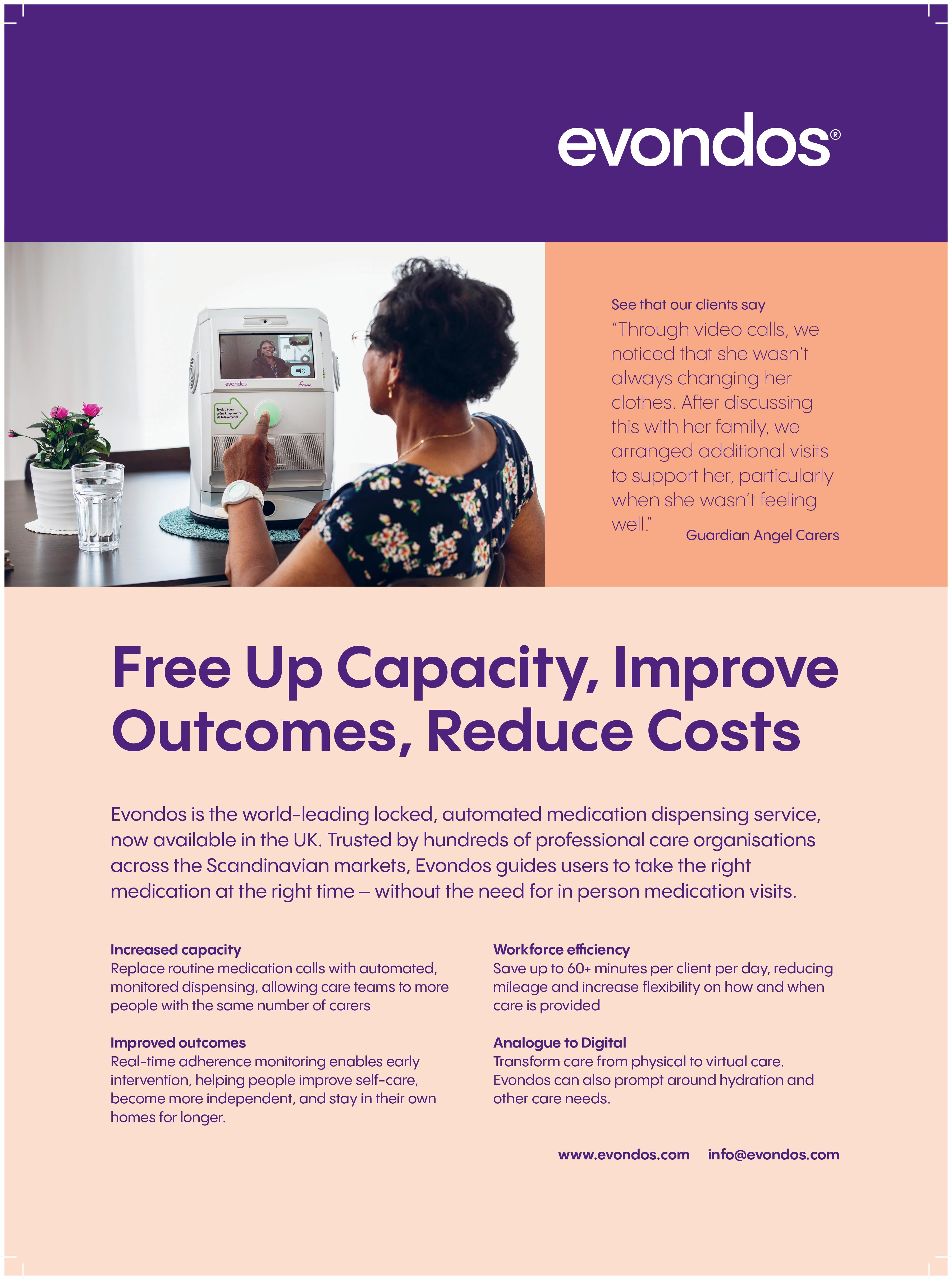
Every day, care organisations are working tirelessly to deliver essential support in the face of growing needs and rising costs. However, too many providers are stuck balancing tight budgets, having ‘just enough’ to stay afloat. The hard truth is, just enough isn’t enough—not for the providers, not for the employees, and certainly not for the clients who depend on them.
Rising operational costs—from wages and the Fair Pay Agreement to energy bills—compound historic underfunding and financial pressures. And demand for care continues to increase, creating a widening gap that organisations are often forced to fill with limited resources.
Providers then end up in survival mode, unable to invest in improving their services for today and the future.
THE NEED TO RETHINK FINANCIAL STABILITY
Care providers need to have healthy finances in social care, and that doesn’t come at odds with delivering compassionate care.
A financially strong organisation has the breathing room to improve services, retain employees, and innovate to make a meaningful difference to the lives of people they support. And having this financial security means providers can actually plan for the future rather than constantly reacting to the present.
BENEATH THE SURFACE
Social care organisations face a web of financial intricacies. Local authority

how financial pressures continue to challenge social care providers.
support often comes with layers of red tape. Managing aged debt and resolving invoicing errors take a significant amount of time that few organisations can spare. Regulation and compliance require meticulous reporting, and the sheer volume of admin work to manage all these leaves teams stretched thin. At the same time, there’s an expectation for providers to keep doing more. But without the right tools and systems in place, these compounded financial struggles threaten to overwhelm this indispensable sector.
Social care providers aren’t just keeping their organisations alive; they’re safeguarding the wellbeing of countless individuals and families.
Providers need to be able to prioritise long-term financial resilience. And part of this means having the tools—including robust financial management softwaresimplify manual processes, optimise resources, and reduce inefficiencies.
By championing financial sustainability, we’re creating conditions where employees can thrive, where clients receive the quality of care they deserve, and where the sector can confidently meet future challenges.
Find out more at: www.oneadvanced.com/ai
See the advert on the facing page.
We were excited to be heading to the Care Show in Birmingham on 8–9 October bringing something brand new with us.
At this year’s event, we launched the Data Policy Builder, a powerful new tool designed to make data protection policies simple, practical, and meaningful for your organisation. Too often, policies sit on a shelf, written in complex language that no one reads. The Data Policy Builder helps you create living documents that reflect your service, speak to your staff, and actually shape day-to-day practice.
By guiding you step by step through the process, the tool ensures your policies are DSPT-compliant and tailored to your unique risks and needs. Whether you run a single care home, a homecare service, or a larger group, this tool will help you write policies that your team can understand and use – supporting safer care and better data security.
LIVE DEMO – DATA POLICY BUILDER

The Care Show offered a first look at the Data Policy Builder in our live demo session. We’ll be focusing
on Bring Your Own Device (BYOD) policies, an area many care providers struggle with. You’ll learn:
• The risks of staff using personal devices for work
• What should be included in a robust BYOD policy
• How the tool can generate a clear, easy-to-read document for you – in minutes
We’ll also be sharing which other policies we’ll be adding to the tool in the future, so you can start planning ahead.
DROP-IN HUB – YOUR QUESTIONS ANSWERED
Throughout the Care Show, the Digital Care Hub team ran a drop-in hub where you could ask all your questions about digital technology, data protection, and cyber security. Whether you need help with the Data Security and Protection Toolkit (DSPT), want advice on cyber security risks, or just want to sense-check your approach to data sharing, we’ll be there to support you.
For further information, please see the advert below.

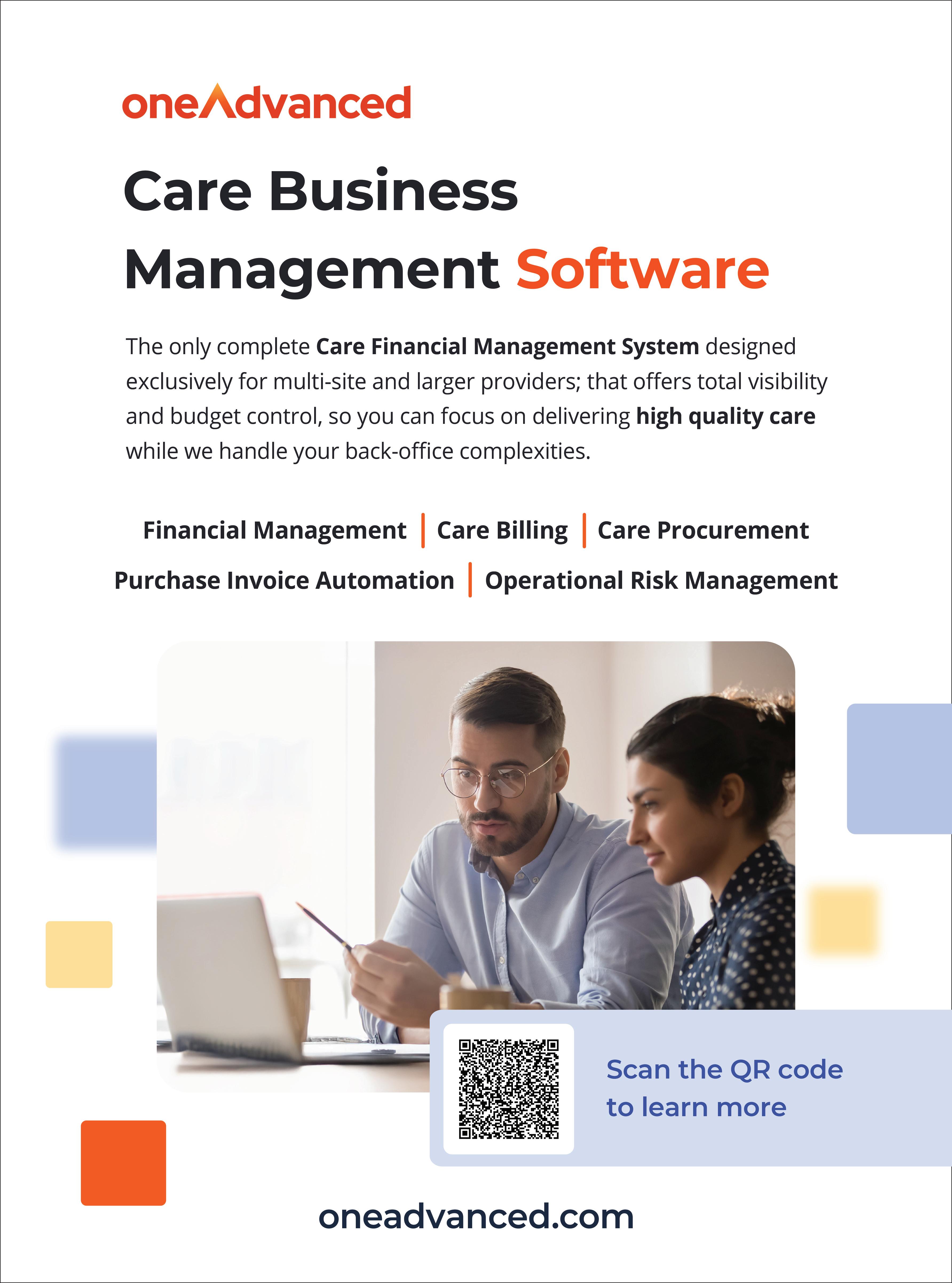
By Sam Wilson, Director of Apprenticeships – Exeter College (https://exe-coll.ac.uk)
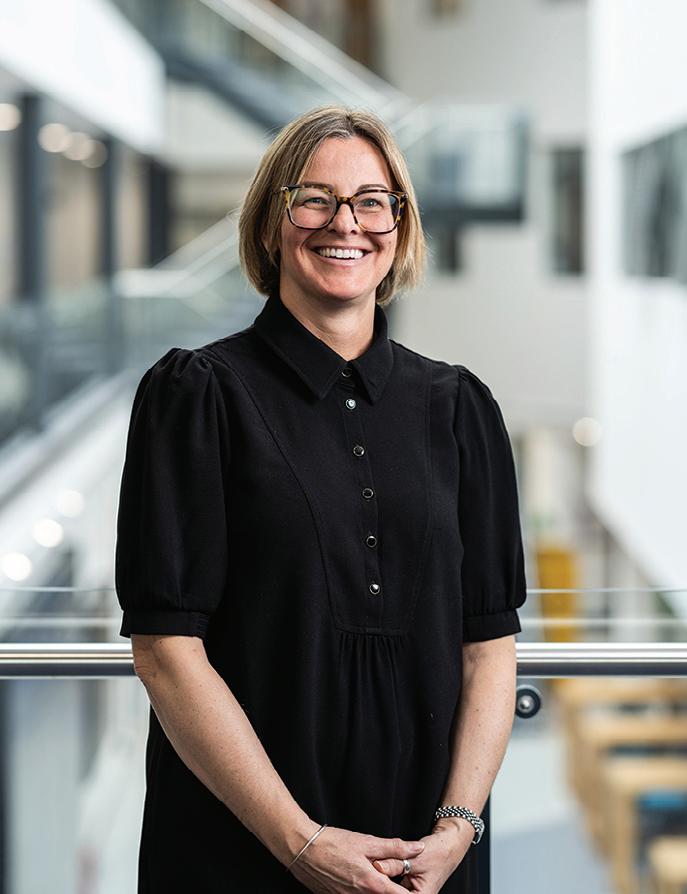
The care sector in the UK is facing a growing crisis. With an aging population, rising demand for services, and chronic staff shortages, pressure on providers has never been greater. In 2023, Skills for Care reported around 152,000 vacancies in adult social care in England alone. These challenges not only strain the system but also compromise the quality and continuity of care. Yet, a powerful and often underutilised solution lies in education and training pathways, particularly Foundation Apprenticeships, full Apprenticeships, and vocational work-based learning such as college placements and T Levels.
These routes into the care profession not only address immediate staffing shortages but also support the longterm sustainability and professionalism of the sector. By combining academic learning with hands-on practical experience, these pathways provide young people with the skills, confidence, and motivation to build fulfilling careers in care. In turn, employers benefit from a pipeline of wellprepared, passionate, and loyal workers.
FOUNDATION APPRENTICESHIPS: ENGAGING
FUTURE TALENT EARLY
Foundation Apprenticeships (FAs), offered to school leavers (and up to the age of 19 or 24 with an EHCP), provide an invaluable early introduction to the care sector. These programmes combine classroom learning with structured work placements, giving apprentices the chance to gain practical experience in real care settings in an 8-month window. By engaging with the profession early on, students gain a realistic and positive understanding of what care work involves, dispelling myths and building confidence in their abilities.
This early engagement is crucial. Foundation Apprenticeships help students make informed career choices and allow employers to spot and nurture young talent as they enter the workforce. For the care sector, which traditionally struggles to attract younger workers, FAs serve as a vital bridge between education and employment. They also broaden access to the profession, particularly among school-leavers who may not have considered care as a viable or attractive career path.
COLLEGE PLACEMENTS AND T LEVELS: BUILDING REAL-WORLD EXPERIENCE
Further education colleges play a key role in preparing students for care roles. Health and Social Care students typically complete structured placements in settings such as care homes, day centres, and domiciliary services. These experiences allow learners to apply theory in practical environments and develop essential interpersonal skills.
T Levels, introduced in 2020, are two-year programmes for 16-19 year-olds that include a minimum of 315 hours of industry placement. The Health and Science T Level equips students with both technical knowledge and soft skills like empathy, patience, and communication - all vital for high-quality care.
For employers, T Level placements offer a low-risk way to assess potential recruits in real working contexts. Students who complete meaningful placements are often more confident and better prepared for full-time roles, leading to improved retention and smoother transitions into employment.
APPRENTICESHIPS: STRENGTHENING AND RETAINING THE WORKFORCE
While Foundation Apprenticeships and T Levels lay the groundwork, full Apprenticeships serve as a critical tool for both recruitment and retention in the care sector. Apprenticeships offer a blend of paid work and formal study, allowing individuals to "earn while they learn" and progress toward nationally recognised qualifications in adult care, childcare, and support work.
Crucially, apprenticeships cater to a wide age range and can be used both for new recruits and for upskilling existing staff. This makes them incredibly versatile. For young people who may not thrive in traditional academic routes, apprenticeships offer a clear, supported pathway into meaningful employment. For care providers, investing in apprenticeships can help fill vacancies with committed, well-trained individuals while demonstrating a commitment to workforce development.
Apprenticeships also promote staff loyalty. When employees are supported to learn and develop within their role, they are more likely to stay with their employer long-term. This helps to reduce the high turnover rates that plague the care sector and improves continuity of care for service users.
In a sector crying out for skilled, compassionate workers, the potential of Foundation Apprenticeships, college placements, T Levels, and full Apprenticeships cannot be overstated. These pathways equip learners with the necessary skills and values while embedding them in the culture of care from an early stage. By integrating education with employment, we can reshape how the care sector recruits and retains its workforce. This is not a short-term fix but a sustainable, future-focused strategy.
The care sector cannot afford to wait. By actively engaging with local education providers such as colleges, schools, and apprenticeship training organisations, care employers can build a robust pipeline of skilled, motivated individuals ready to make a difference. Whether it’s offering a placement, mentoring a student, or hiring an apprentice, every action contributes to a stronger, more sustainable workforce. Reach out to Exeter College today and start shaping the next generation of carers.
Sam has been part of the apprenticeship world for over 25 years, having gained vast experience in teaching, designing and managing the quality of apprenticeship curriculum in both independent training provider & College settings. Sam joined Exeter College over 4 years ago and played a key role in the Ofsted Outstanding grading for Apprenticeships. Apprentices@exe-coll.ac.uk https://exe-coll.ac.uk/apprenticeships/
PIONEERING TECHNOLOGY-ENHANCED CARE FOR THE FUTURE
Multisensory Care Solutions represents a significant advancement in specialist care provision, founded by industry veterans Karen Bradley and Brian Lumb. Drawing upon their exceptional track record of operating a CQC Outstanding-rated residential care home for complex care residents over three decades, the company brings unparalleled expertise to the care sector.
PROVEN LEADERSHIP IN CARE EXCELLENCE
Karen Bradley brings over 45 years of comprehensive experience working with individuals living with dementia, autism, learning disabilities, and other specialist needs. As a former Registered Manager and certified trainer across multiple care disciplines, her deep understanding of person-centred care principles has consistently delivered outstanding outcomes for residents and their families.
Brian Lumb contributes extensive technical expertise from his background in multimedia systems, touchscreen displays, and point-of-information technologies. His proven track record in developing and implementing innovative digital solutions—both as a business owner and senior executive within major PLCs—provides the technical foundation for revolutionary care applications.
INNOVATION-DRIVEN CARE EXCELLENCE

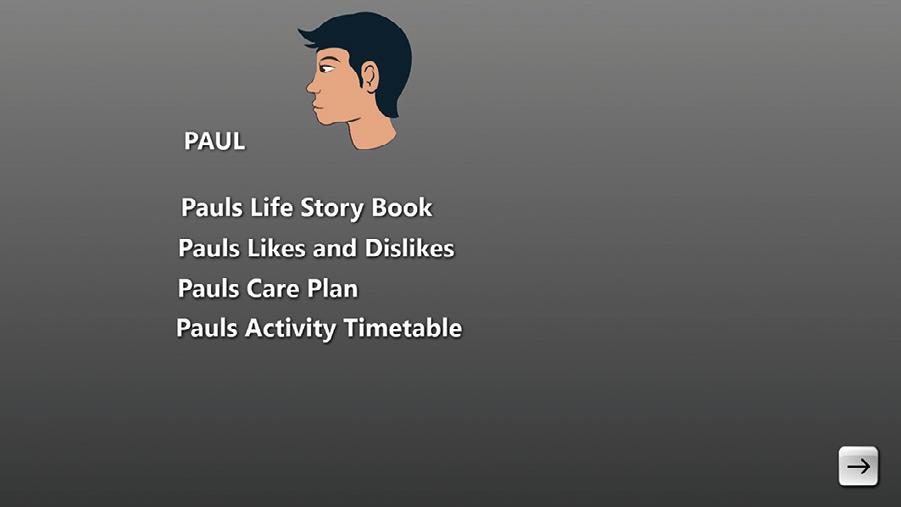
The founders' unique combination of care expertise and technological innovation has enabled them to integrate cutting-edge solutions into their care delivery model. This pioneering approach to person-centred care through technology played a crucial role in achieving their CQC Outstanding rating, demonstrating measurable improvements in quality of life for residents and enhanced support for families.
INTRODUCING MULTISENSORY MAGIC
Building upon decades of practical experience, Multisensory Care Solutions has developed "Multisensory Magic"—an accessible software application designed to democratise technology-enhanced care. This cost-effective solution makes advanced multisensory interventions available to care providers across the sector, extending beyond premium facilities to benefit a broader range of residents.
Meeting Critical Care Challenges
With approximately one million people currently living with dementia in the UK—a figure projected to reach 1.5 million by 2040—the need for innovative care solutions has never been more urgent. Technology-enhanced interventions offer proven benefits in:
Sensory stimulation and engagement
Cognitive function support
Enhanced communication pathways
Improved resident wellbeing outcomes
A TIMELY CALL TO ACTION
As the care sector observes World Alzheimer's Month in September 2025, culminating in World Alzheimer's Day on 21st September, the opportunity to transform dementia care through accessible technology solutions represents both a professional imperative and a moral responsibility.
Multisensory Care Solutions stands ready to support care providers in achieving improved CQC ratings whilst delivering meaningful enhancements to resident care and family satisfaction.
For more information see the advert on the facing page or please call or email
Restrictive practices such as physical restraint, bed rails, or lap belts remain one of the most challenging aspects of health and social care. Intended to keep patients safe, they can also cause harm, distress, and loss of dignity when used unnecessarily. Across the UK, the principle is clear: care must always use the least restrictive option.
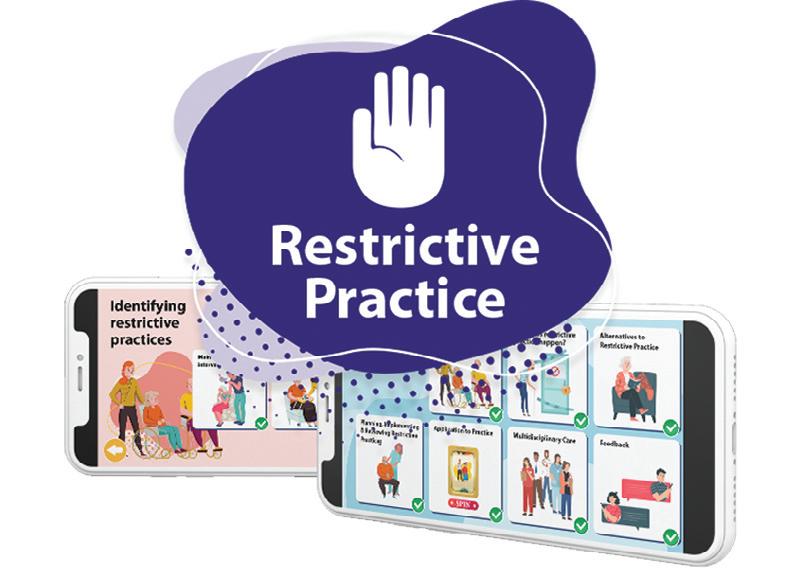
Legislation provides the framework, but culture and staff behaviour shape daily practice. Nurses, carers, and clinicians often make quick decisions balancing safety with autonomy. Without training, restrictive practices risk becoming routine. To change this, staff need better understanding of the human impact and confidence to use alternatives. That’s where Restrictive Practice makes a difference. Developed through co-design workshops with patients and carers, this gamified e-resource gives a voice to those most affected by restraint. Their lived
experiences shaped the learning, helping staff see restraint not as a neutral safety tool, but often as something frightening or disempowering.
The results are powerful. Staff trained with the resource led Quality Improvement projects, achieving measurable reductions:
- Bed rails dropped from 360 to 277 incidents
- Bed bumpers from 303 to 227
- Lap belt use halved, from 46 to 22
These improvements represent safer, more compassionate care and reassurance for families.
Restrictive practices may never disappear entirely, but they should be the exception, not the rule. With the right knowledge and tools, staff can choose safer alternatives and build a culture of dignity, compassion, and respect across UK care services. See our advert on the front cover or visit www. RestrictivePractice.com



Users / providers are enabled to ‘CONJURE
and reminiscence therapy sessions. Audio, video, slide shows, text, images and aromas can all be blended
using multiple screen displays.




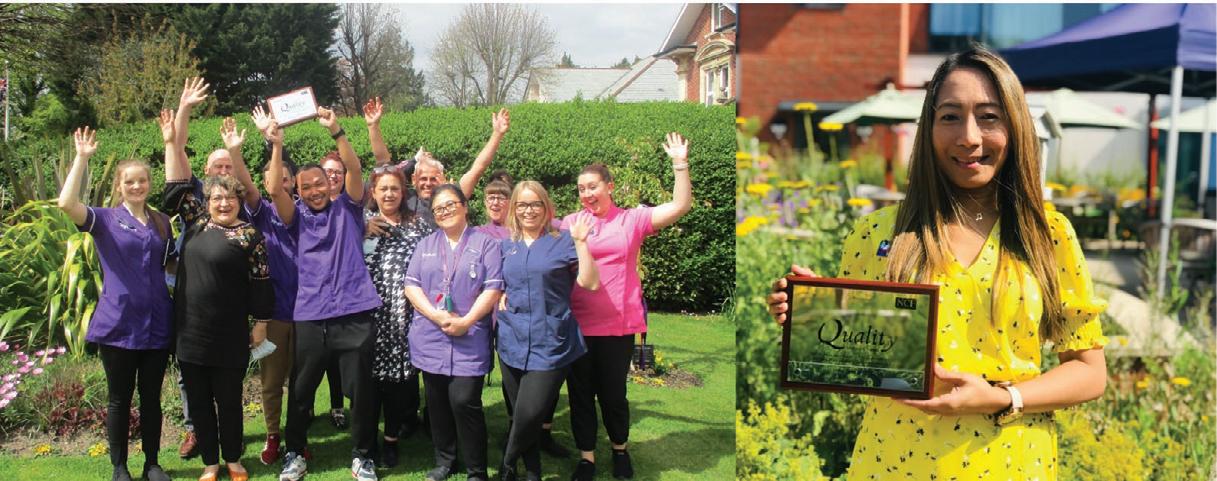
The Gold Standards Framework (GSF) Charity equips your team with the skills, confidence, and compassion to deliver person-centred care that truly makes a difference.
For a limited time, the GSF Care Homes Training & Accreditation Programme is available at 50% OFF – now only £1,095
This affordable, high-impact training is designed for your whole organisation (for training
GSF Accreditation is CQC-recognised, endorsed by leading care organisations, and more than 97% of accredited teams report better experiences for people and their families.
For more information, visit: www.goldstandardsframework.org.uk / 020 7789 3740 Future-proof your care. Empower your workforce. See the advert on page 7 for more information.

Care home residents, new staff and visitors can all benefit from clear way-finding signage, which is why the Care Quality Commission places great importance on a well thought out signage scheme – especially where memory care needs demand specialist input. Add the need to reflect a group's branding objectives whilst working within interior design guidelines, and the challenge for managers tasked with sourcing signage is knowing who to call.
With nationwide coverage, Taylor and Pickles have a reputation for well thought out signage schemes which effectively and discreetly direct people around care homes for many of the UK’s leading care providers.
Starting with a client’s briefing, Taylor and Pickles carry out a comprehensive site survey and develop
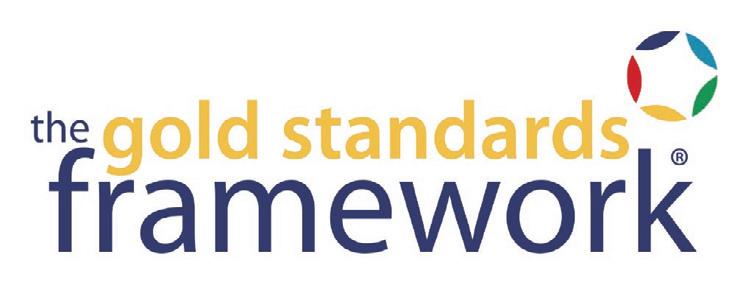
detailed design proposals. Often working with a client’s interior designers, the team at Taylor and Pickles create options for bespoke signs which provide clear directions and are sympathetic to the client’s creative concepts. This custom approach prevents signs looking out of place, or like “off the shelf” stock items.
Of course, there are times when greater visual contrast is essential. Residents with memory care needs require a bold and sometimes bright scheme which might seem heavy handed elsewhere. When the special needs of these residents are added to the brief, clients can be confident that Taylor and Pickles’s approach, guided by leading academics and their experience of helping many homes through the Care Quality Commission signage inspection process, will pay off. Often a multi-tiered approach allows signs across different zones in a development to have a cohesive look yet serve differing care needs.
Taylor & Pickles also recognise a client’s commercial needs. Timely, unobtrusive surveys – effective design and tidy installation by in-house teams make Taylor and Pickles the chosen signmaker for many of the UK’s leading care home groups.
See the advert on this page for details.
"23 years, operating 4 Devon Nursing homes, has been pretty tough, as anyone in social care, knows, only too well. And if it was hard already, after 2024 budget, it's just got harder. Anyway, at heart, I am just customer of Eden Alternative, and it was a stroke of luck to come across this whilst on holiday in New Zealand in 2009. It started in USA in 1994 and now runs in 22 countries.
The fact that I am now involved with this not-for-profit organisation (in the UK area) came about when one of the 2 main UK directors died suddenly just before Covid. But it's something I have run with for 11 years to help make 'vision' a reality, not a struggle. So, being both a customer and helping the admin seems quite natural.
It is a modern philosophy of care, but moreover, it's a programme that is straight forward, tried and tested for 30 years and really works.

Its member care organisations generally become trainers for their own teams, and run it themselves.
The programme is run in person over 2-3 days or online 1 hr a wk for 7 weeks. You choose.
It addresses loneliness, helplessness and boredom and operates through 10 principles to underpin 7 critical domains of wellbeing.
Moreover, it's effective, transformational and really works. As residents, and team members wellbeing, matter so much , it's a must, in my opinion.
Geoffrey Cox Southernhealthcare.co.uk eden-alternative.co.uk"
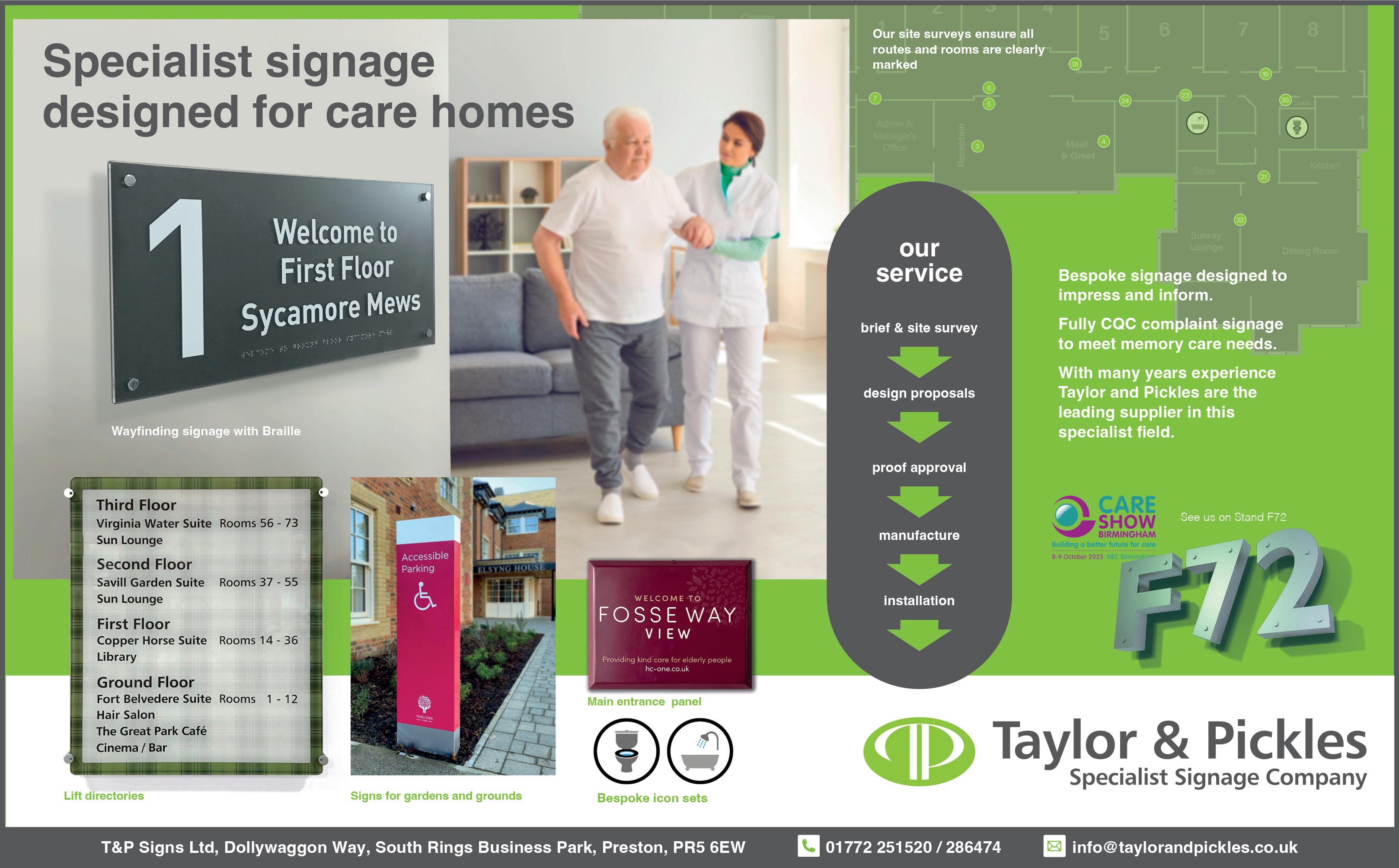
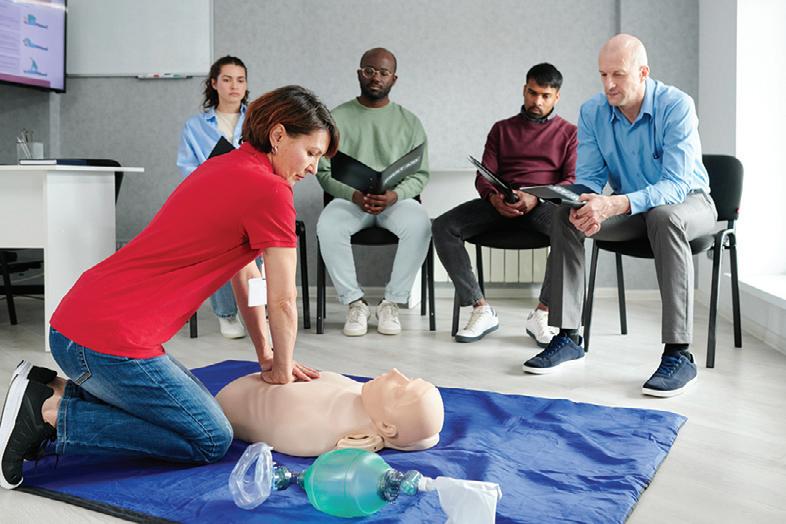
Training and learning are often treated as a requirement to be completed, but real learning is about giving your team the confidence they need to deliver safe, high-quality care. This is where blended learning comes into its own.
Blended learning recognises that effective training goes beyond theory. Knowledge is important; staff must first understand the what and the why, however knowledge alone doesn’t always prepare them for the realities of a care setting. Skills need to be practised, rehearsed and refined in an environment that’s safe before they are put into practice with residents or service users. When staff build confidence through role play, simulation, and guided practice, the leap from theory in the classroom to
the real world becomes less daunting.
The next step is proving capability on the job. Competency assessments connect learning with practice, giving managers assurance, regulators evidence, and service users confidence in the care they receive. But learning shouldn’t end there; structured pathways that map skills to roles, prompt refreshers, and track development over time keep staff on course, turning their training into a process of continual growth which is also aligned with Skills for Care standards and expectations set out by CQC.
The impact on organisations is clear – teams feel supported and this improves retention, which in the Health and Social Care sector is more important now than ever. Families, inspectors, and service users see a higher quality of care, and managers gain reassurance that their workforce is competent and confident. Ultimately, blended learning creates safer, kinder, and more consistent outcomes for everyone, meaning higher care standards and greater satisfaction all round.
Which is why your team deserves myAko.
Blended learning is more than just an approach, it’s essential for everyone in our sector!
ww.myako.online hello@myako.com 01202 283283






A new apprenticeship has been launched for adult care support workers who assist people with mental health challenges, including dementia and neurodiversity.
Leading training provider Realise has revealed its new Level 3 Senior Healthcare Support Worker Apprenticeship which features a specialist mental health pathway.
The apprenticeship aligns with The Care Workforce Pathway - developed by Skills for Care and the Department of Health and Social Care –which emphasises the importance of equipping staff who support people with mental ill health with the right knowledge and skills.
The programme’s focus on mental health makes it ideal for those working in complex care services or supporting individuals living with dementia or mental health conditions. It also benefits those supporting individuals with a dual diagnosis.
Standard apprenticeship funding rules apply with no age restrictions. However, learners aged 16–22 are eligible for 100% government funding, meaning non-levy employers are not required to pay the usual 5% co-investment. This is available in England only.
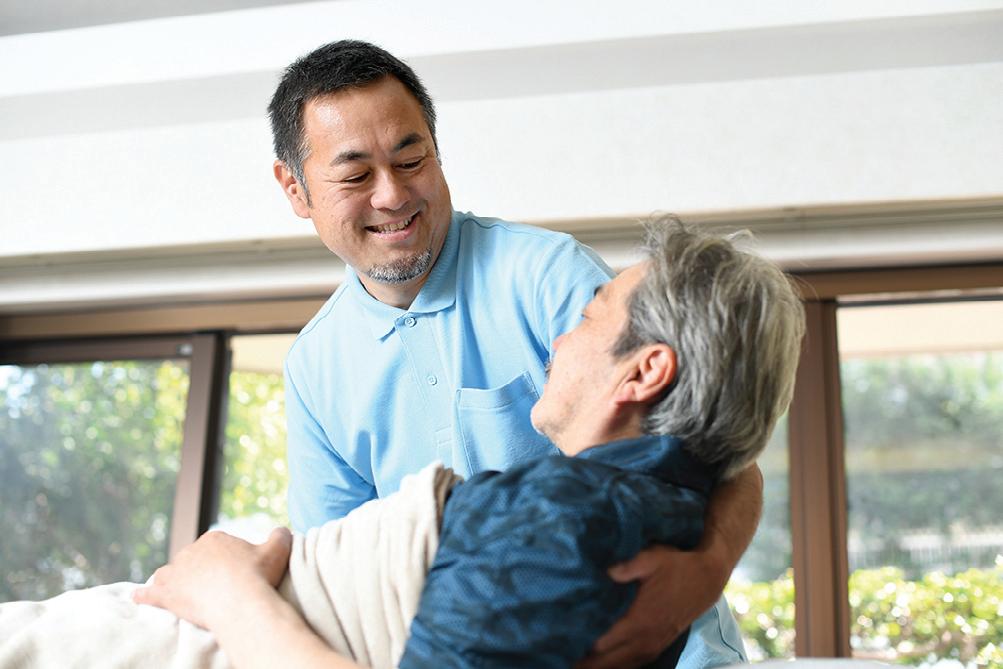
While a few other providers offer the Level 3 Senior Healthcare Support Worker Apprenticeship in Mental Health Pathway, the Realise progamme was developed in collaboration with leading industry provider Barchester Healthcare, ensuring it is closely aligned with the real-world demands of the role, particularly in complex care.
Angela Kaine, Director of Health & Social Care at Realise, said: “We fully support The Care Workforce Pathway, which emphasises the importance of people being able to receive training in areas in which they
specialise.
“Care workers supporting individuals with dementia or other mental health conditions benefit greatly from targeted training in crisis intervention, mental capacity and de-escalation techniques.
“Offering this apprenticeship can help adult care providers recruit individuals for specialised roles and improve retention - two major challenges within the sector.
“There is a wide variety of opportunities within adult care, and we’re proud to support those looking to develop both their technical skills and their chosen specialism.”
This comprehensive 18-month apprenticeship is designed to provide a rich and supportive learning experience. Learners will benefit from a blend of face-to-face support and interactive webinars, creating the perfect balance between in-person guidance and flexible online learning.
These sessions not only enhance understanding but also offer valuable opportunities to connect, collaborate, and network with peers from across the sector- helping to build confidence, share best practices, and develop lasting professional relationships.
Modules include quality improvement - where learners are challenged to identify small changes to enhance performance - and team leadership, which encourages them to take on more responsibilities.
Realise can tailor programmes to suit the employer’s needs by utilising unit selection through the diploma.
The apprenticeship is available throughout England.
For more information, visit www.realisetraining.com
In today’s regulated care environment, having clear, current, and wellcommunicated health and social care policies is essential for delivering safe, compliant services. The Care Quality Commission (CQC) now places increasing emphasis on how policies are implemented and understood—especially during registration and inspections.
Outdated or poorly communicated policies can significantly impact your CQC rating. Even if documentation is comprehensive, failure to ensure staff understand and follow procedures may lead to a “Requires Improvement” or even “Inadequate” rating under the ‘Effective’ domain.
Well-maintained policies promote consistent standards across care teams and help safeguard services when incidents arise. In regulatory investigations, the first request is often to review relevant policies—making accuracy and accessibility key to reducing legal and compliance risks.

However, keeping policies up to date is challenging. Constant changes in legislation, best practice guid-
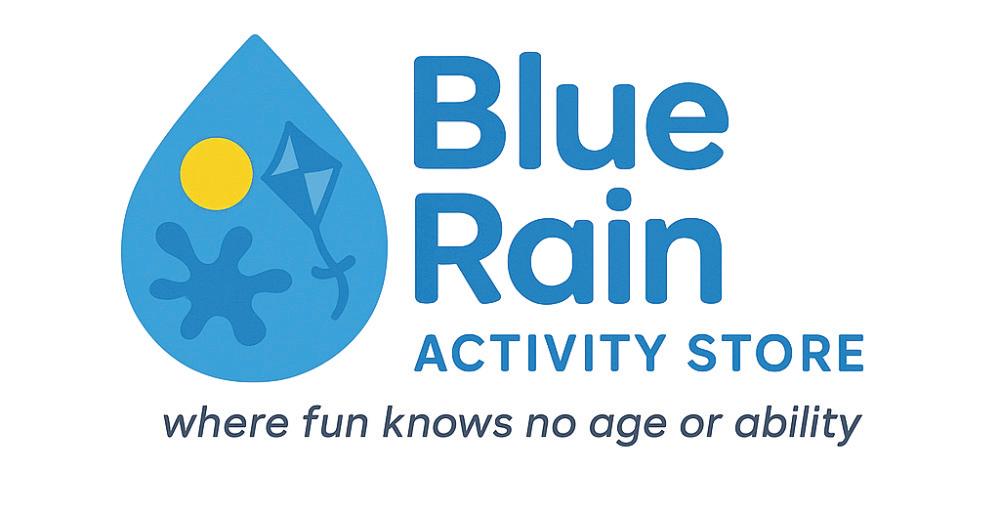
Welcome to Blue Rain - our activity store is built on over 14 years experience supplying products that bring joy, inspire motivation, and enrich the lives of those who need a little extra support, or simply want to have fun, whatever the weather.
Come find your next reason to smile.
ance, and case law mean that policies can quickly become obsolete. W&P has been a trusted provider of CQC-ready care policies and procedures for over 20 years. Our expert team monitors industry developments to ensure your policies remain fully compliant.
Our Online Policy Portal simplifies policy management. With just a few clicks, providers can update content, distribute documents to staff, track confirmations, and monitor compliance via a real-time dashboard. You can even provide temporary read-only access to inspectors—demonstrating transparency and accountability instantly.
Ensure your care service meets CQC expectations with fully up-to-date, easily accessible, and well-communicated policies.
Email: info@wandptraining.co.uk
Call: 01305 767104
See the advert on page 2 for details.
At Blue Rain, our mission is simple: to provide everyday activity products that spark joy and enrich lives — whether for those who need a little extra support, a burst of motivation, or simply a reason to have fun.
We take pride in listening to our customers, understanding what truly matters to them, and sourcing or creating products that meet those needs perfectly. Many of our items are available as readyto-go activity kits and bundles — complete with everything you need — so you can skip the preparation and focus on the joy of the moment.
As Blue Rain Activity Store continues to grow, our heart remains the same: creating meaningful moments of happiness, connection, and creativity for people of all ages and abilities.
From rainy-day craft sessions to sunny outdoor adventures — or simply time spent together — we’re here to make every experience easy, special, and unforgettable.



Strong cash flow management can make the difference between thriving and merely surviving. Here's how to keep your care home finances on track.
For care home operators, maintaining healthy cash flow is as vital as delivering quality care. Yet many providers struggle with the timing mismatch between when costs are incurred and when payments arrive, particularly from local authorities where payment terms can stretch to 30 days or more.
The first step to effective cash flow management is knowing exactly where you stand. Weekly cash flow forecasting should be standard practice, projecting income and expenditure at least 12 weeks ahead. This allows you to spot potential shortfalls before they become critical and plan accordingly.
Key metrics to monitor include debtor days (how long it takes to receive payment), creditor days (how long you take to pay suppliers), and your current ratio (current assets divided by current liabilities). A healthy current ratio sits above 1.5, indicating sufficient liquidity to meet short-term obligations.
Late payments from local authorities remain a persistent challenge. While most councils adhere to payment terms, delays do occur, and with potentially dozens of council-funded residents, even a few late payments can strain finances significantly.
Implementing robust credit control processes and maintaining regular communication with commissioning teams helps minimise delays.
Seasonal variations in occupancy can also create unexpected cash crunches. Many homes experience dips during summer months as families explore alternative care arrangements. Building a cash reserve equivalent to at least two months of operating expenses provides a crucial buffer during quieter periods.
Consider negotiating better payment terms with key suppliers. Many are willing to extend credit periods for reliable customers, easing immediate cash pressure. Conversely, offering modest discounts for families who pay privately and settle invoices early can accelerate income.
Review your fee structure regularly. Ensure private pay rates genuinely reflect your cost base plus a reasonable margin, and don't neglect annual fee reviews with existing residents and their families. Clear communication about rising costs helps justify necessary increases.
For homes experiencing persistent cash flow challenges, invoice financing or block discounting arrangements can provide working capital by advancing funds against outstanding invoices, though fees must be weighed against the benefit.
Cash flow management isn't glamorous, but it's fundamental to sustainability. Regular monitoring, proactive planning, and swift action when issues arise will help ensure your care home remains financially stable and able to continue delivering excellent care to residents.
Global assists clients throughout the U.K. who specialise in the healthcare sector to achieve their objectives of purchase, development and refinance.
We have organised over £1.8bn for clients in the past 30 years, providing clients with competitively priced funding to refinance existing debt, ease cashflow and develop businesses further.

From helping clients make their first purchase through to allowing groups to grow significantly in size we assist at every stage of your business expansion.
Every proposal is individual and deserves to be treated that way, so we hope you will allow us to be of assistance to you and call us to chat through your plans and requirements, I am sure we will be able to tailor a facility to your requirements. Call us on 01242 227172 or e-mail us at enquiries@globalbusinessfinance.net

Since 2008, Satellite Finance has been a trusted commercial finance broker specialising in funding solutions for care homes and healthcare providers.

Based in Newport, Wales, Satellite Finance has a range of tailored business finance services from asset finance, business loans, and mortgage funding to support care home acquisitions, refurbishments, and equipment purchases.
If you’re looking for Asset Finance to help grow your business, new equipment is a must. Satellite Finance can help you to get all the equipment you need, without making large dents to your cashflow. With Asset Finance you don’t have to pay for everything upfront, you can spread the cost of your equipment over the period of time its expected to be used for which can be from 12-72

months, allowing you to spend more money on higher standard equipment without feeling the economic pinch.
Perhaps you’re looking for a loan for a new building, or to make a refurbishment in a care home or surgery? Satellite Finance works with you to choose the best loan for your project. Choose from either a Business, Professional, Personal, or Corporate & VAT loan, and because Satellite Finance has access to over 40 specialist lenders that have facilitated over £100 million in funding for more than 4,500 clients, you know you’re in good hands.
For a Mortgage Loan, Satellite Finance can help you to request a loan for anything between £50,000 – £40 million. With rates starting from just 2.25% above Bank of England base rate, your repayment period
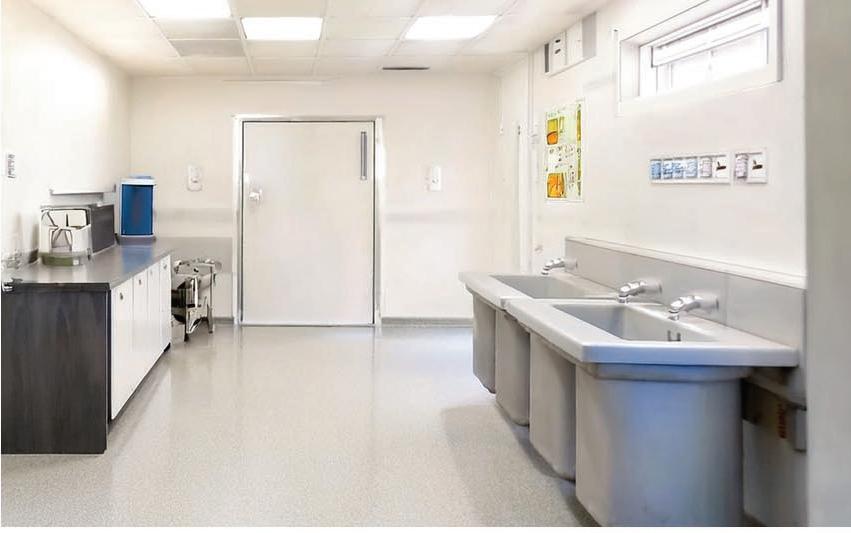



can be anywhere between 5 and 30 years. Unlike other finance companies, Satellite Finance’s terms won’t feel like a burden, as they’re both competitive and flexible, ensuring you get an arrangement that is affordable and convenient for you. Having close relationships with over 40 high street banks, challenger banks, and regional lenders all over the UK, Satellite Finance is experienced and up to date with the best lenders who offer the best rates to the healthcare sector.
